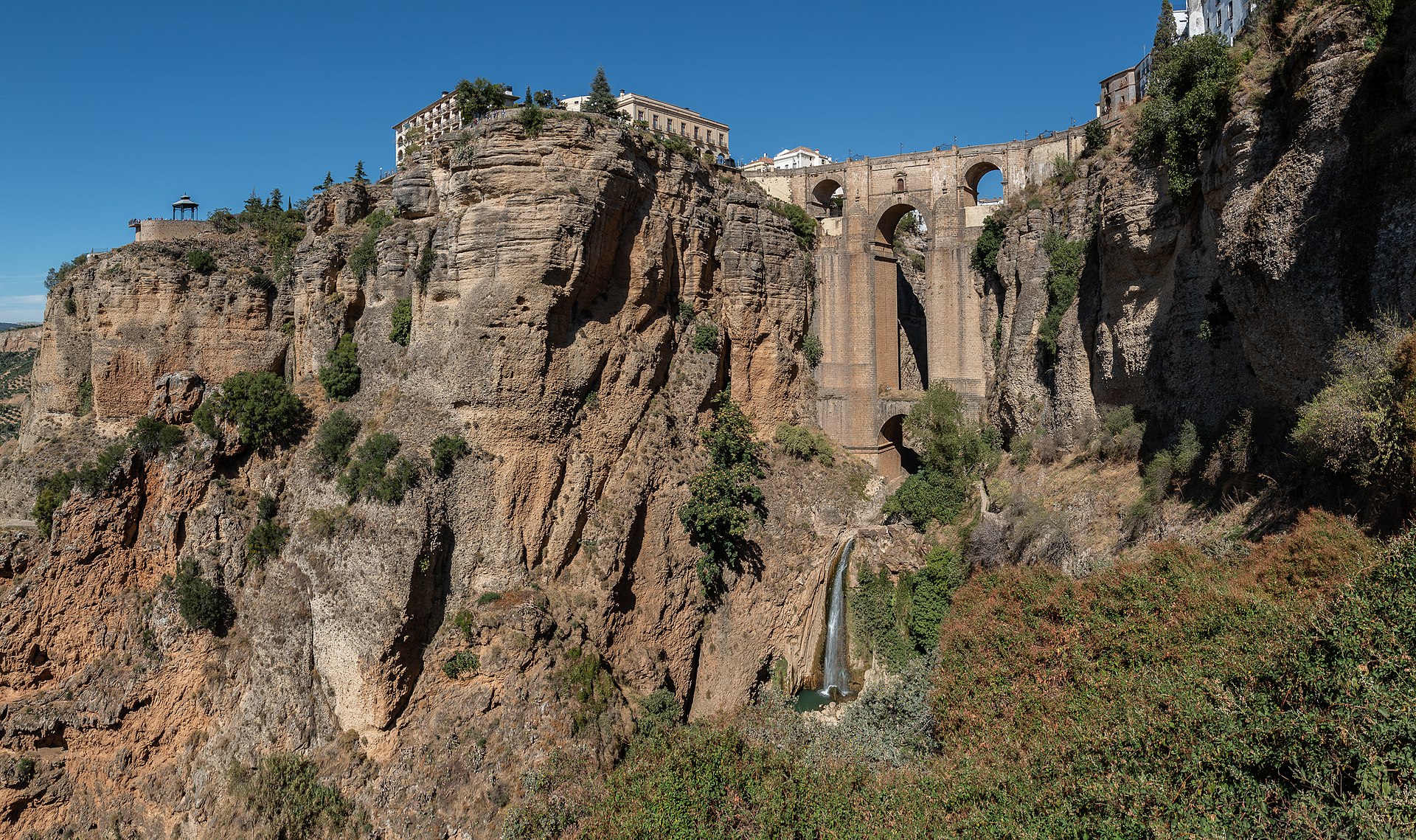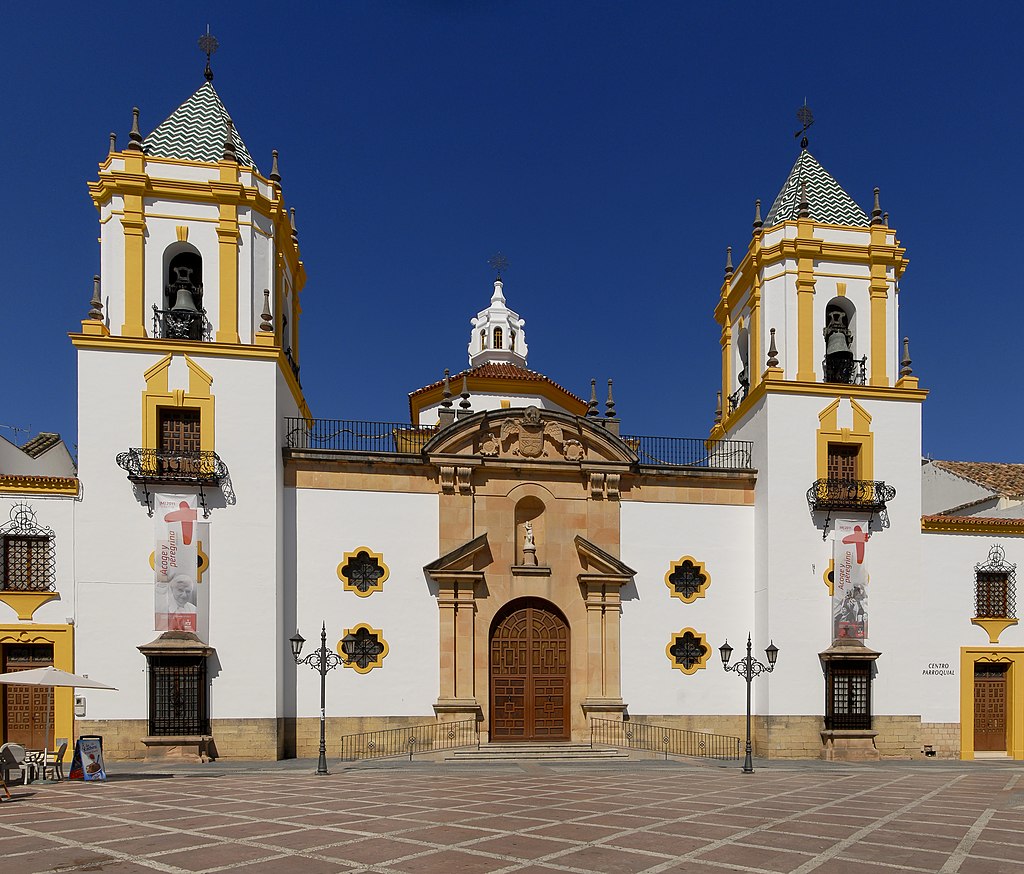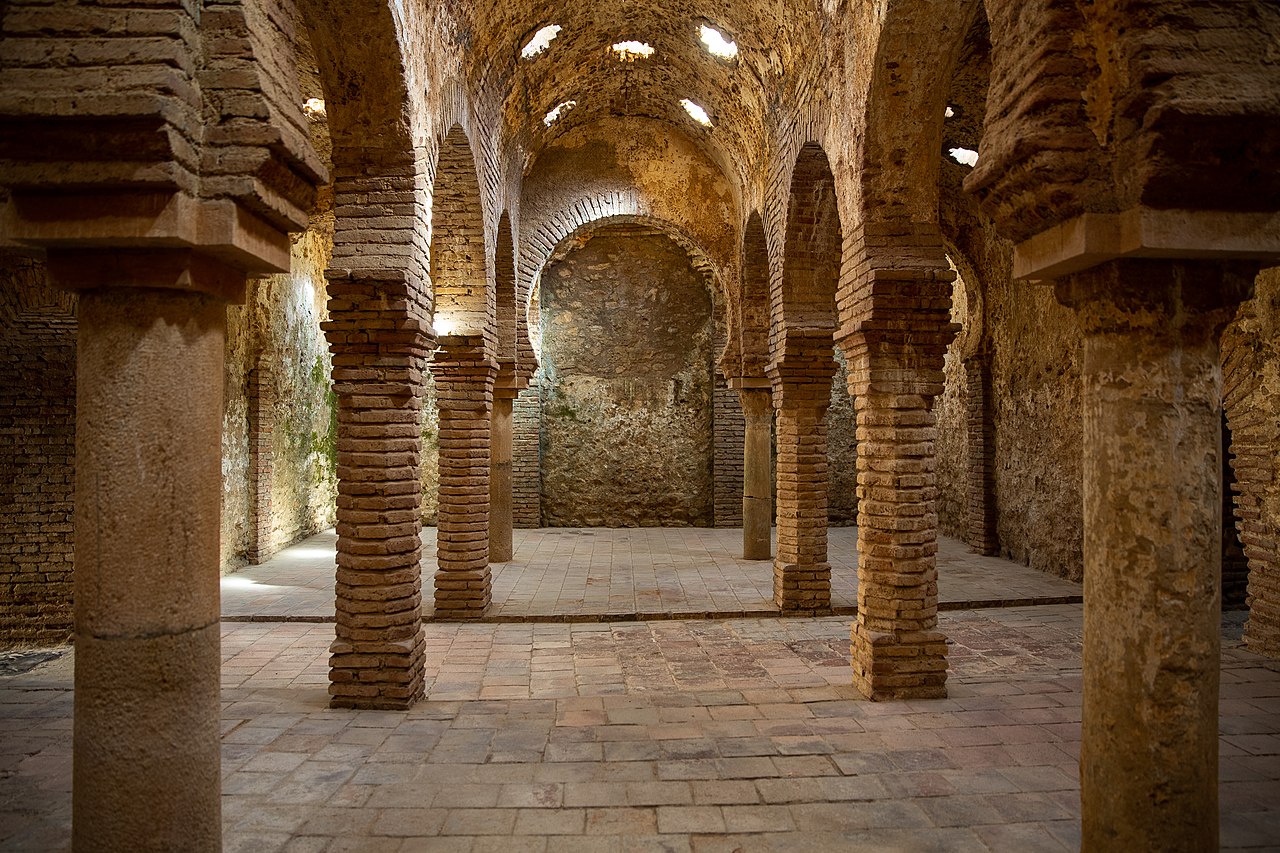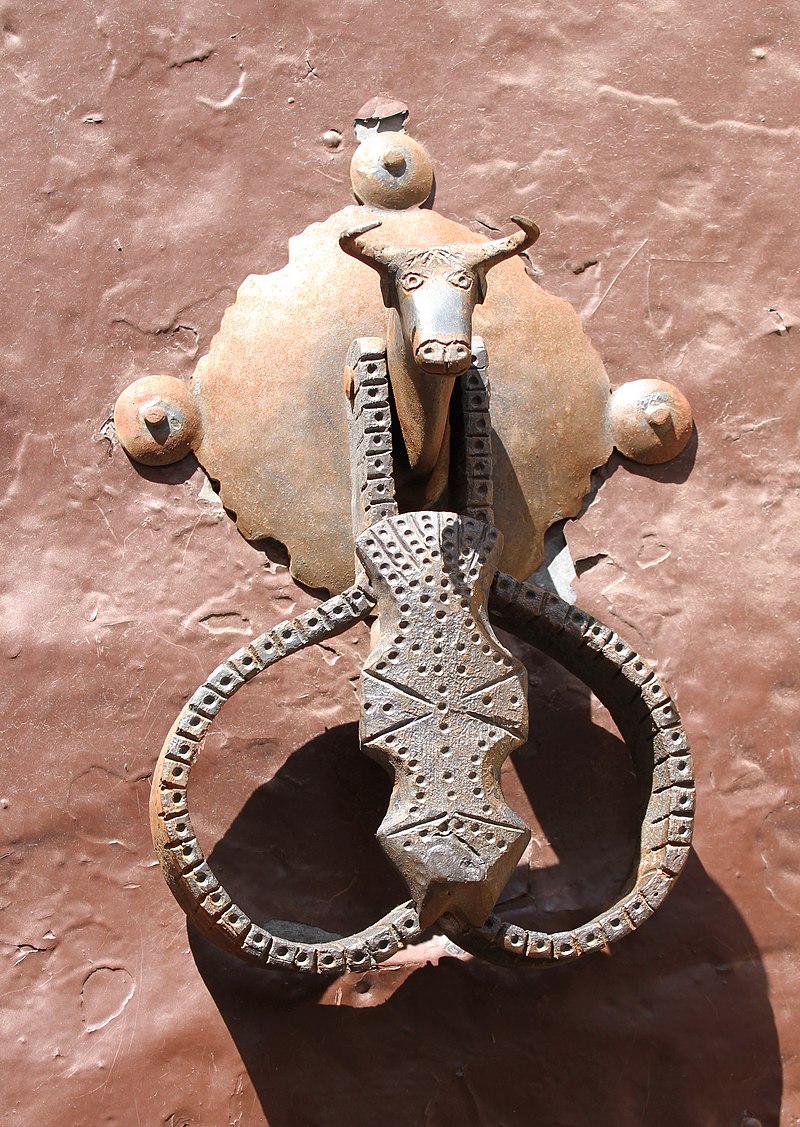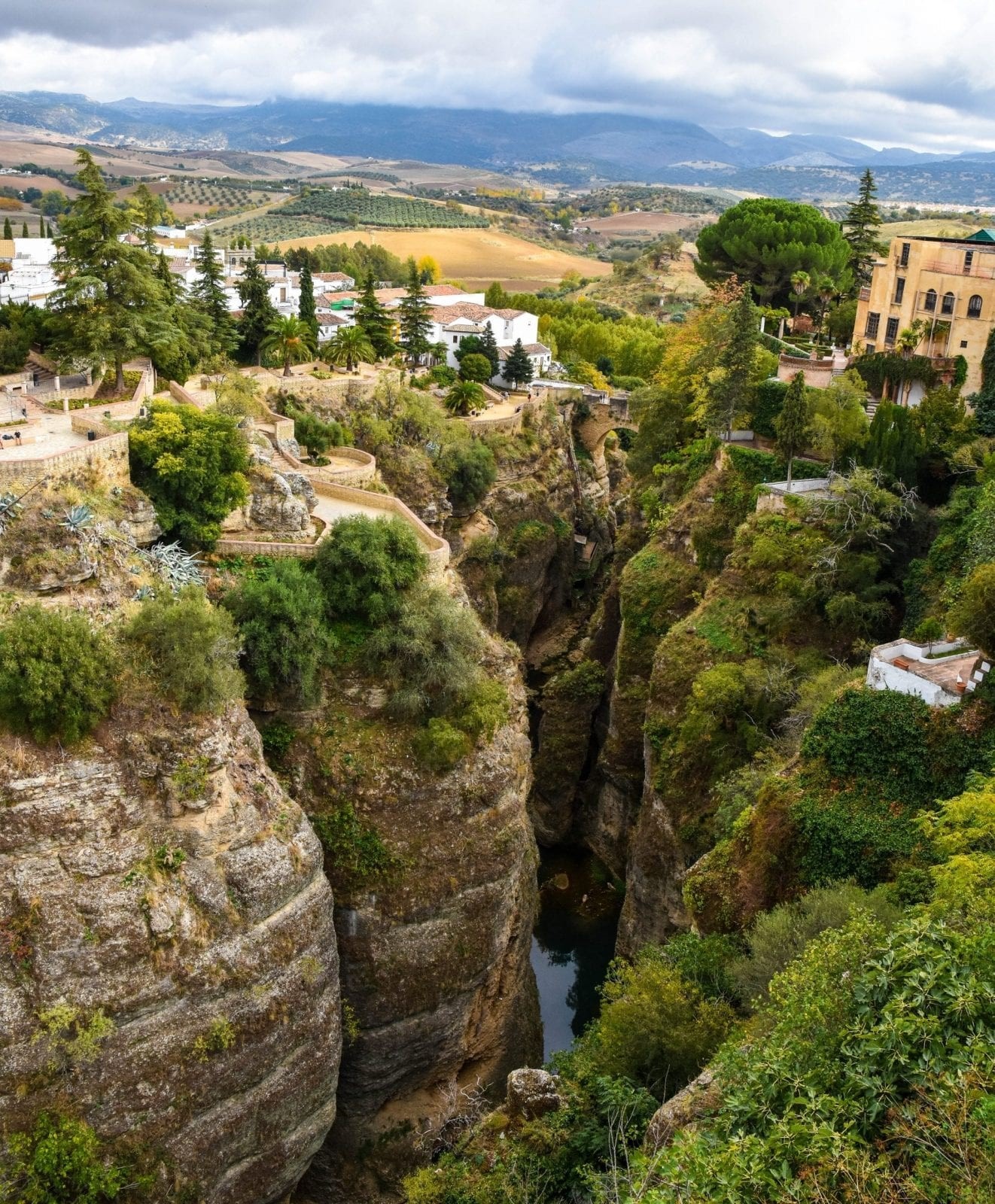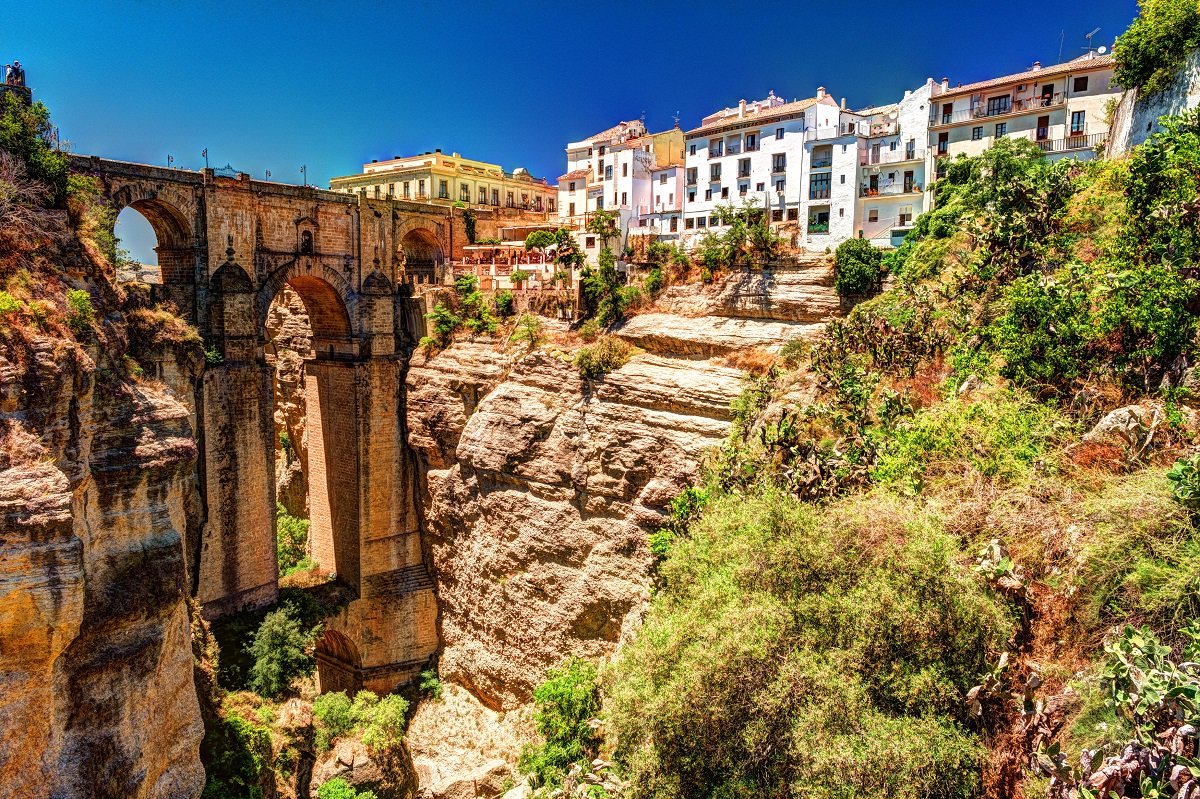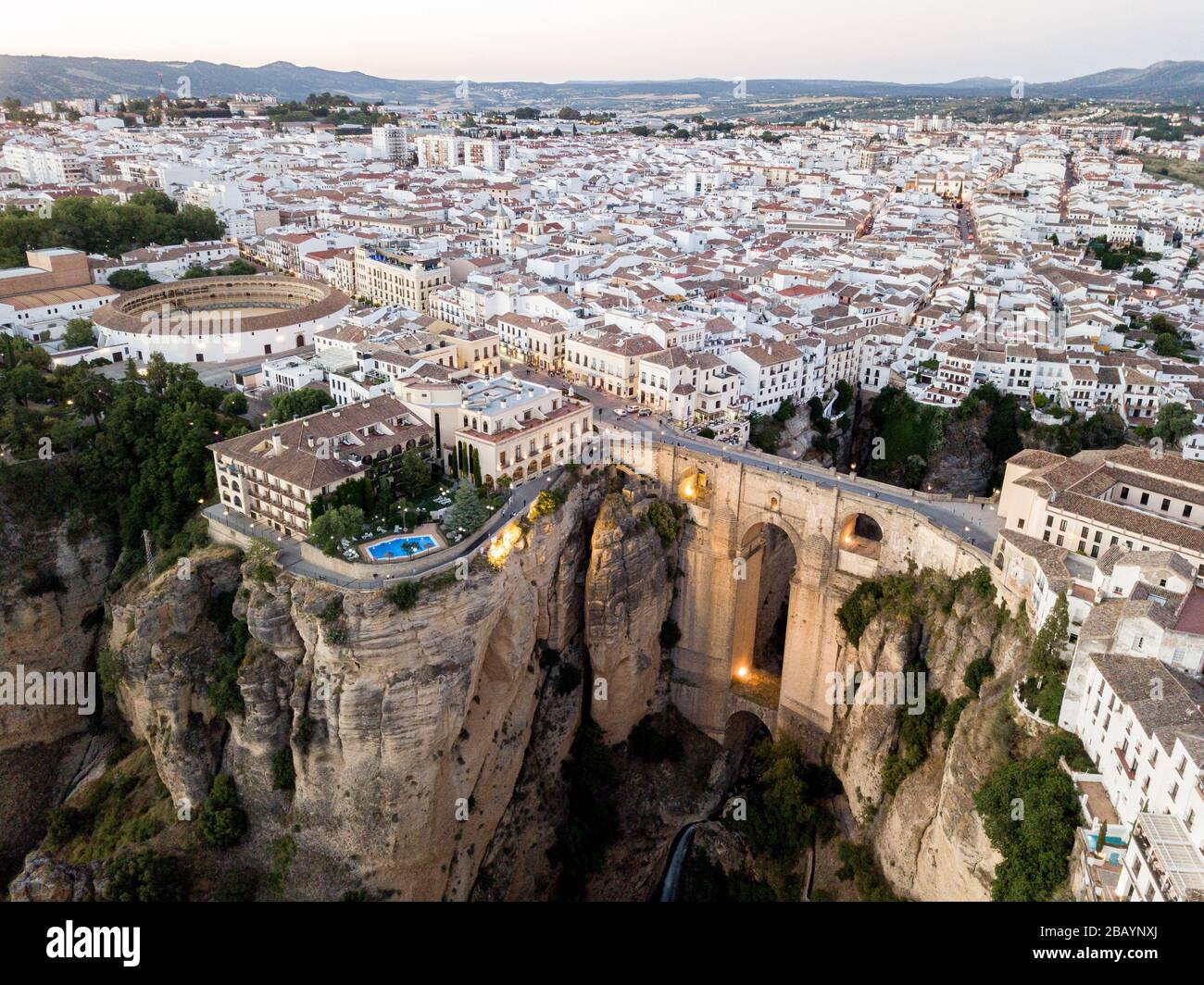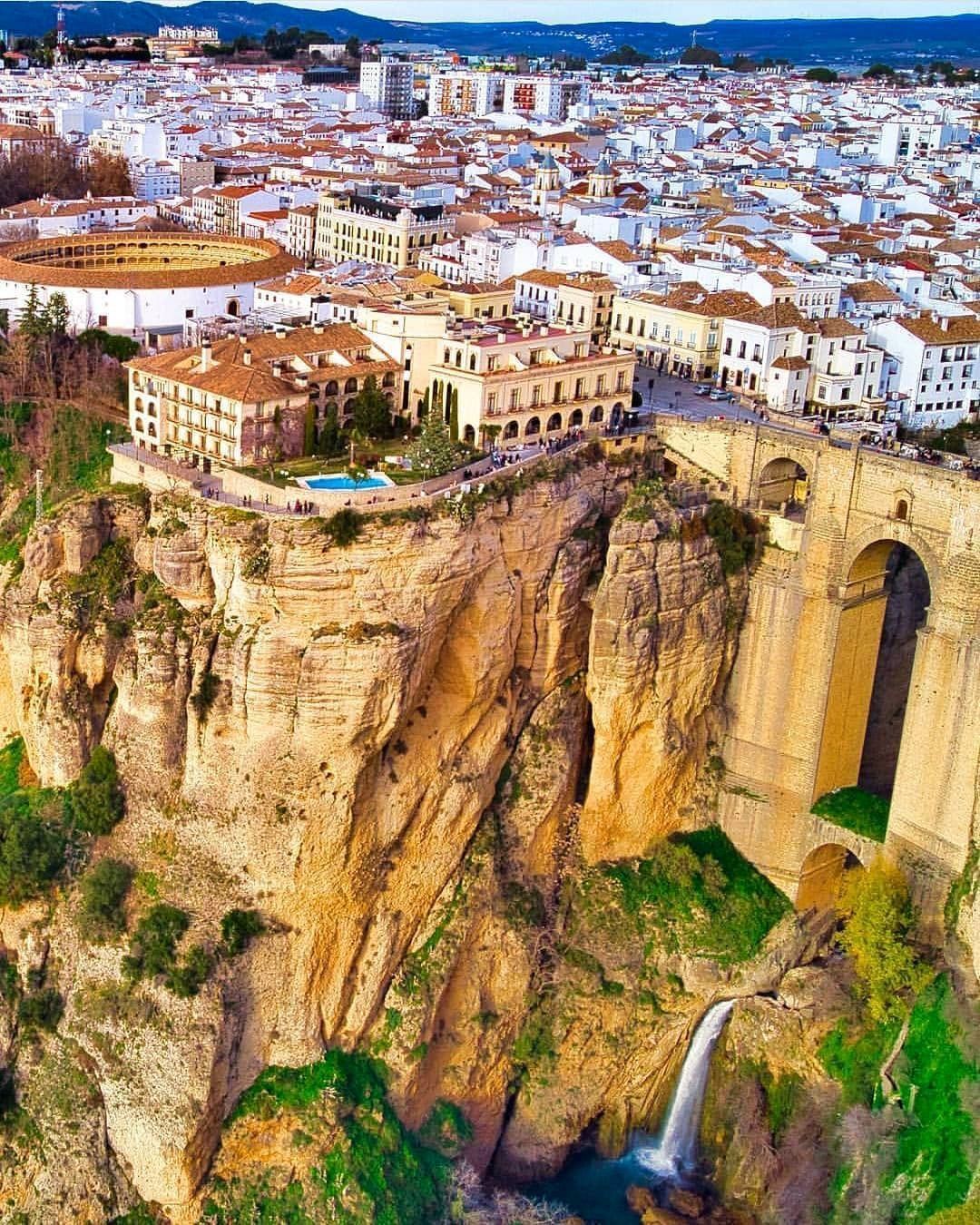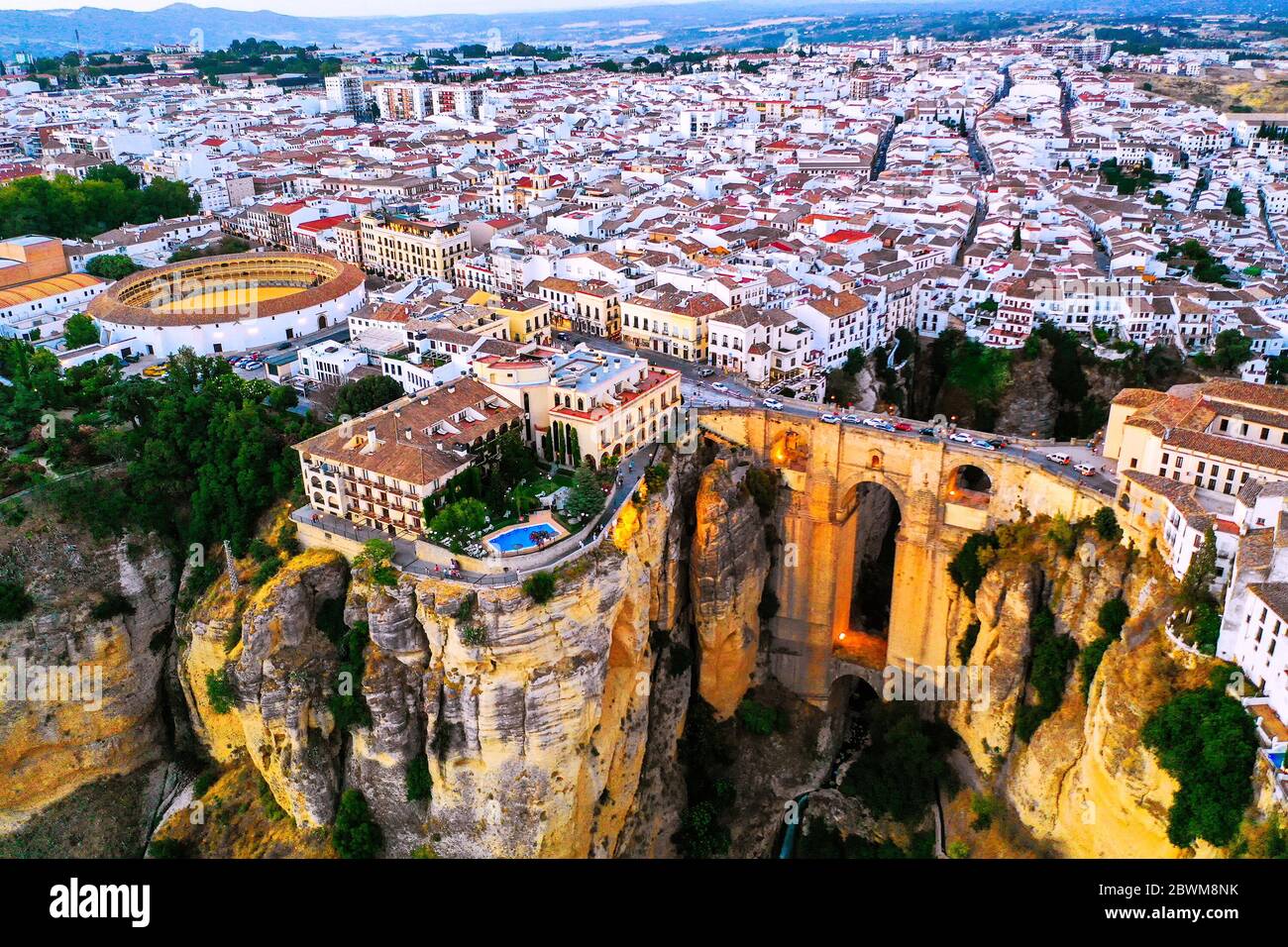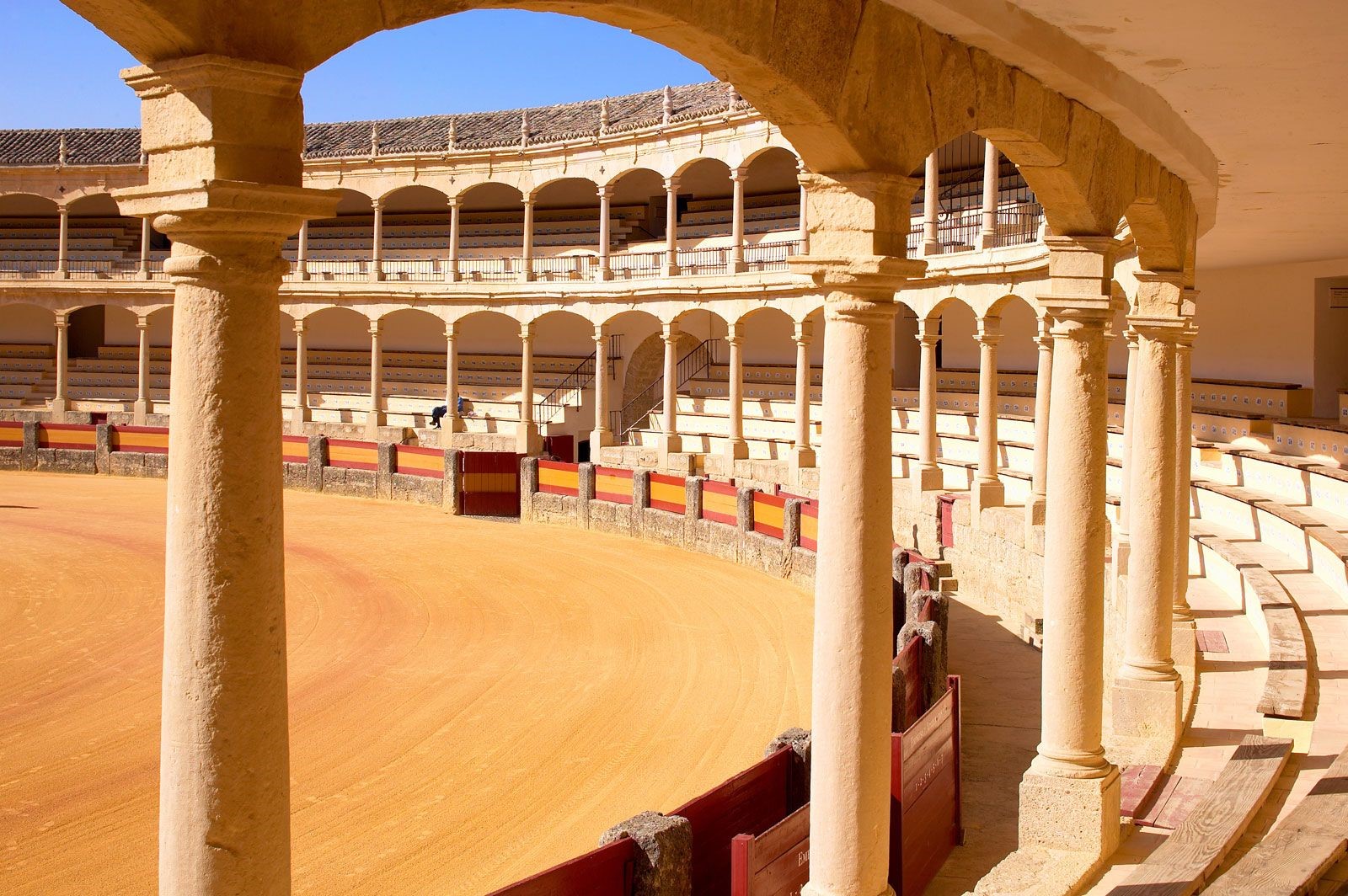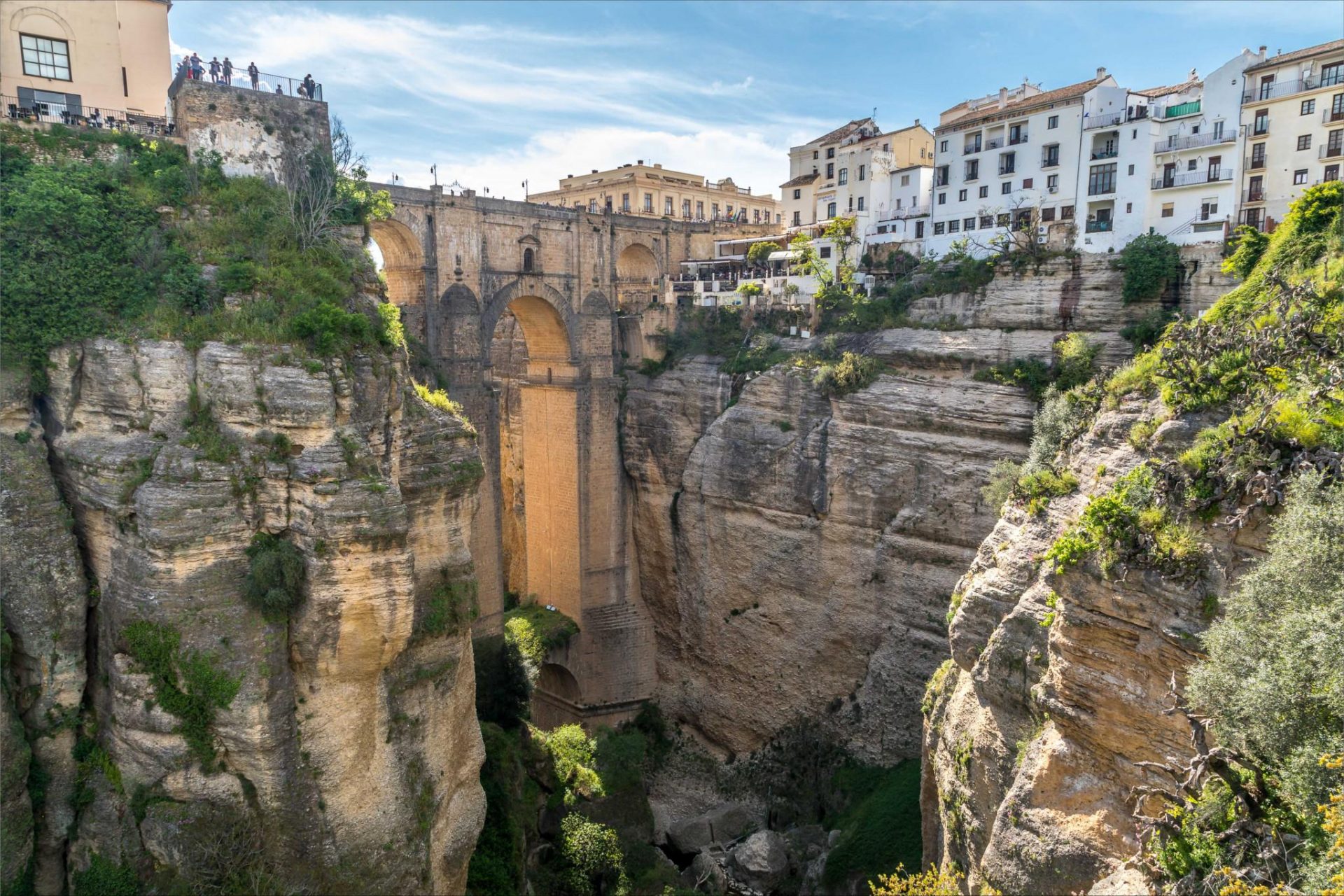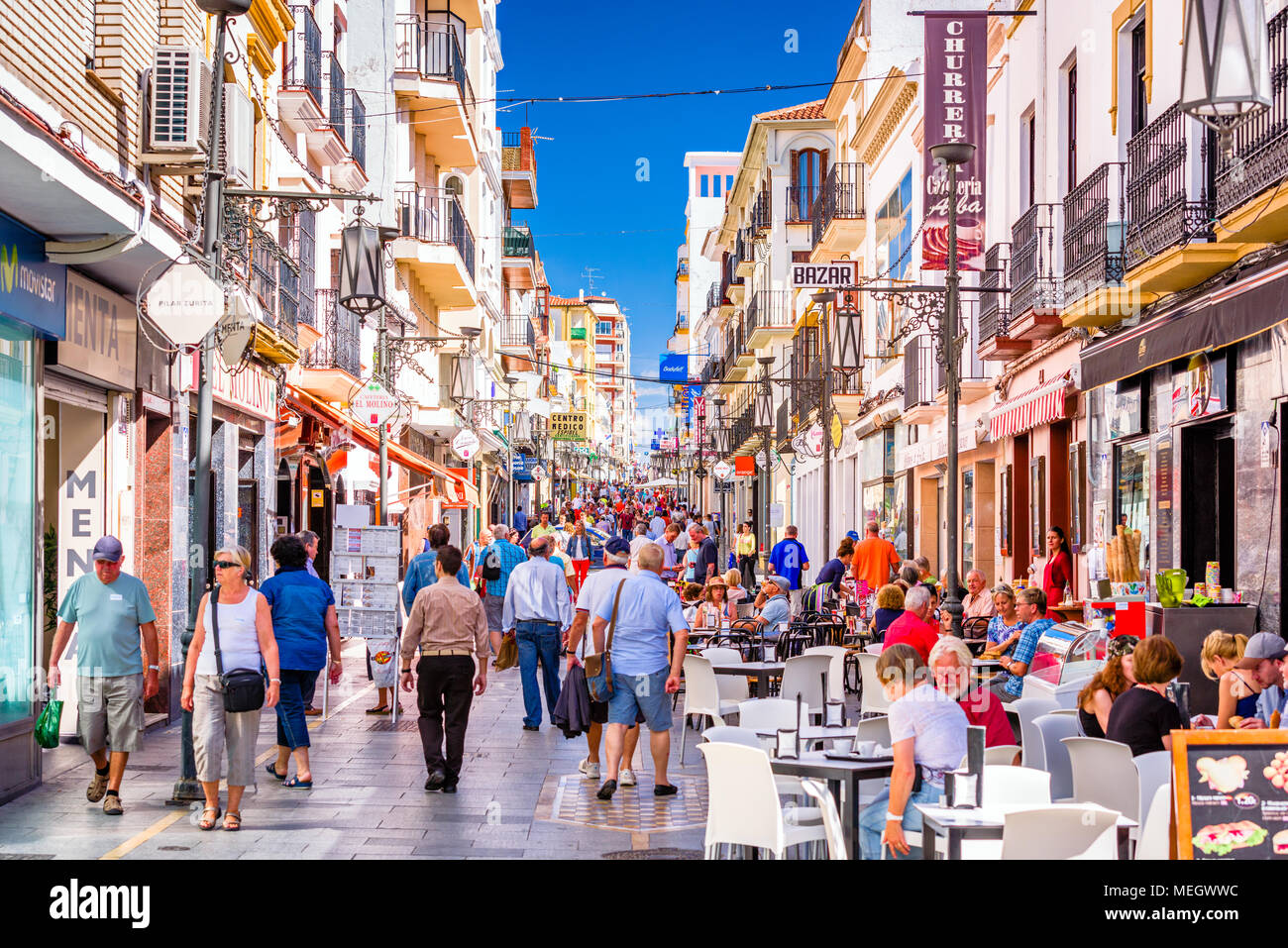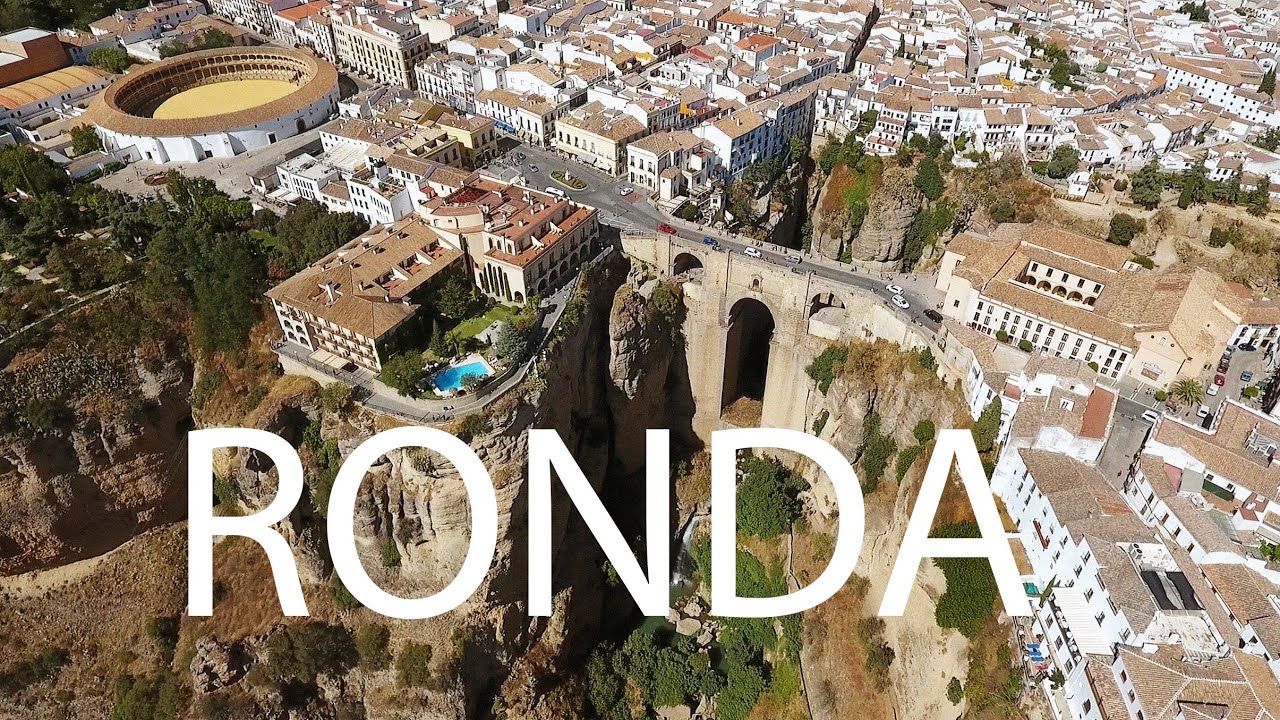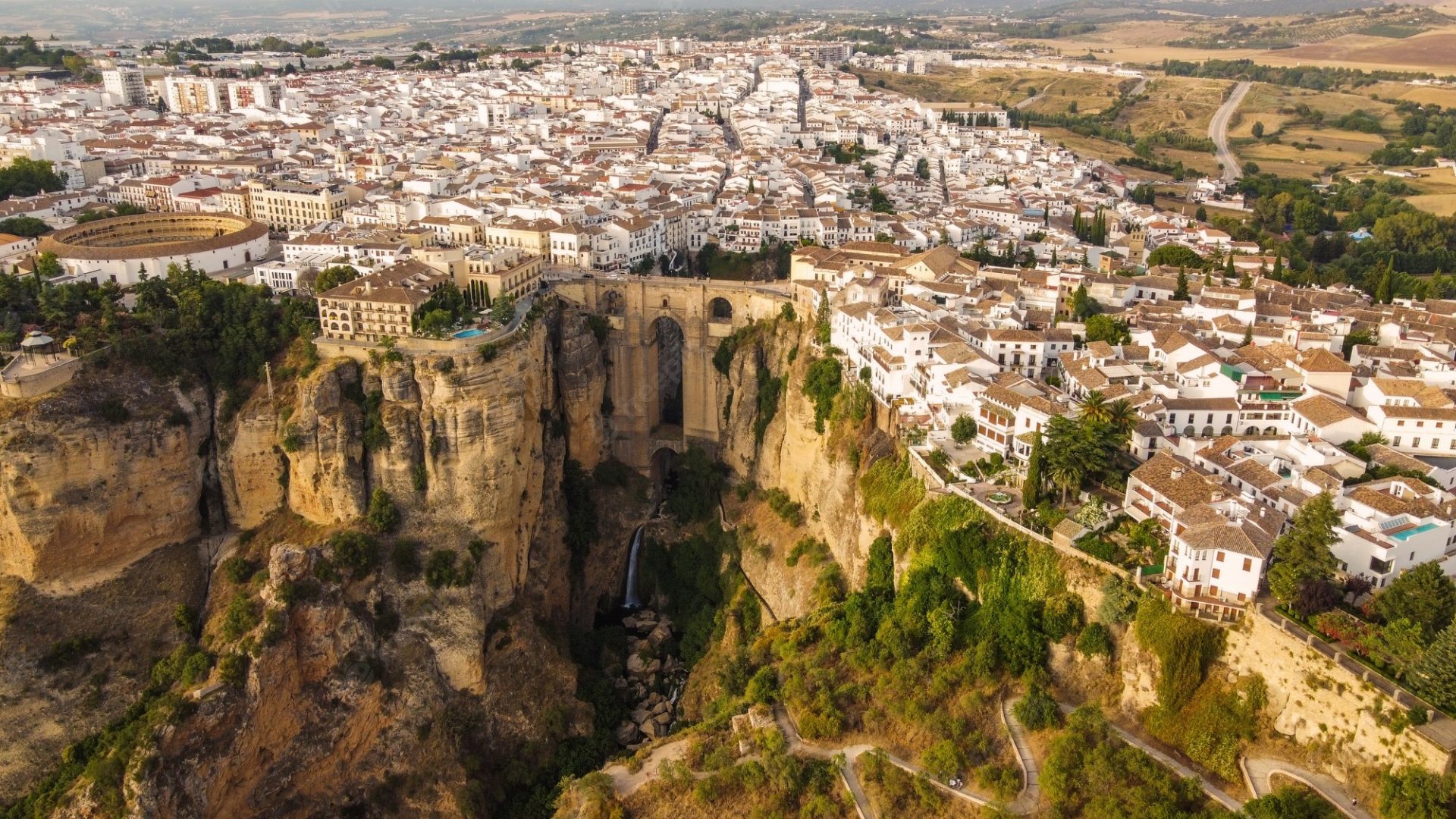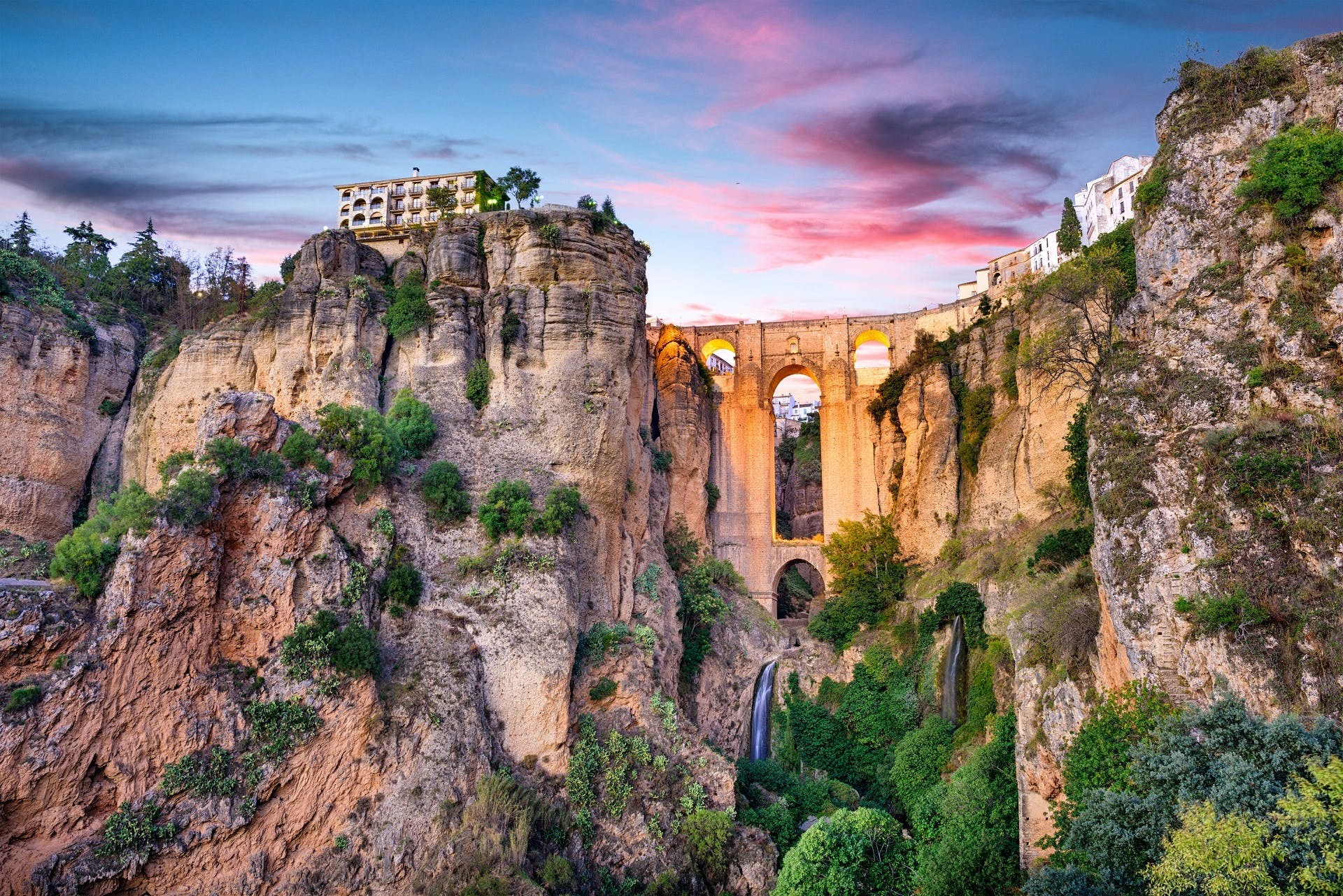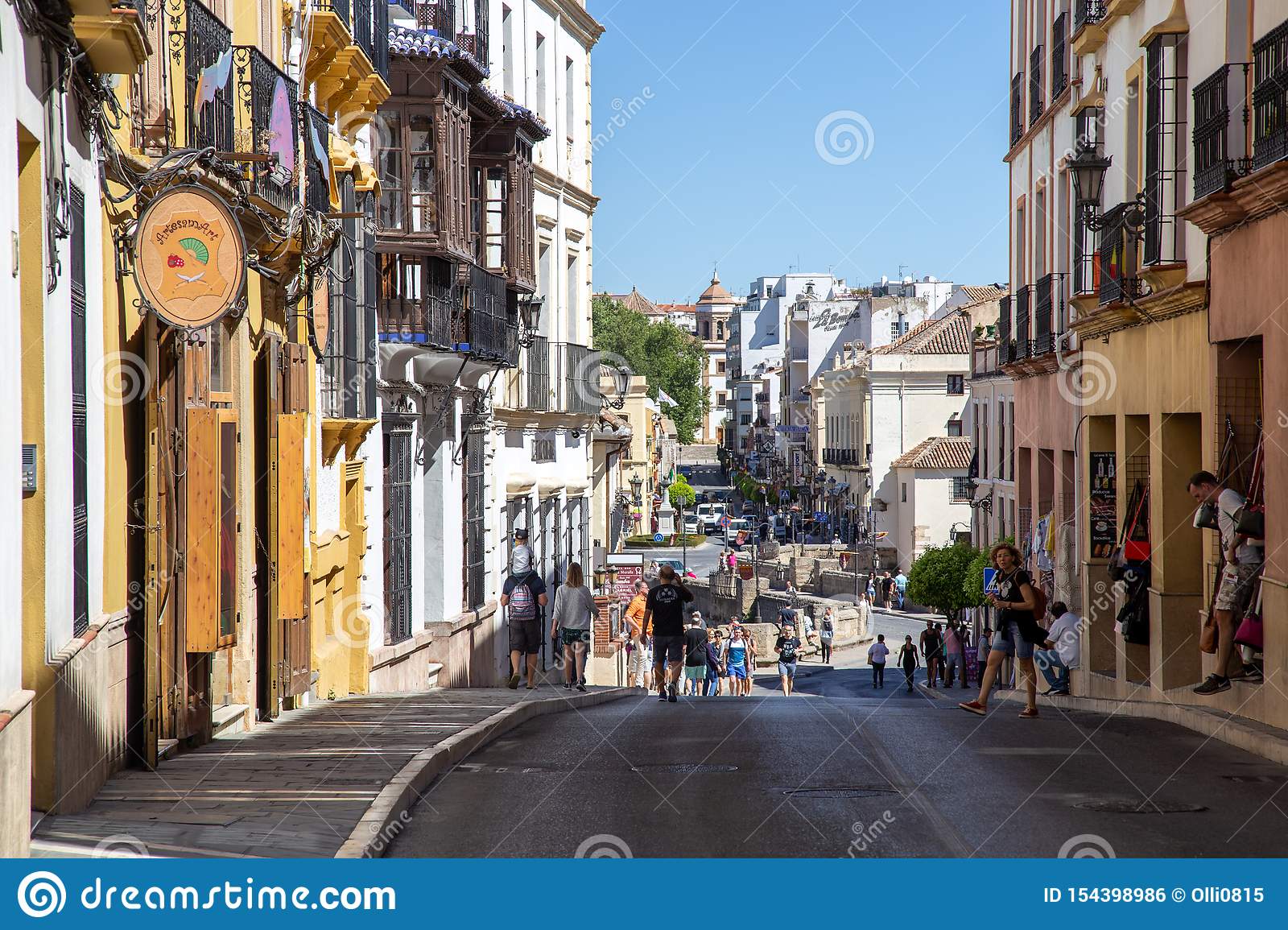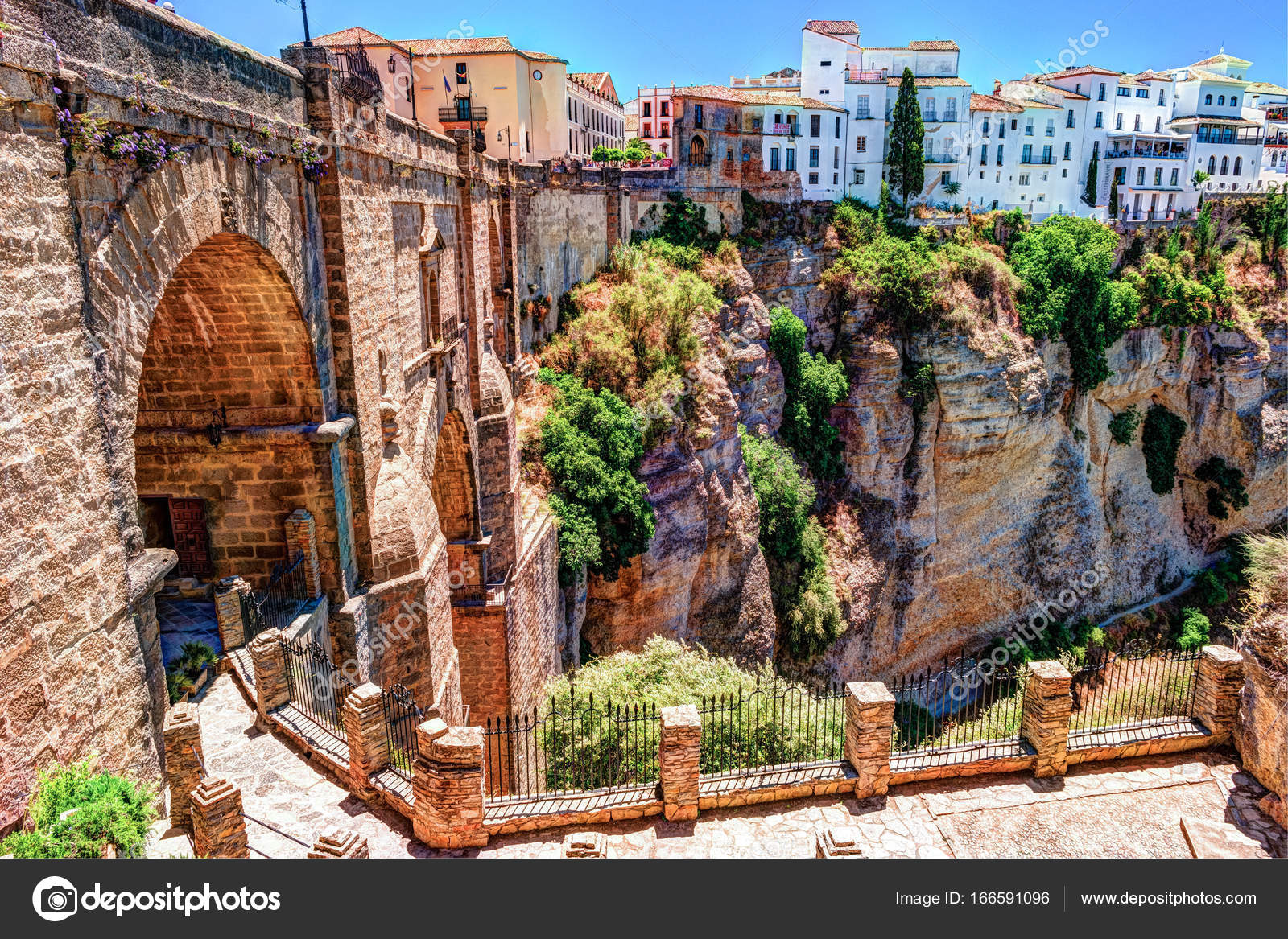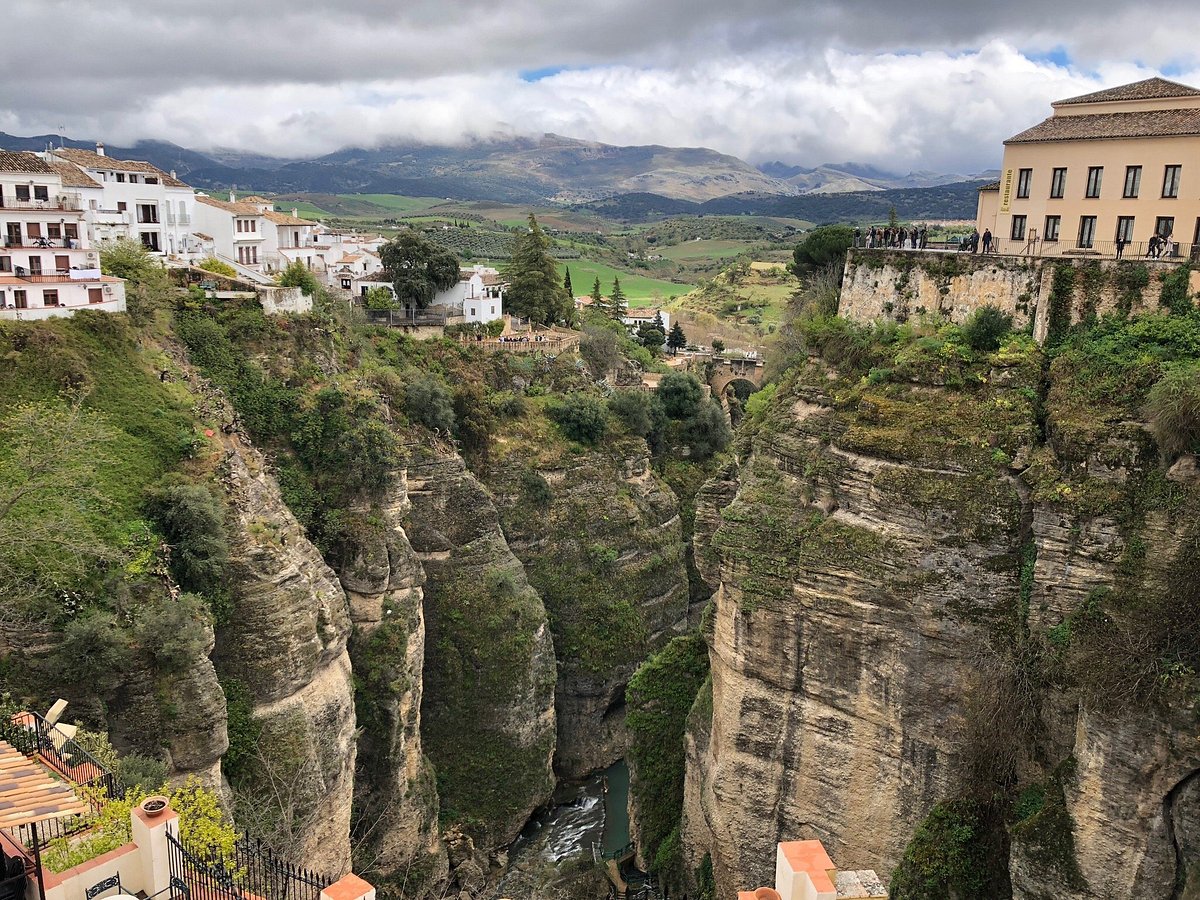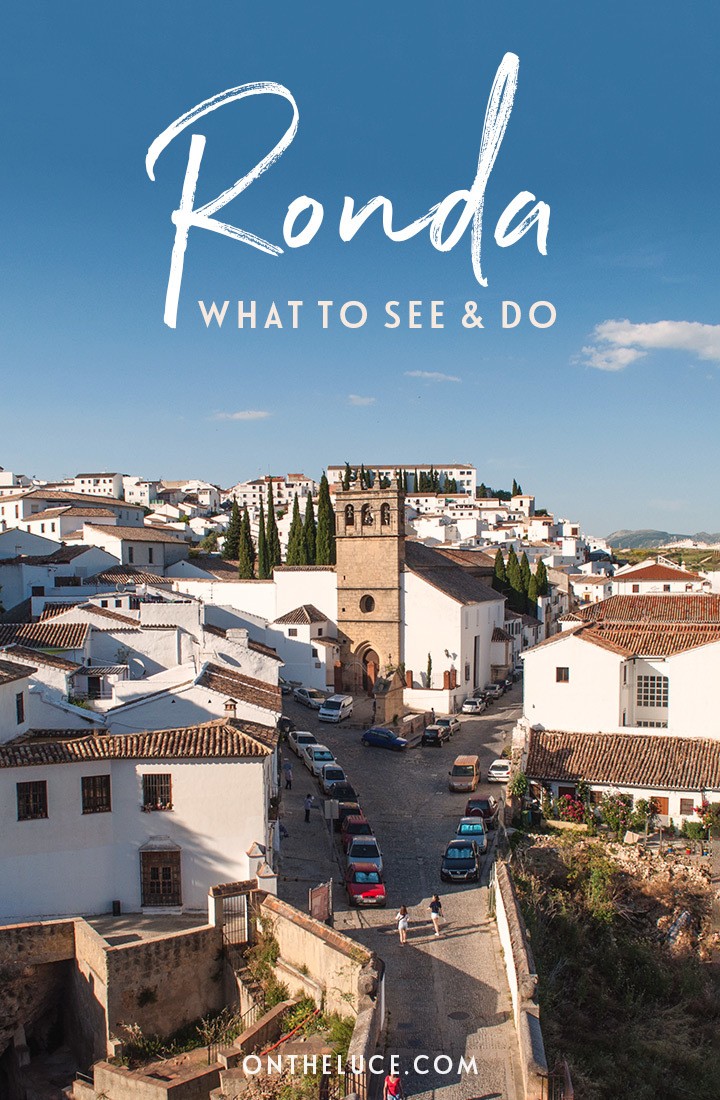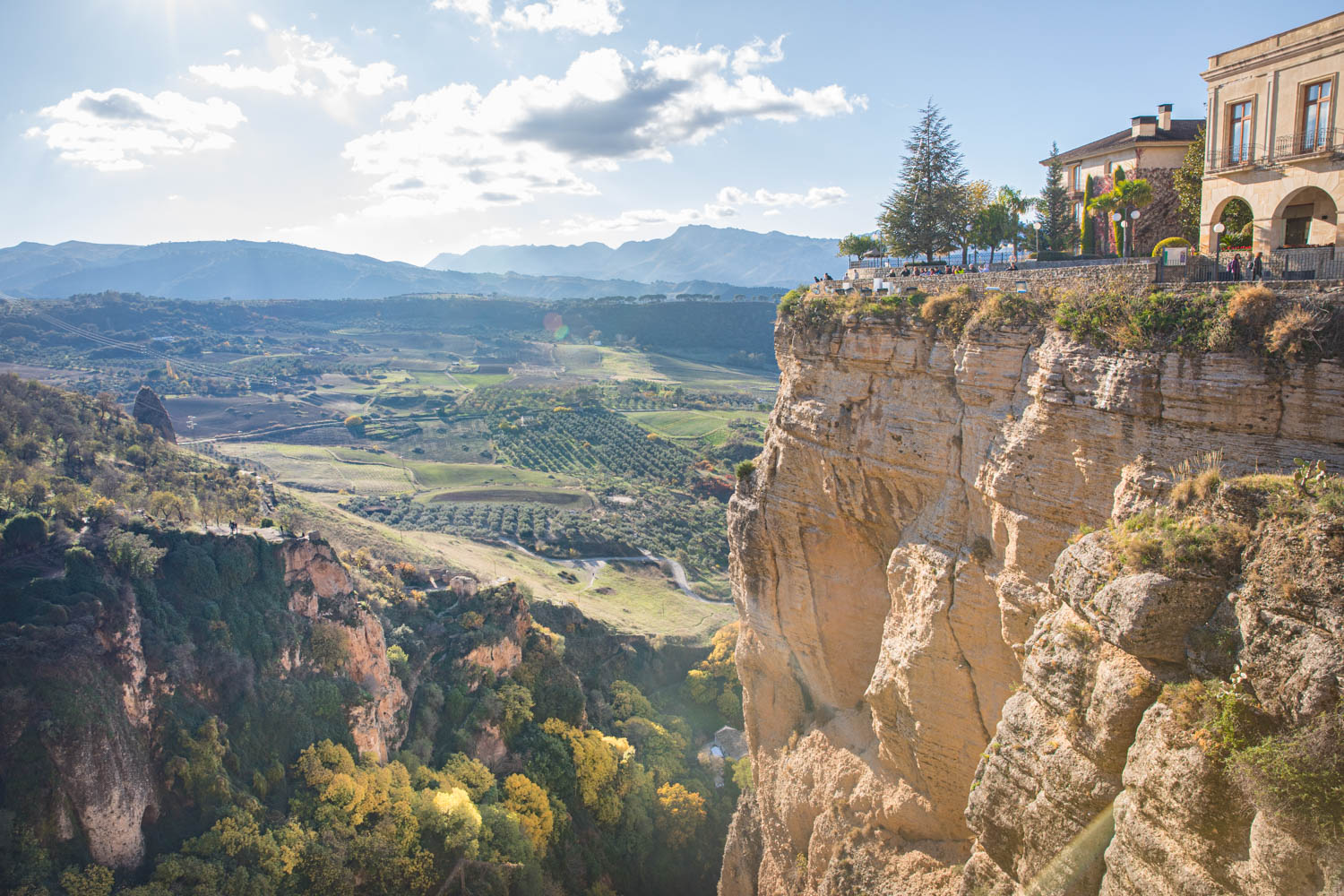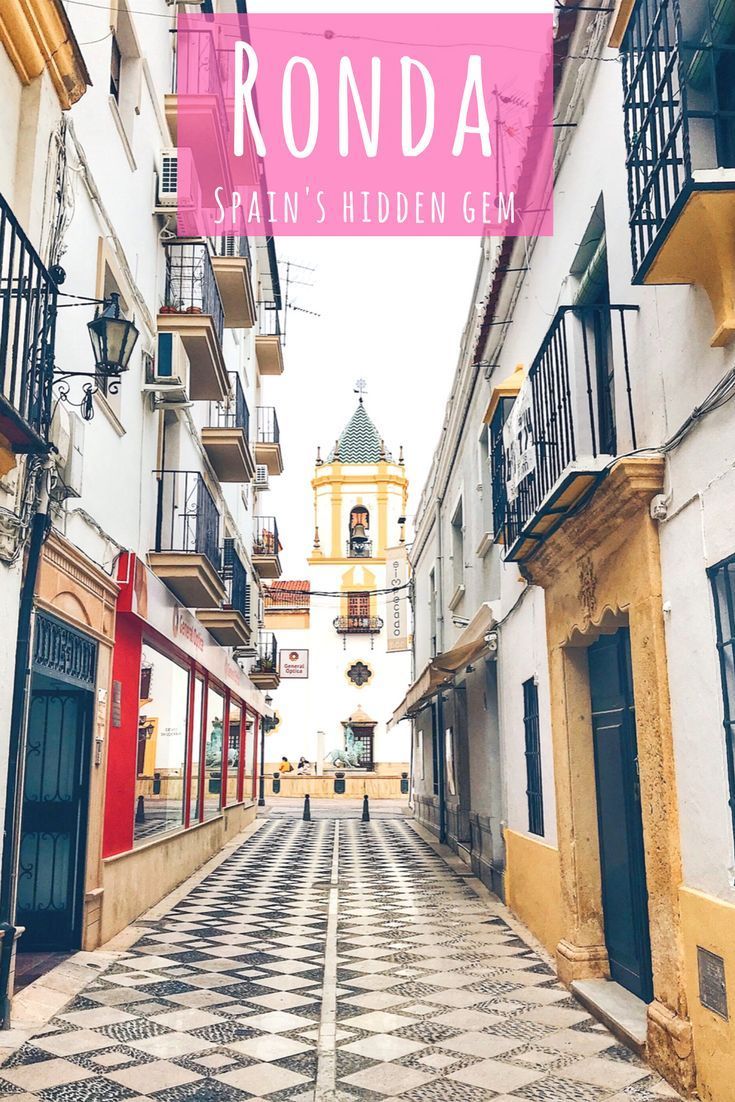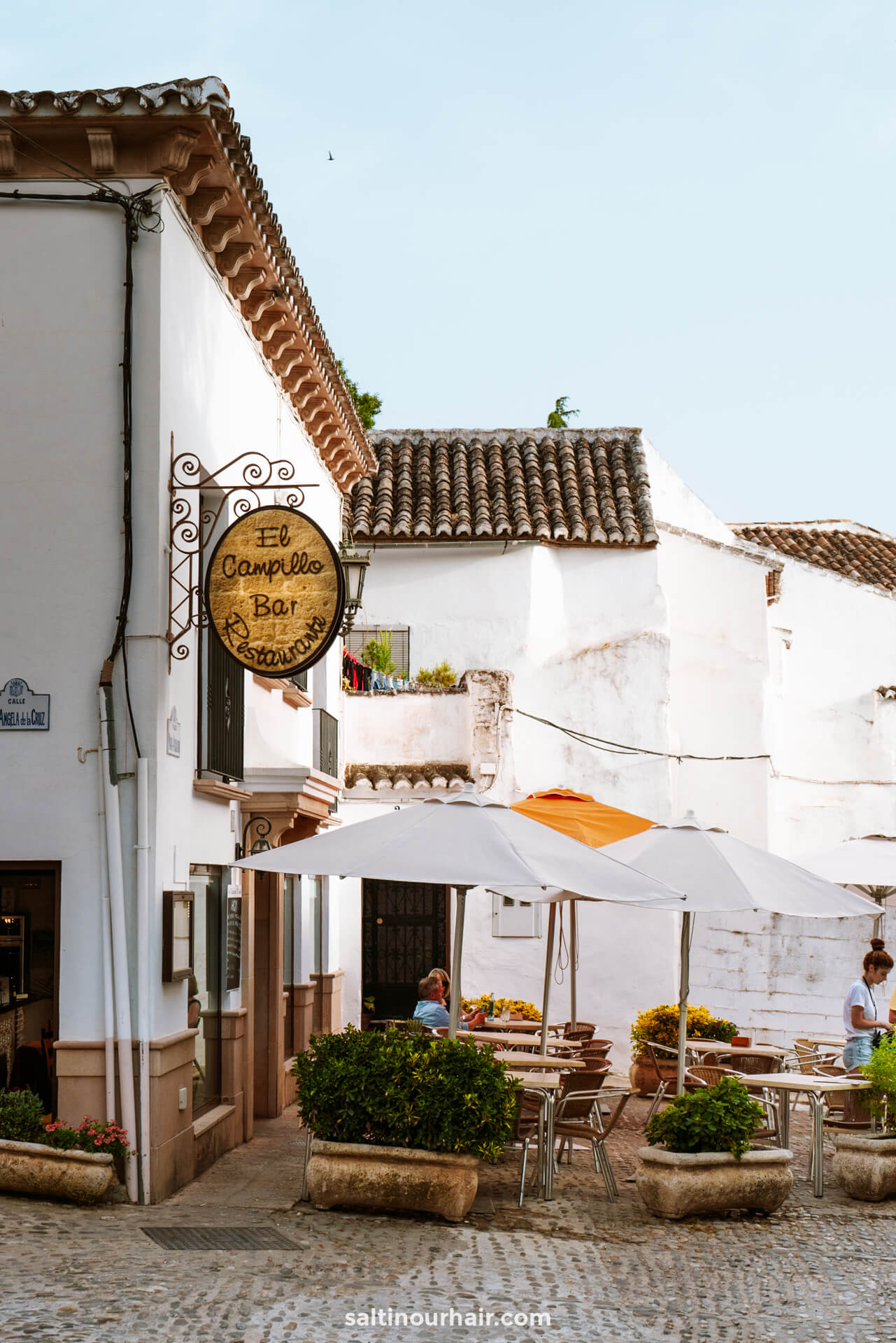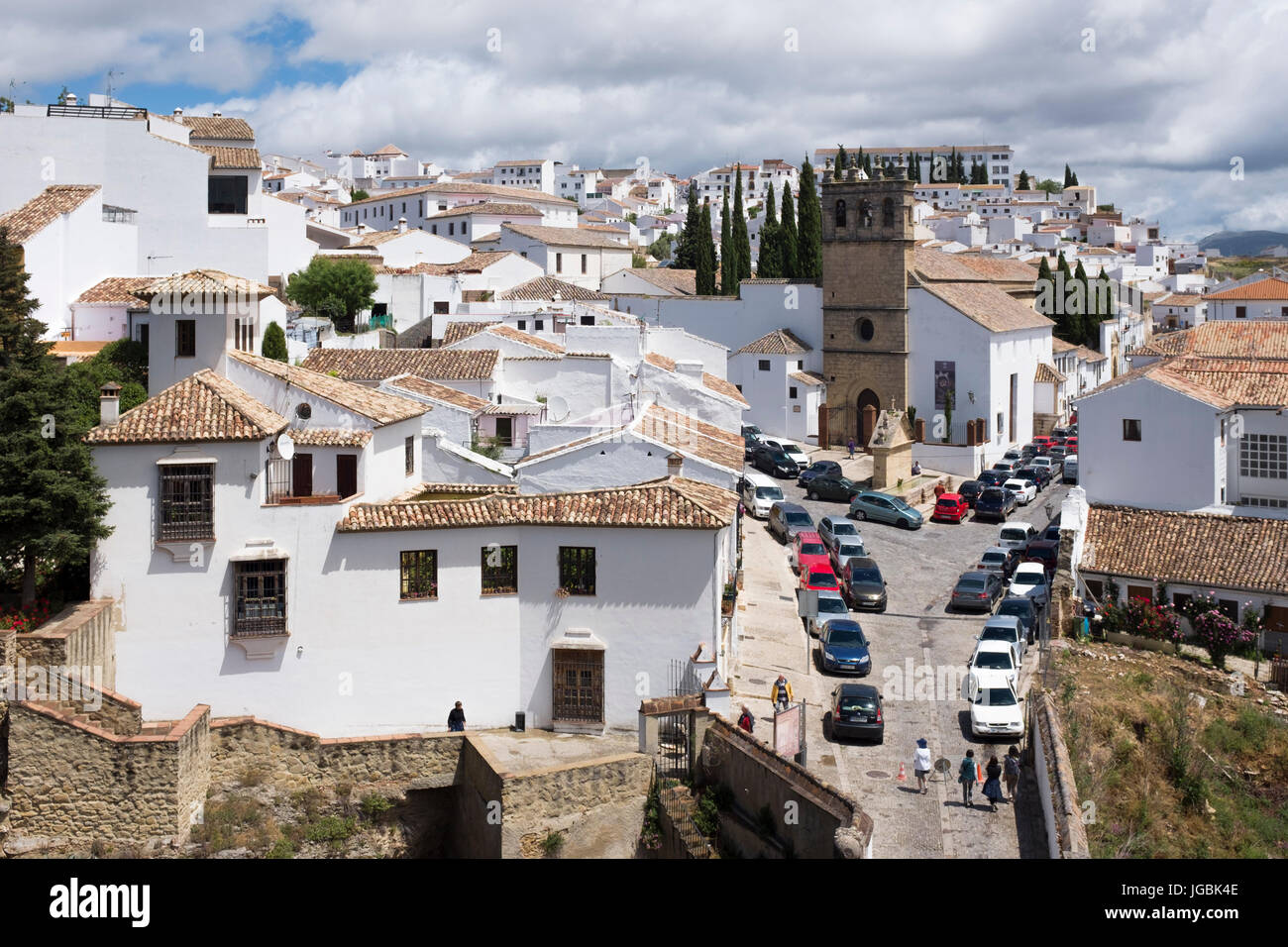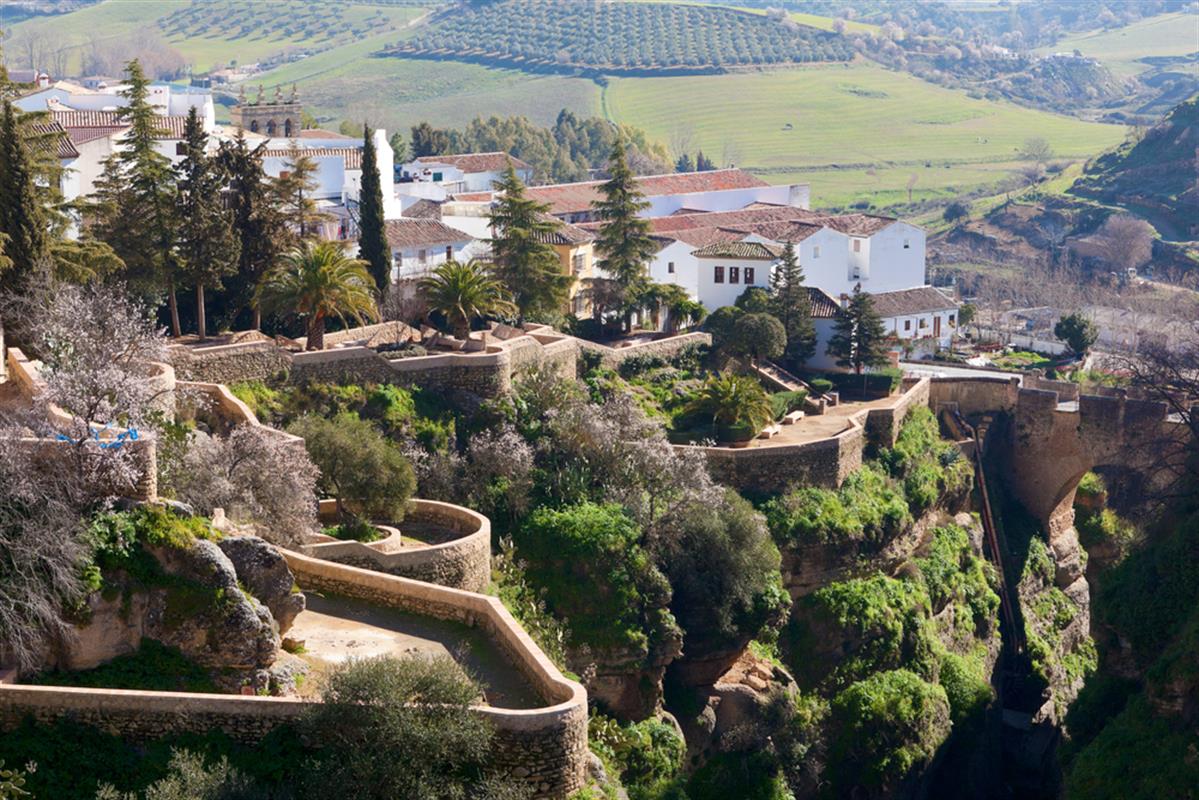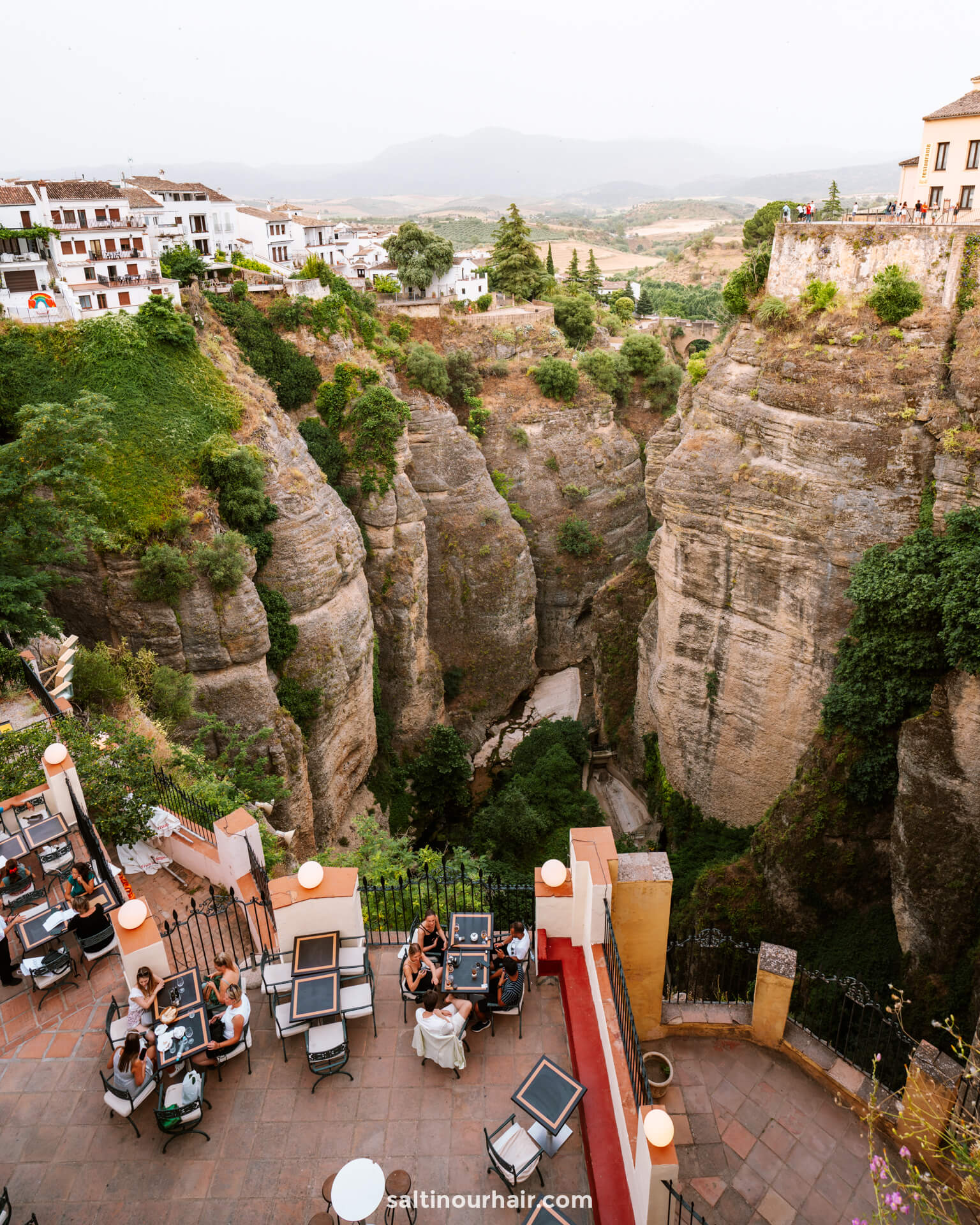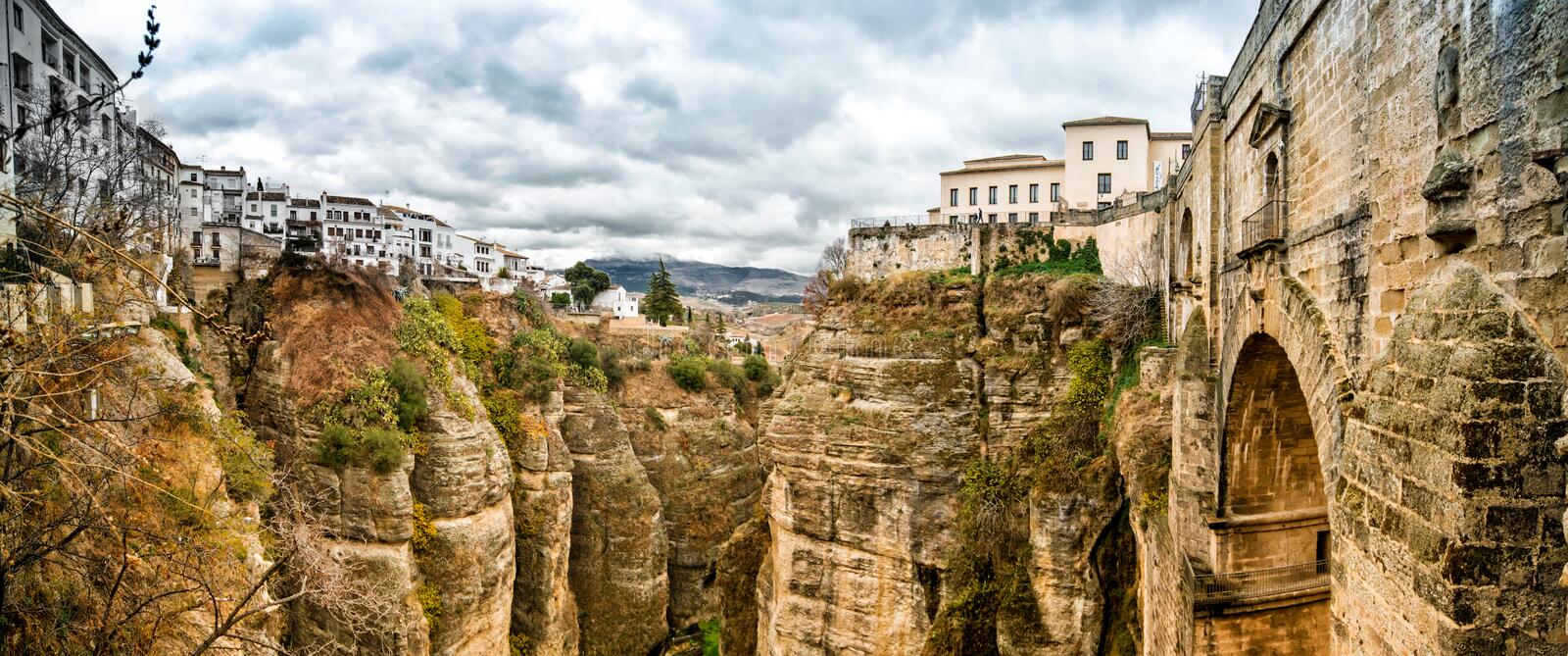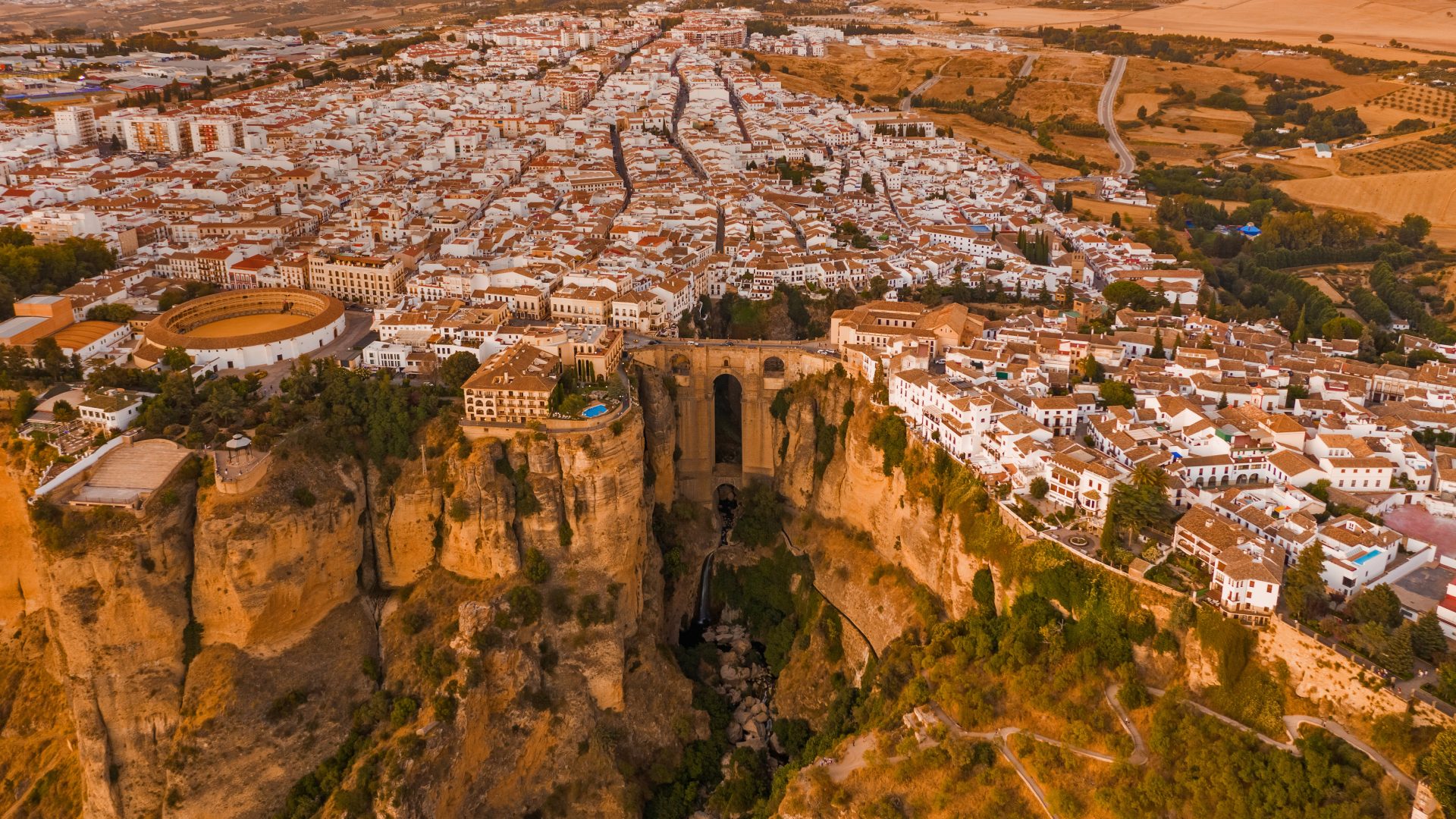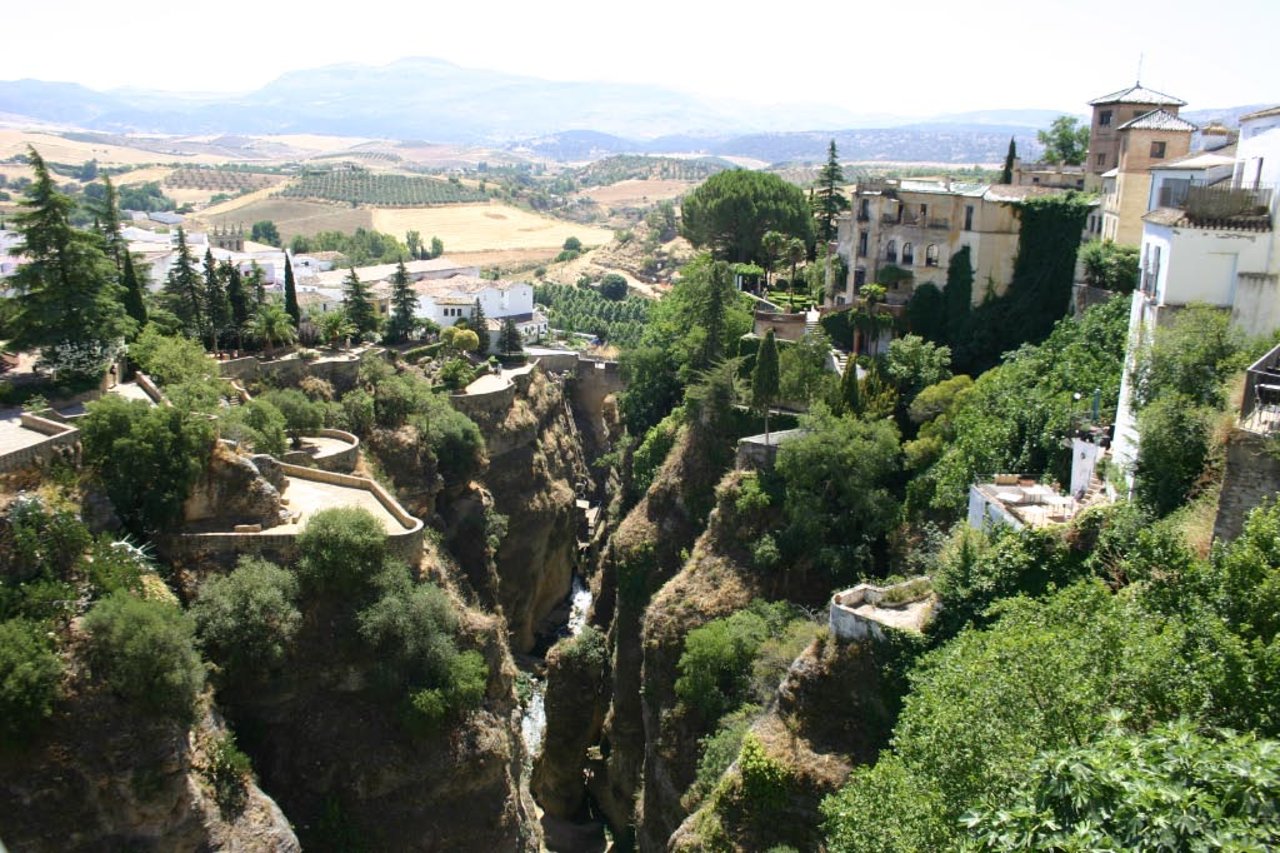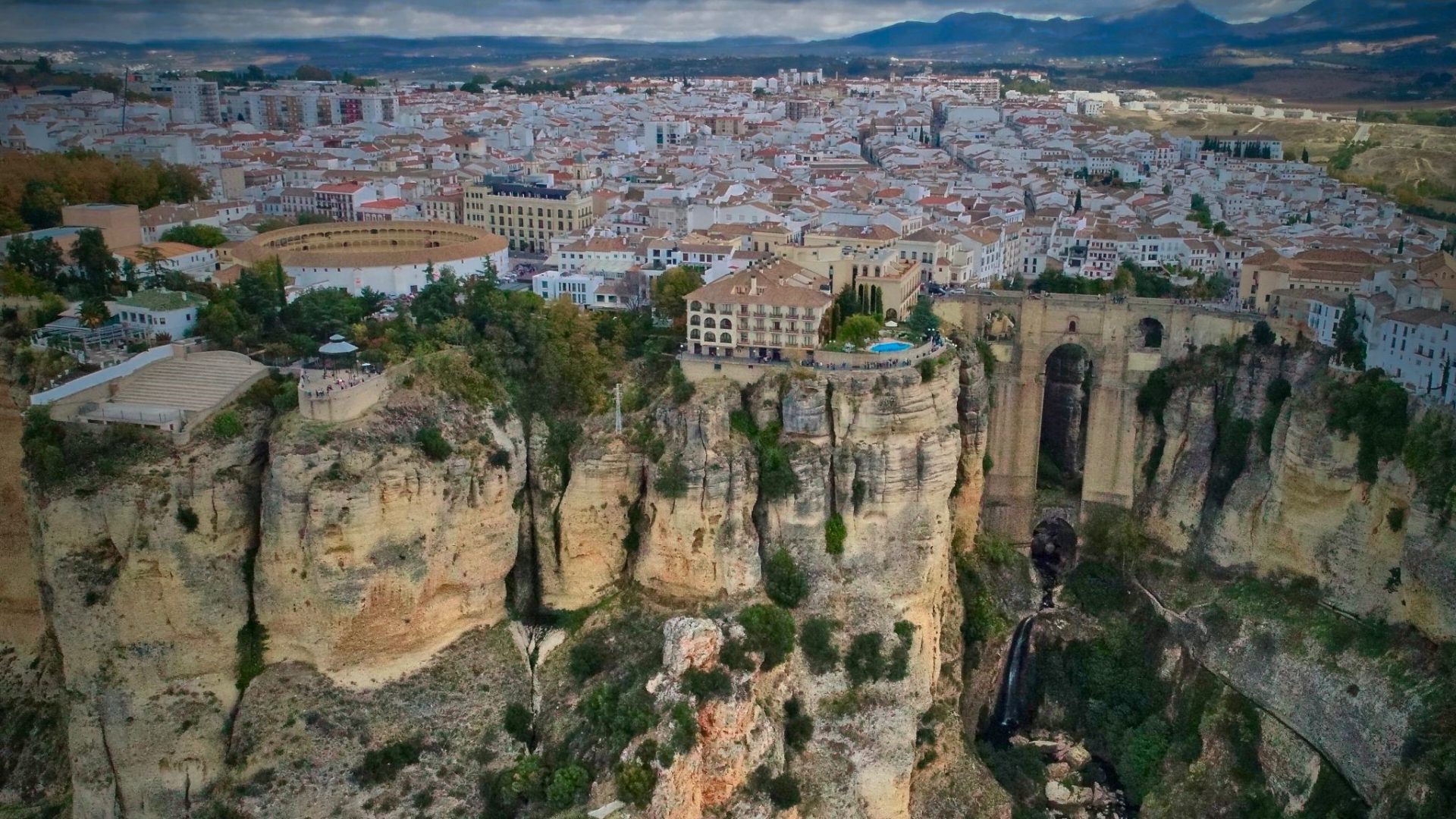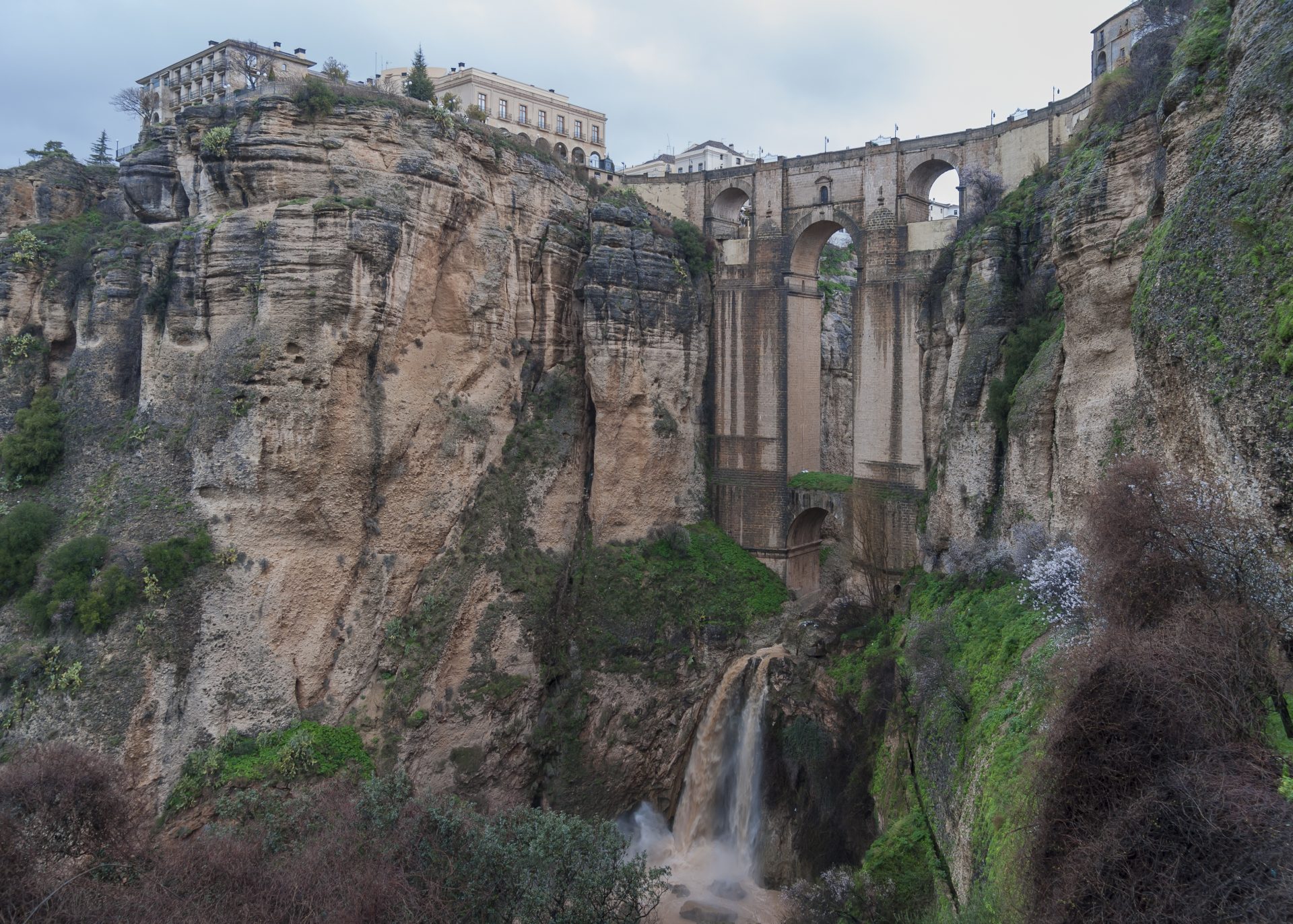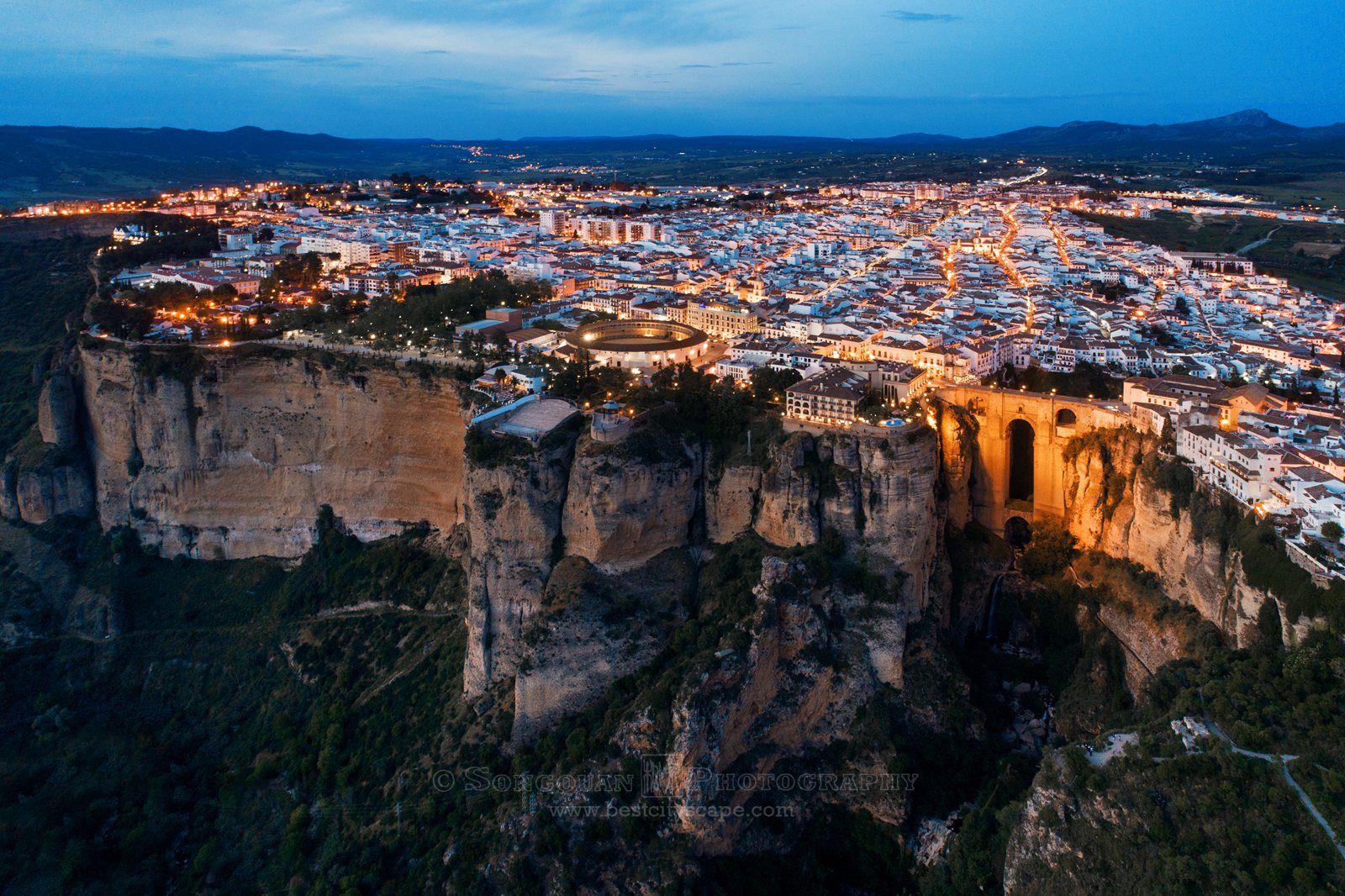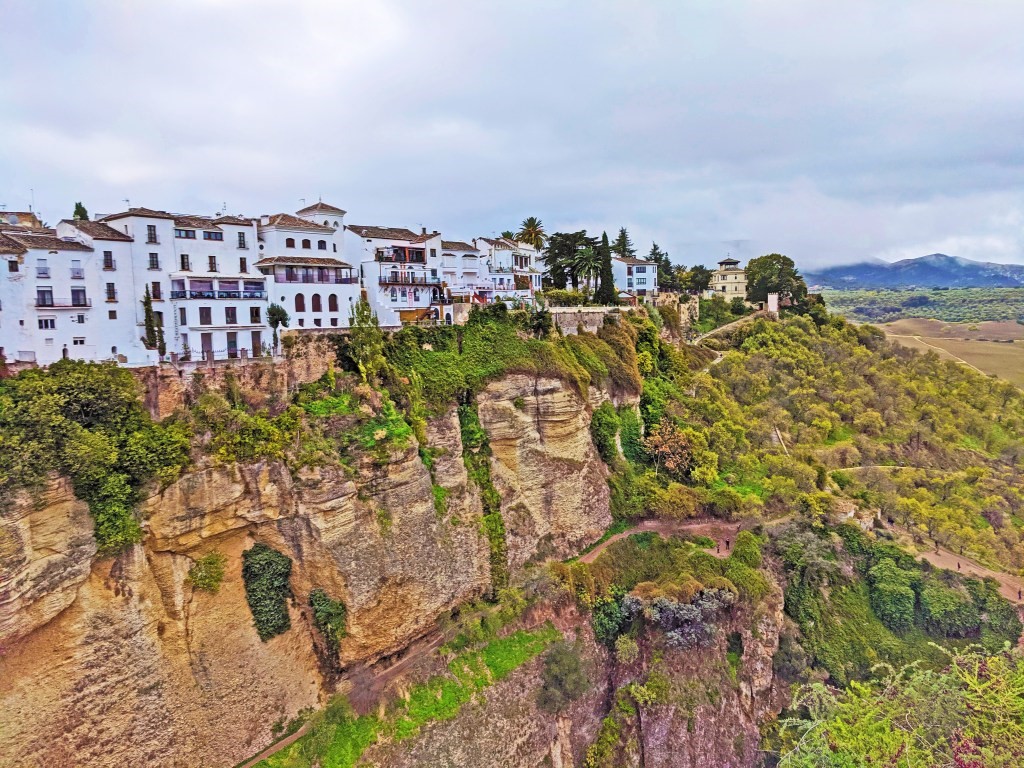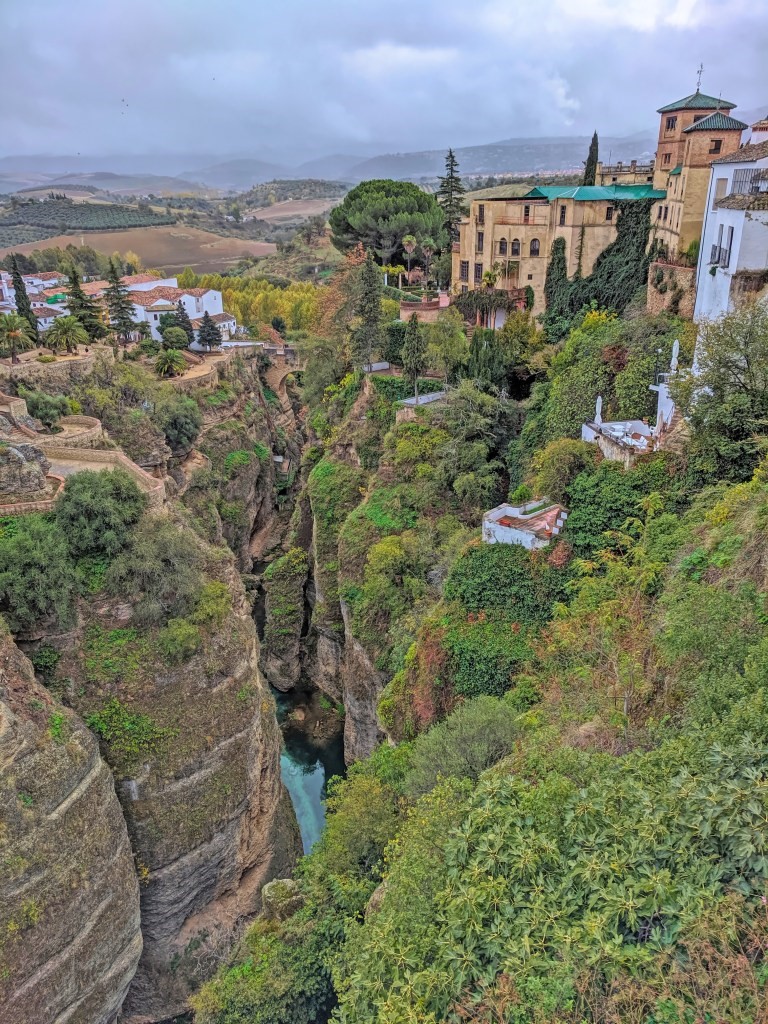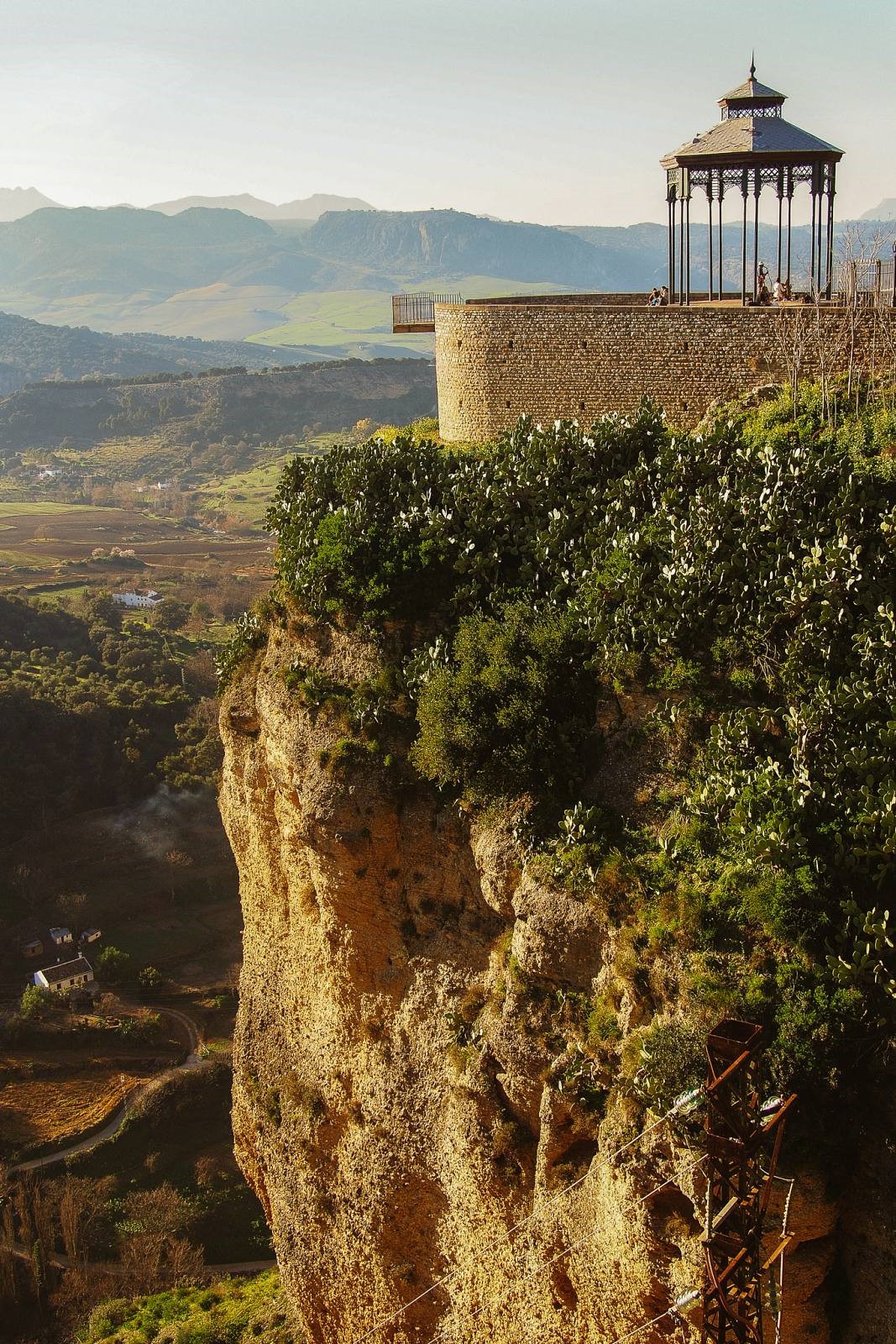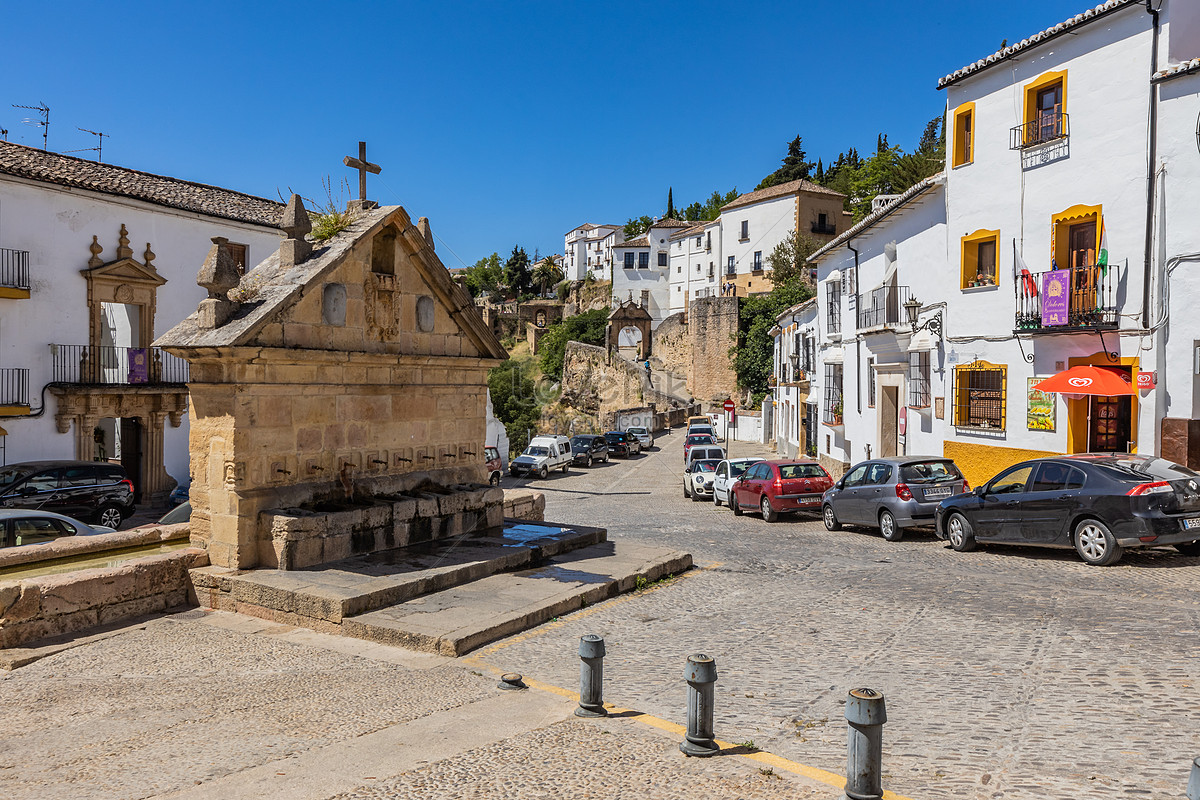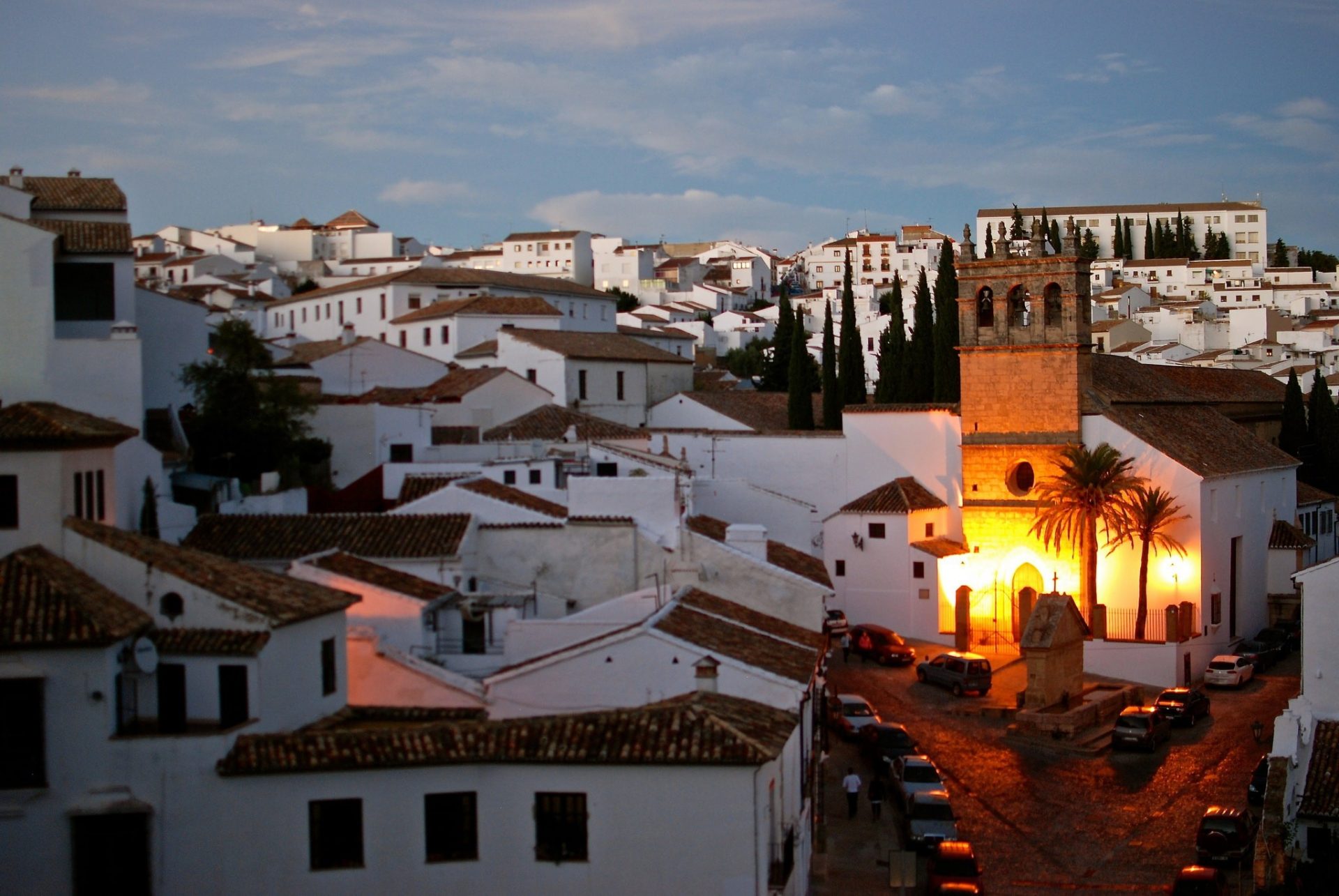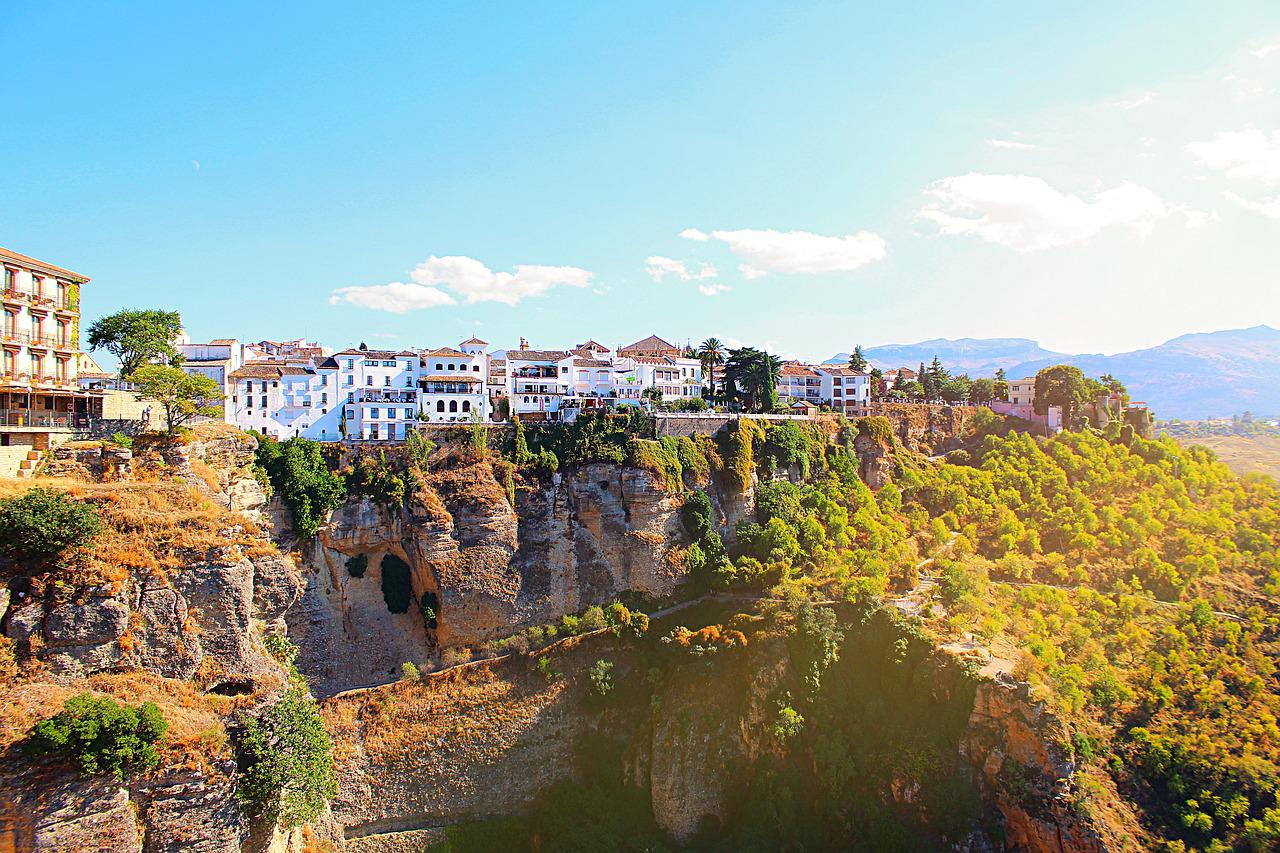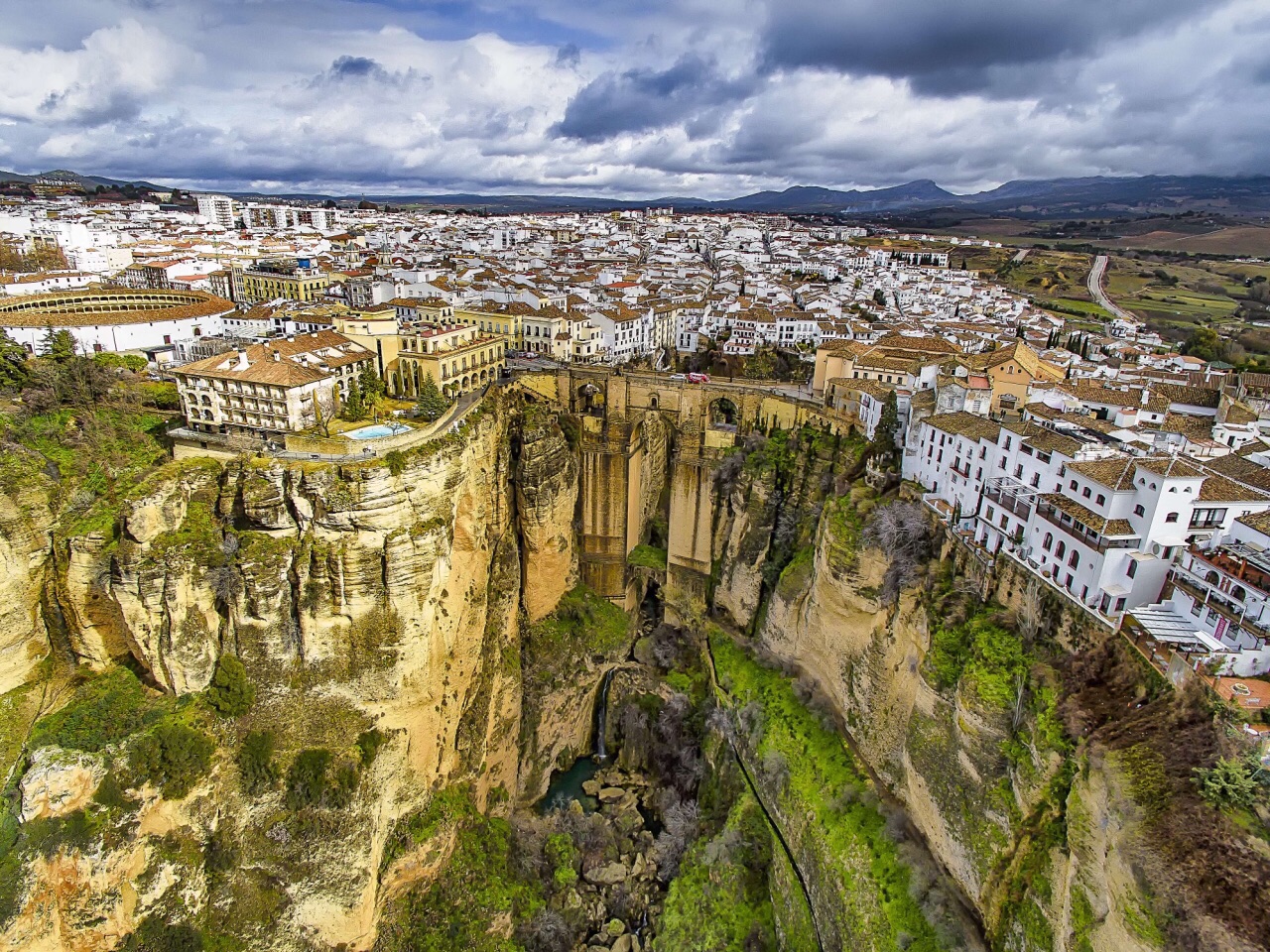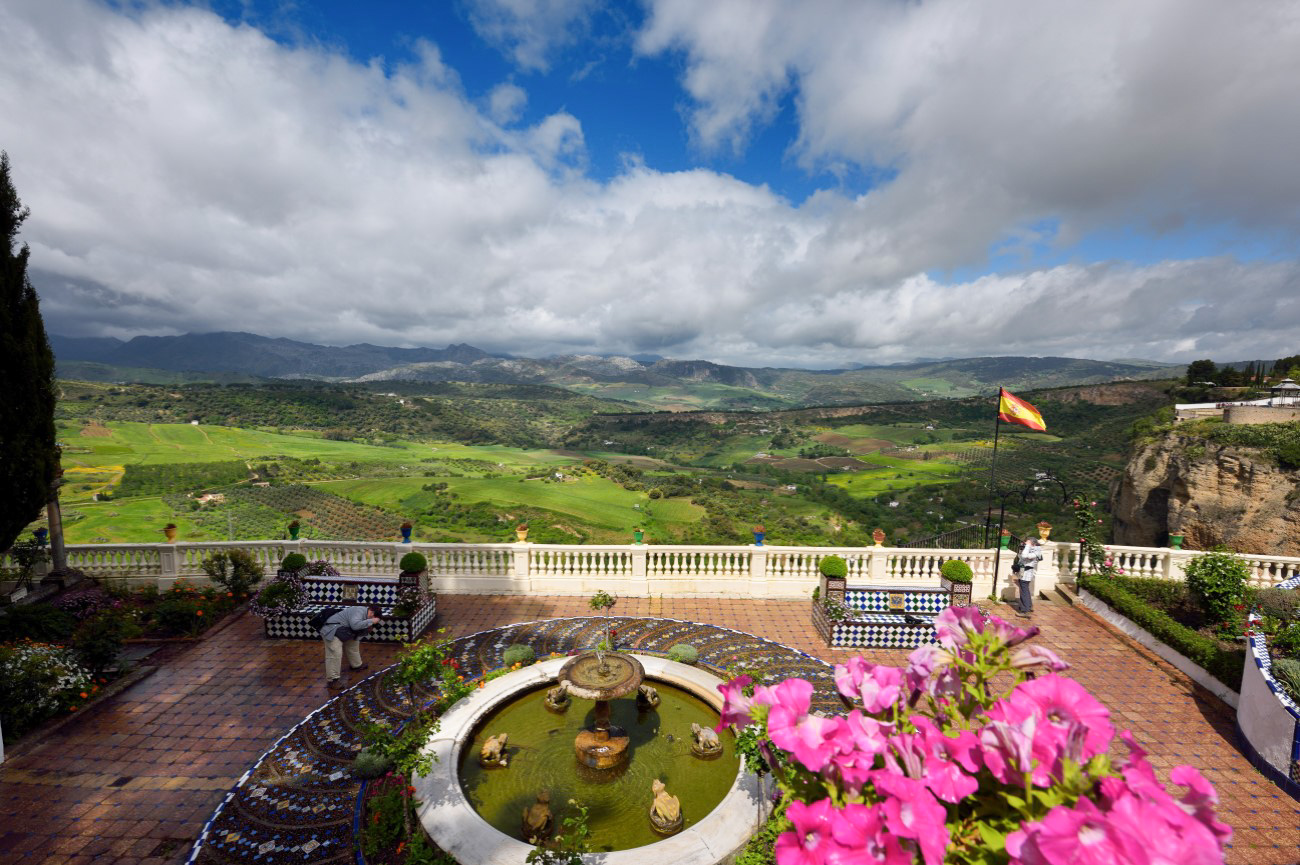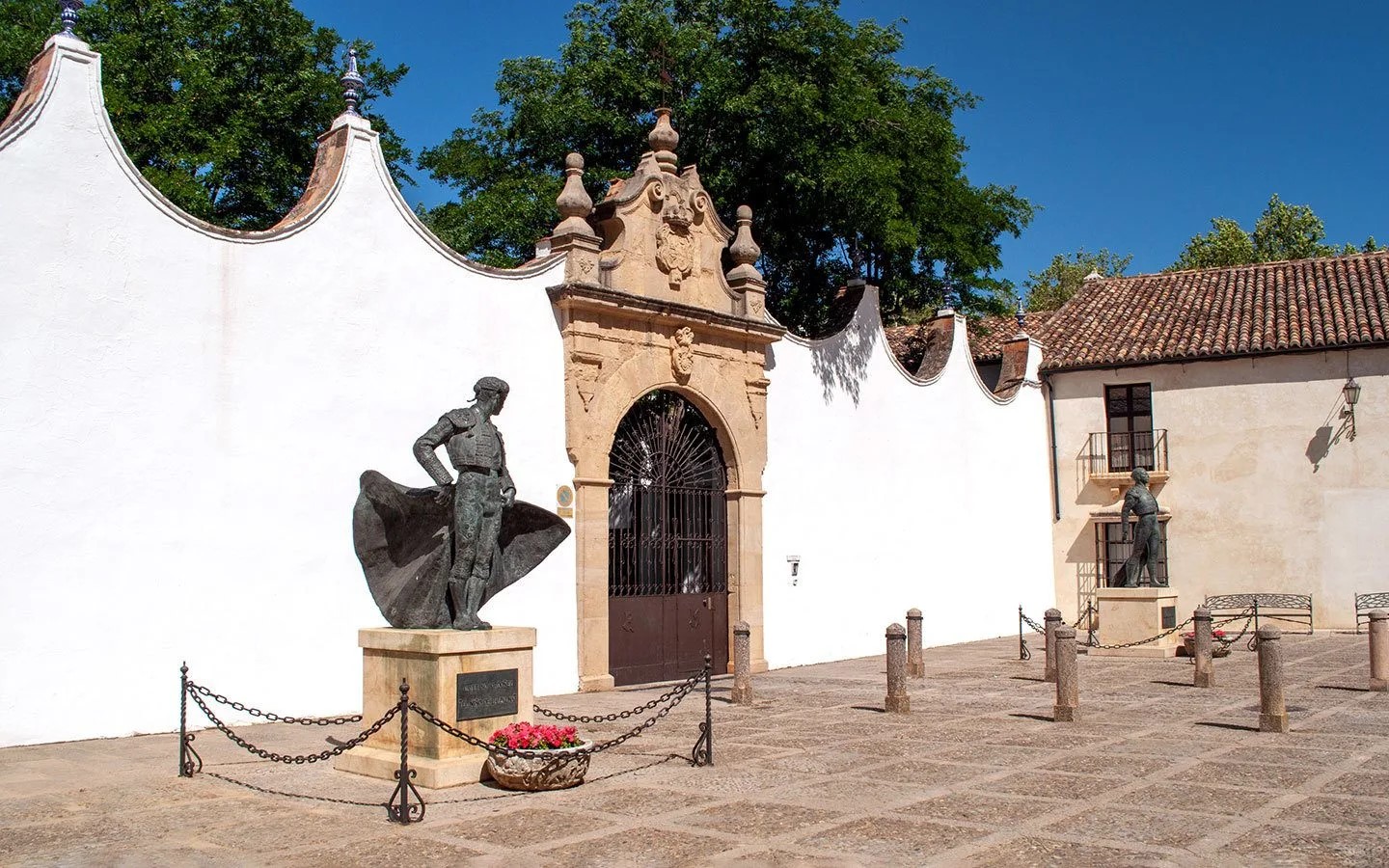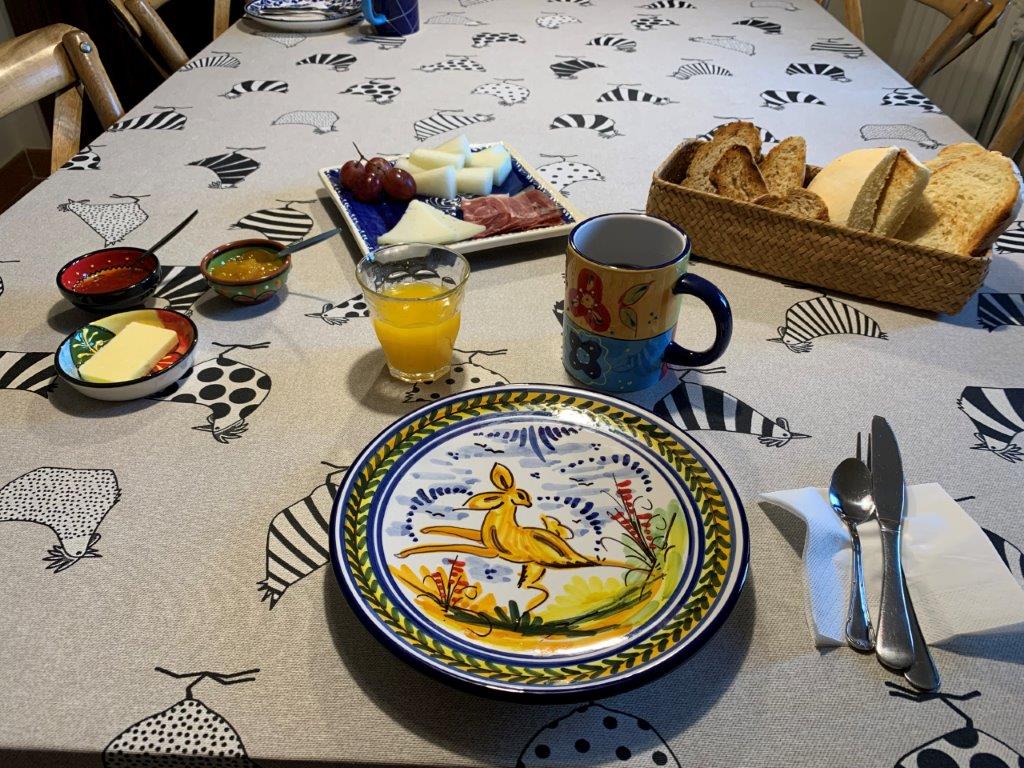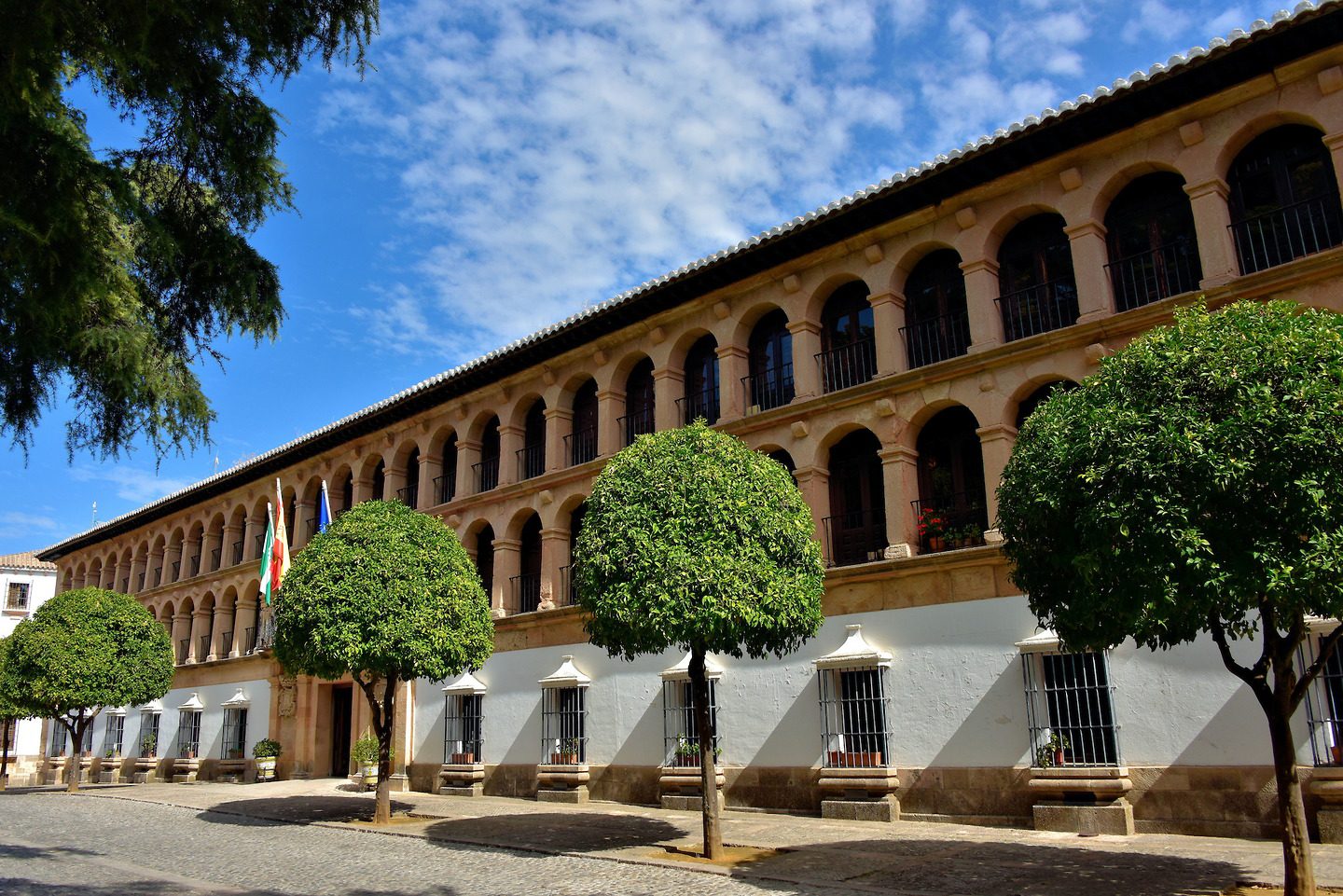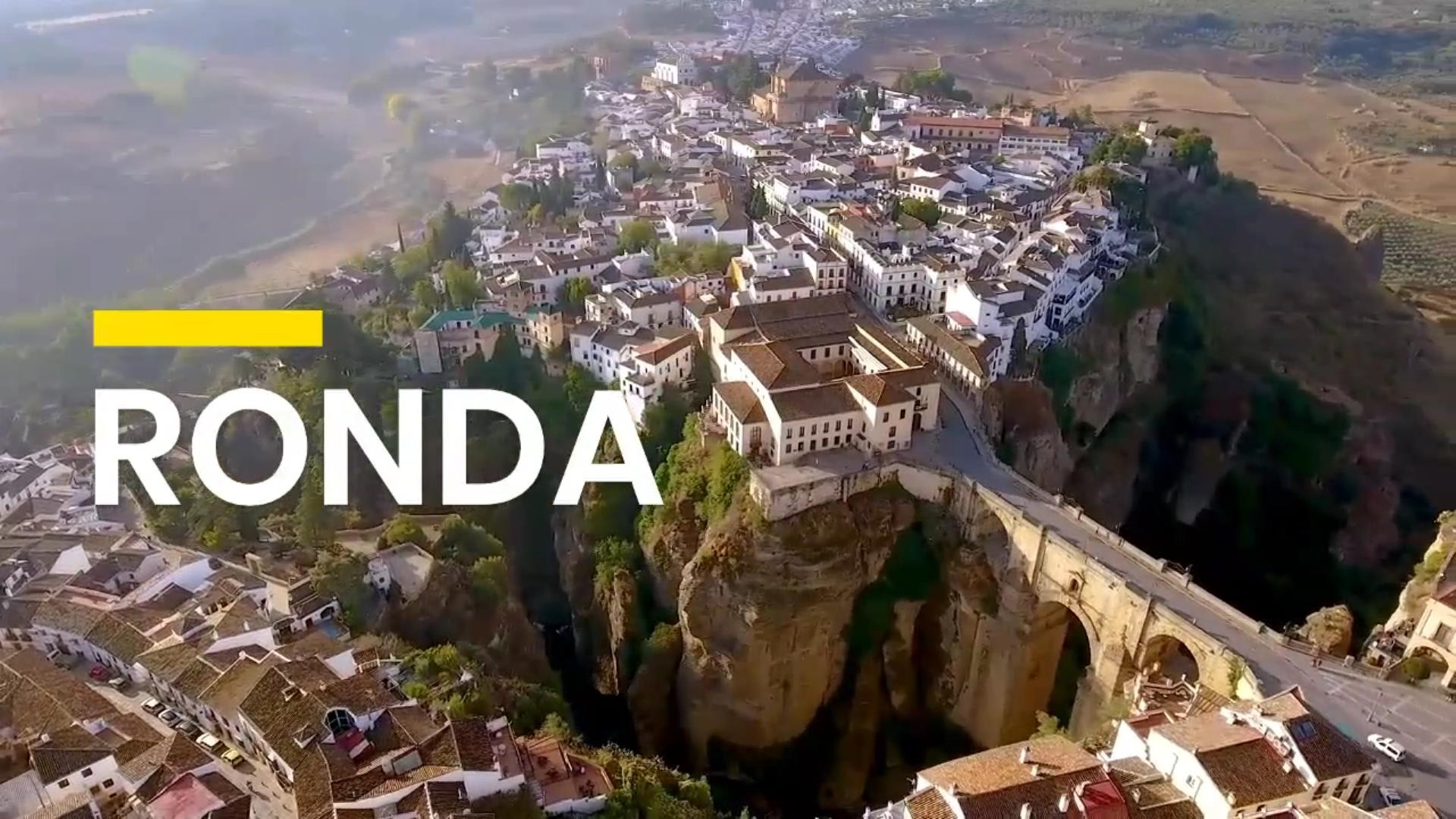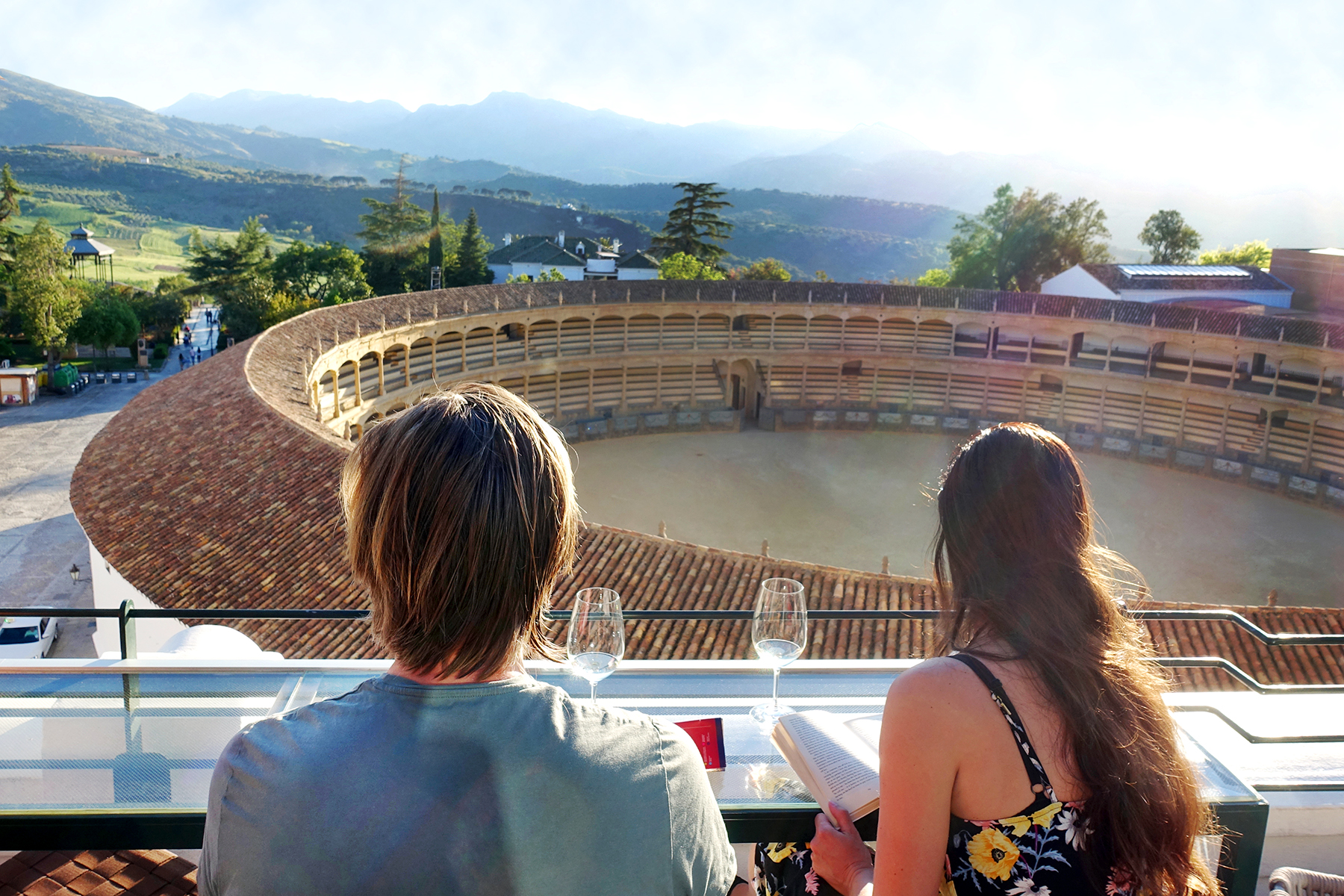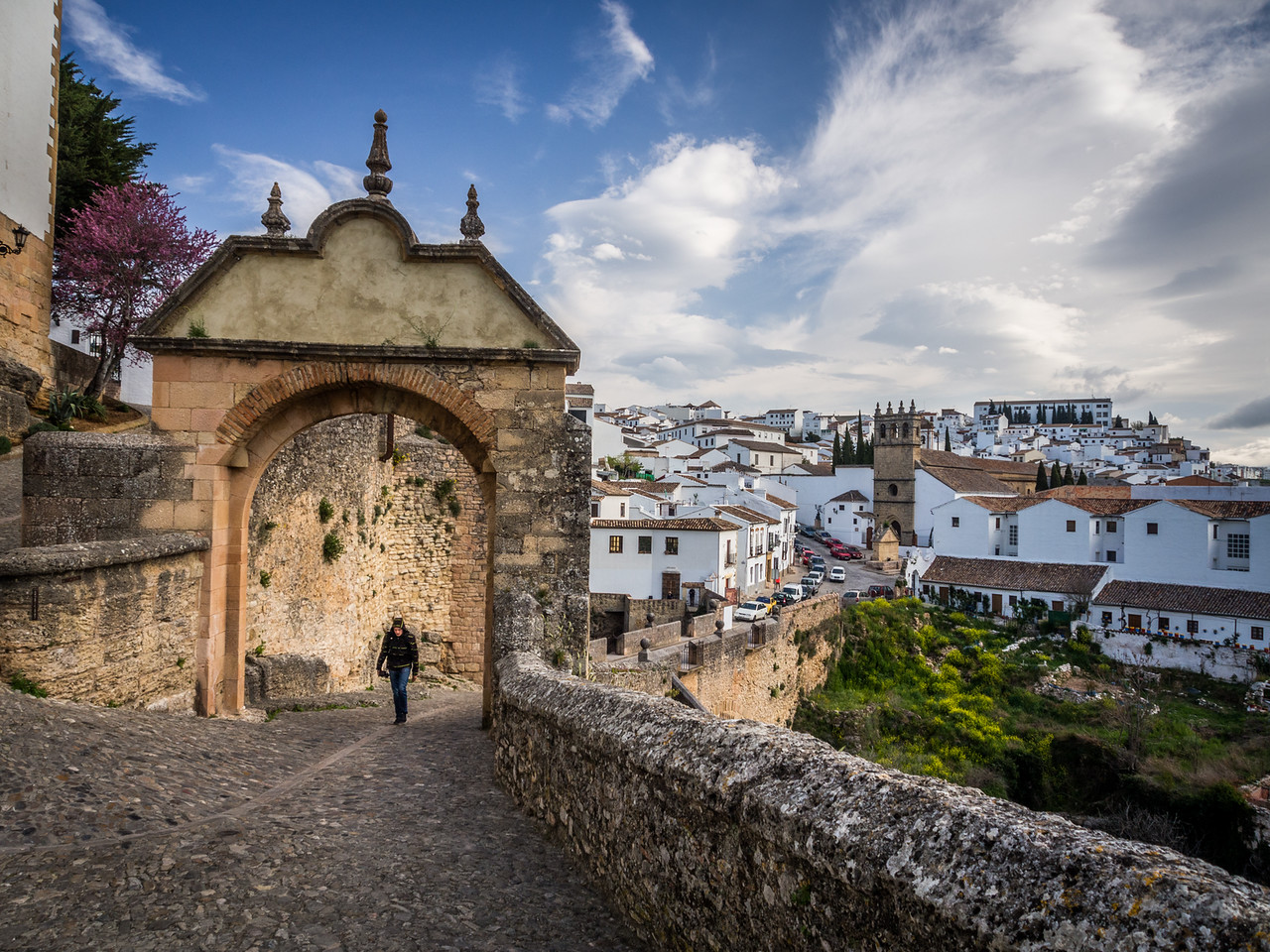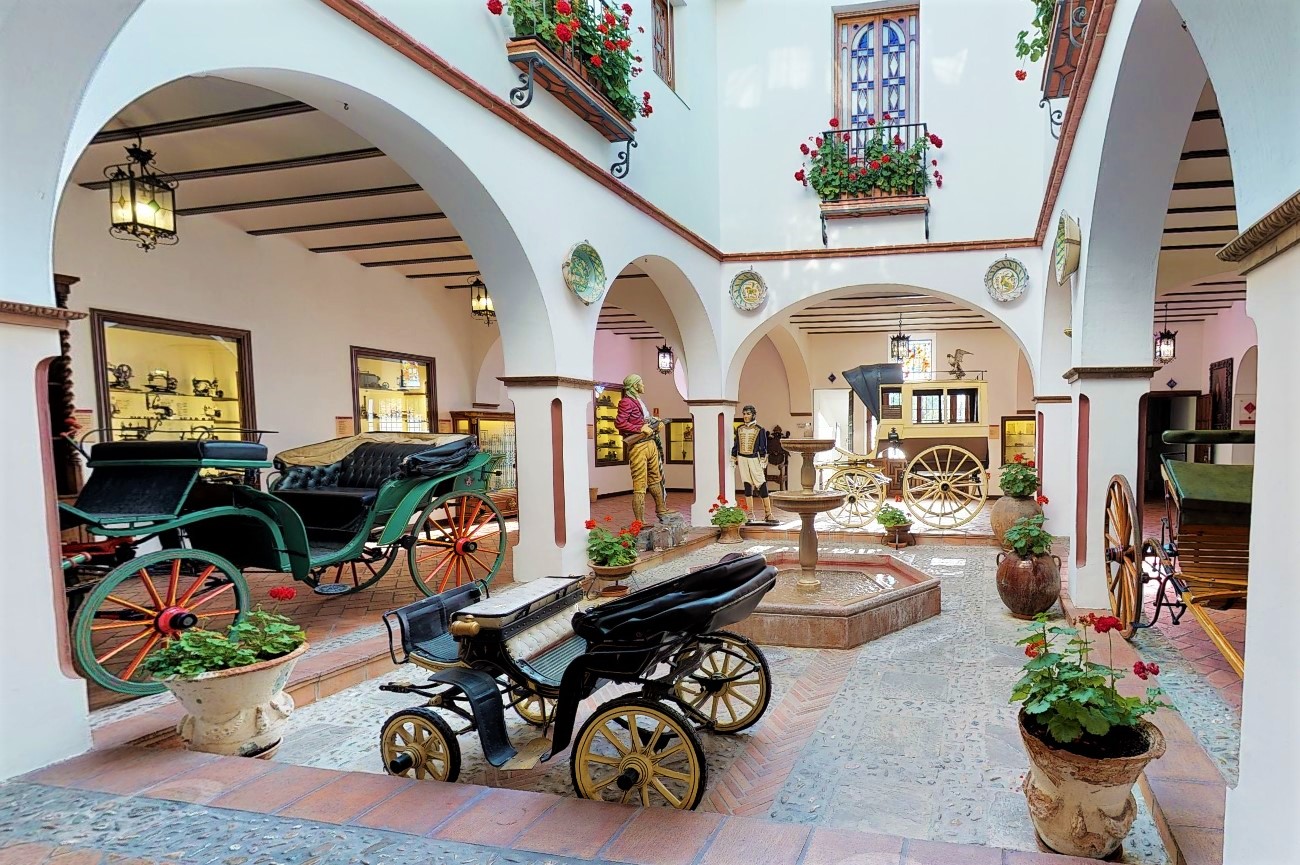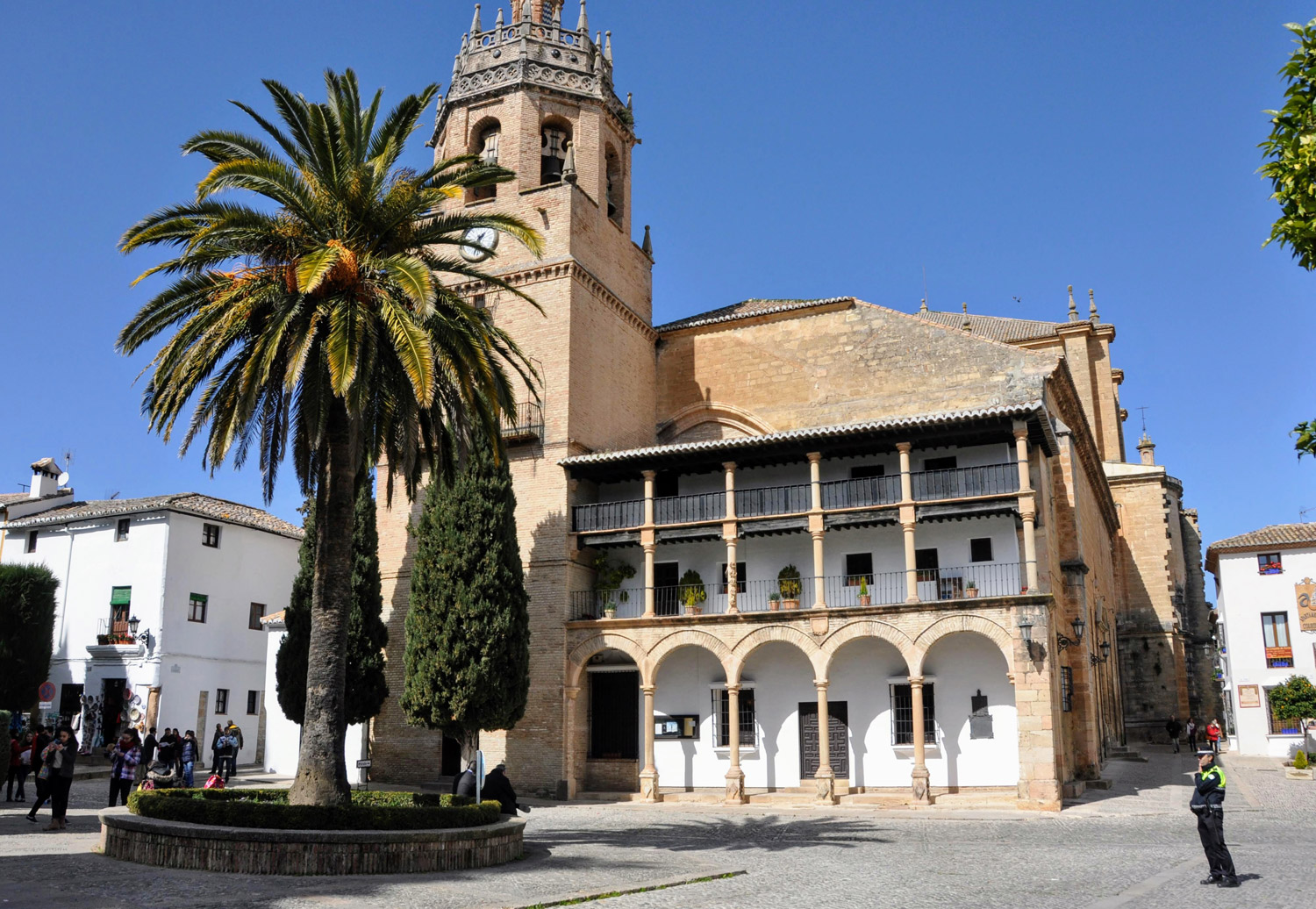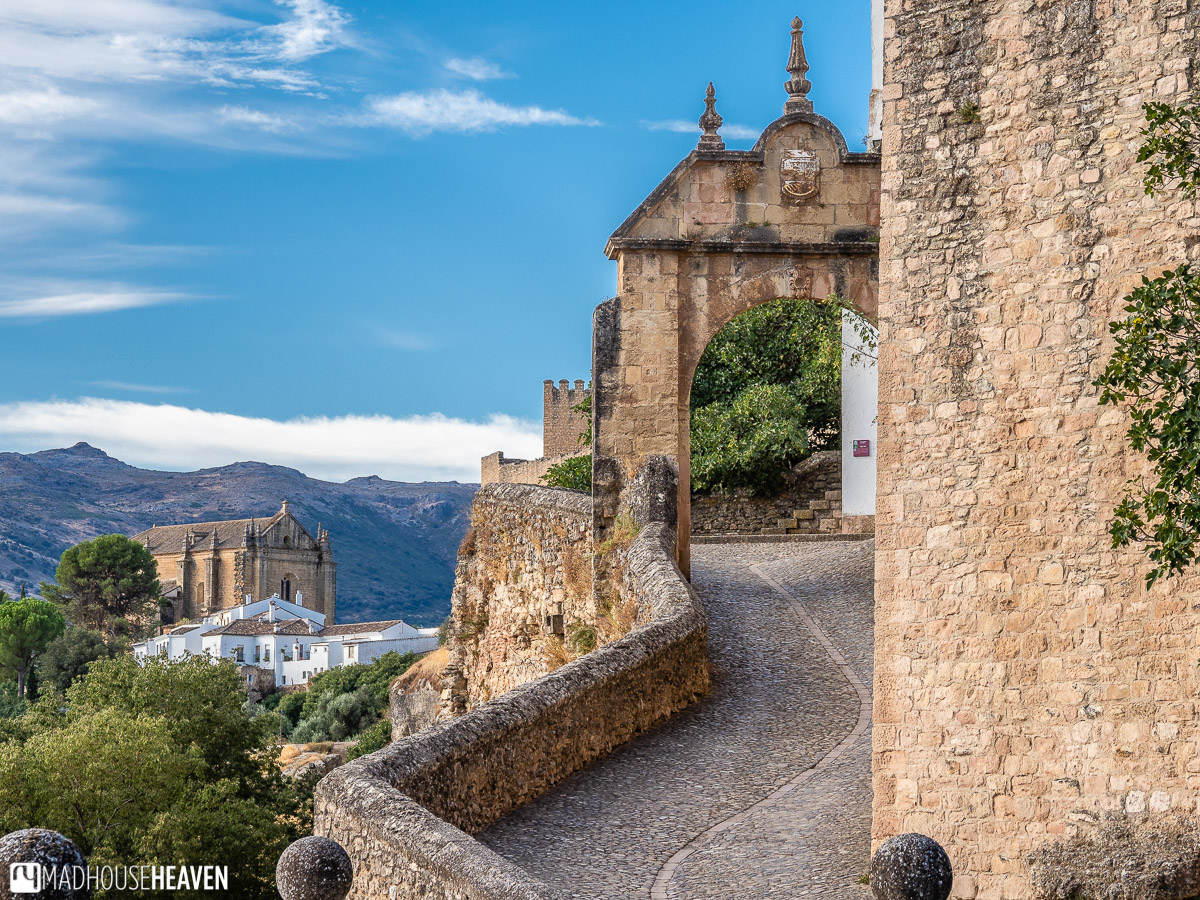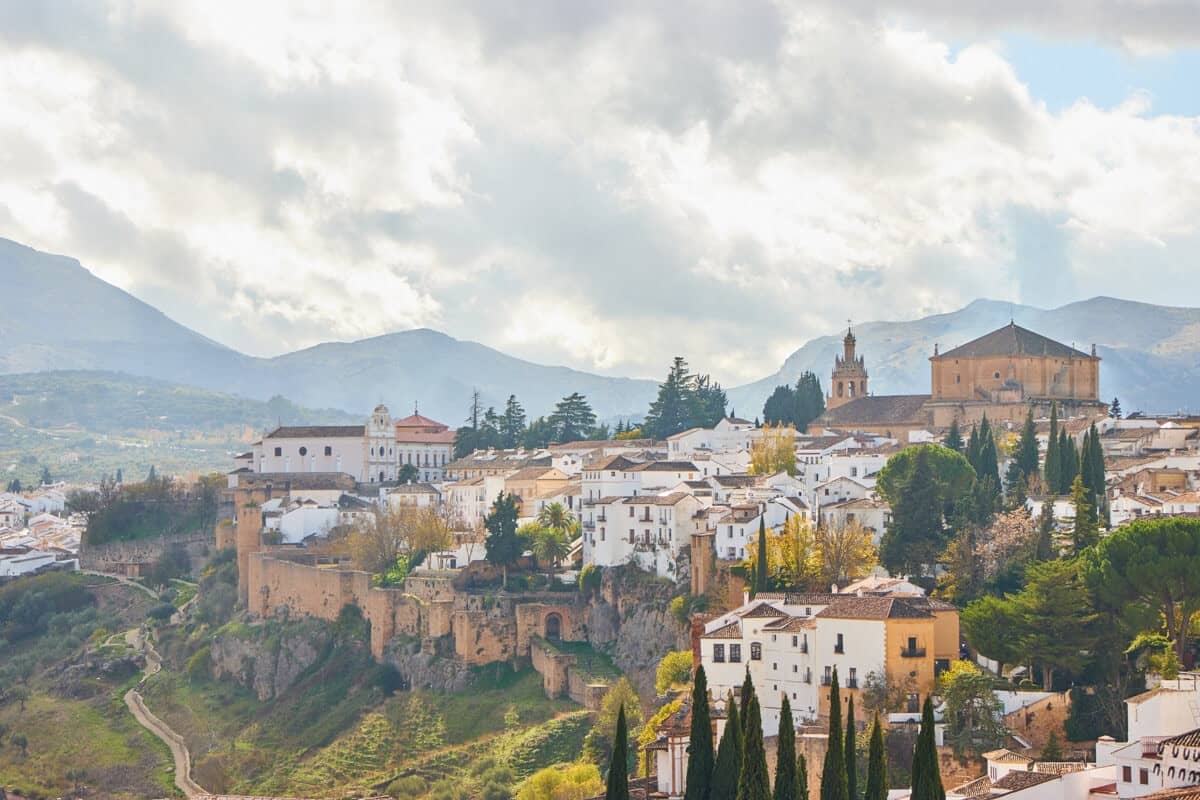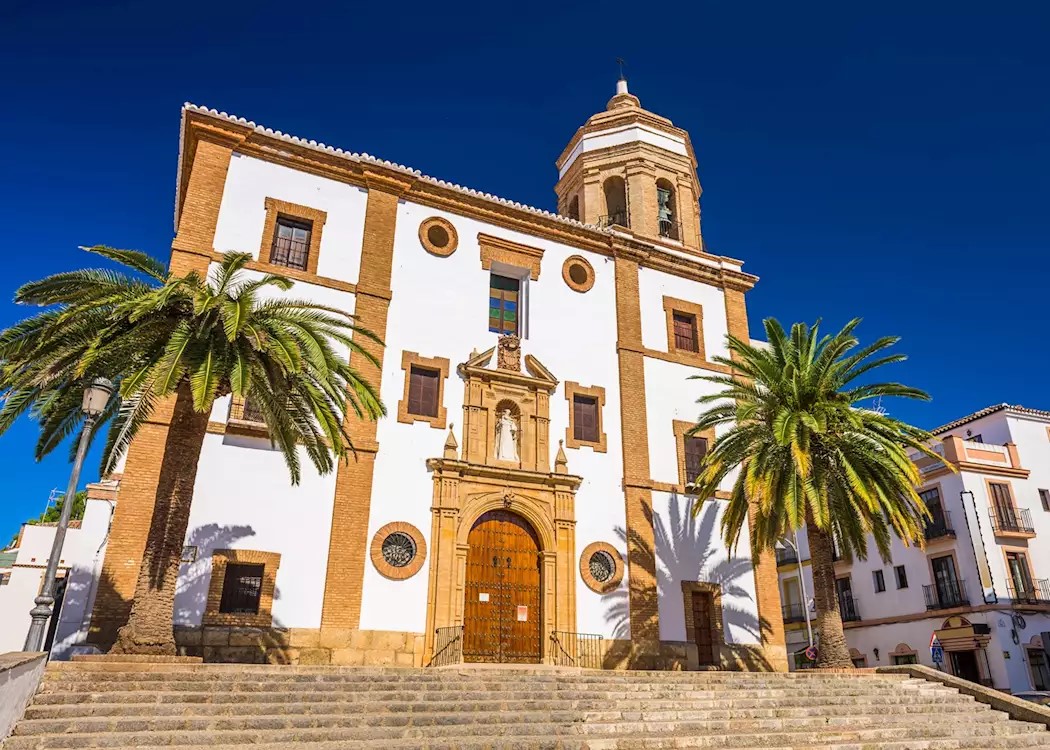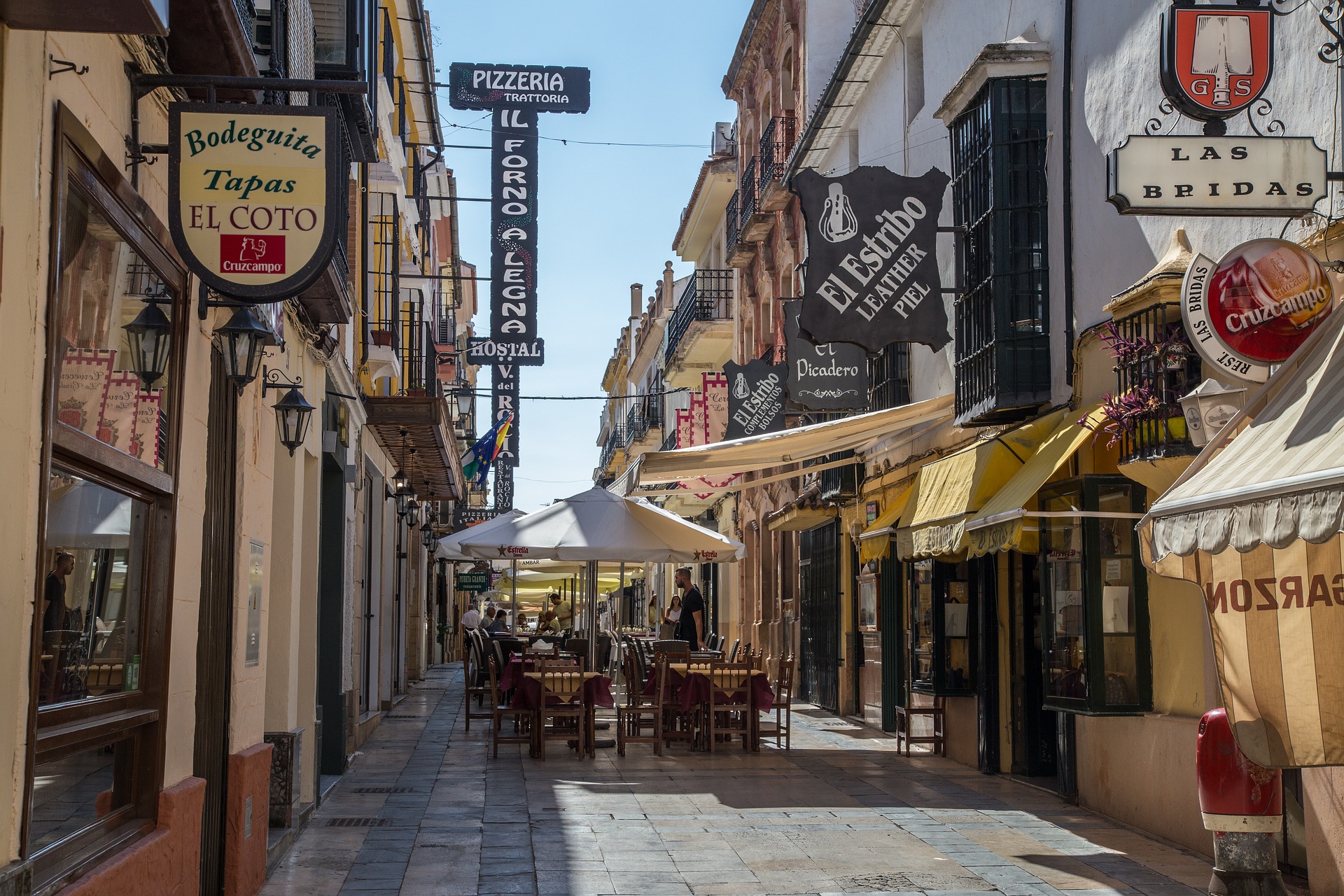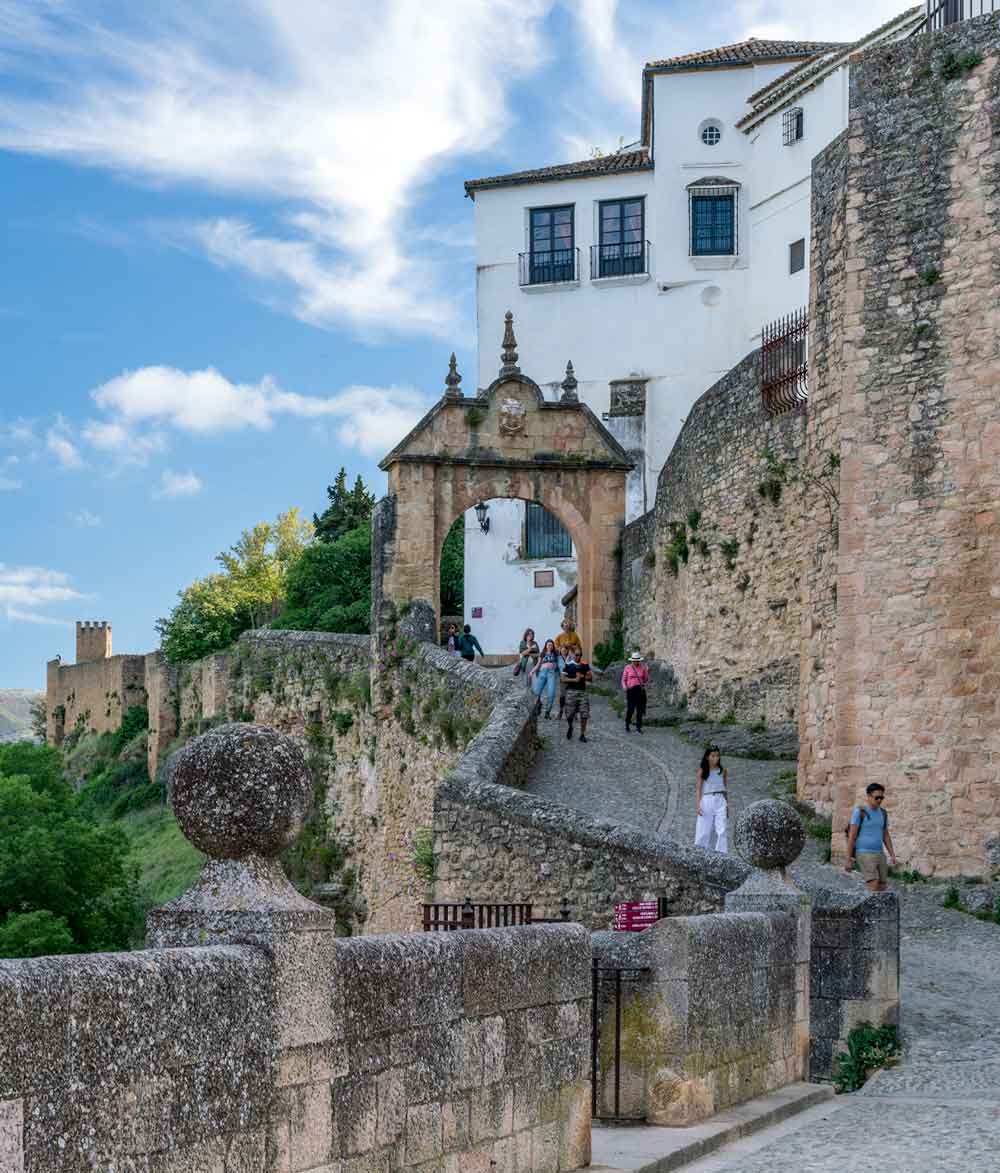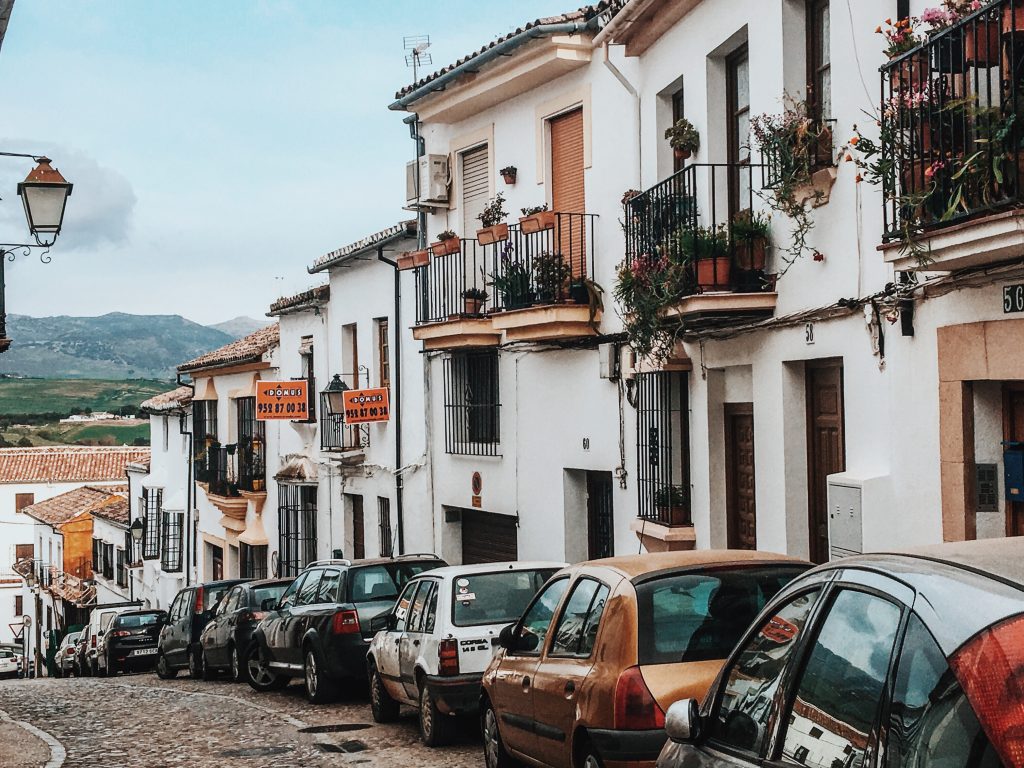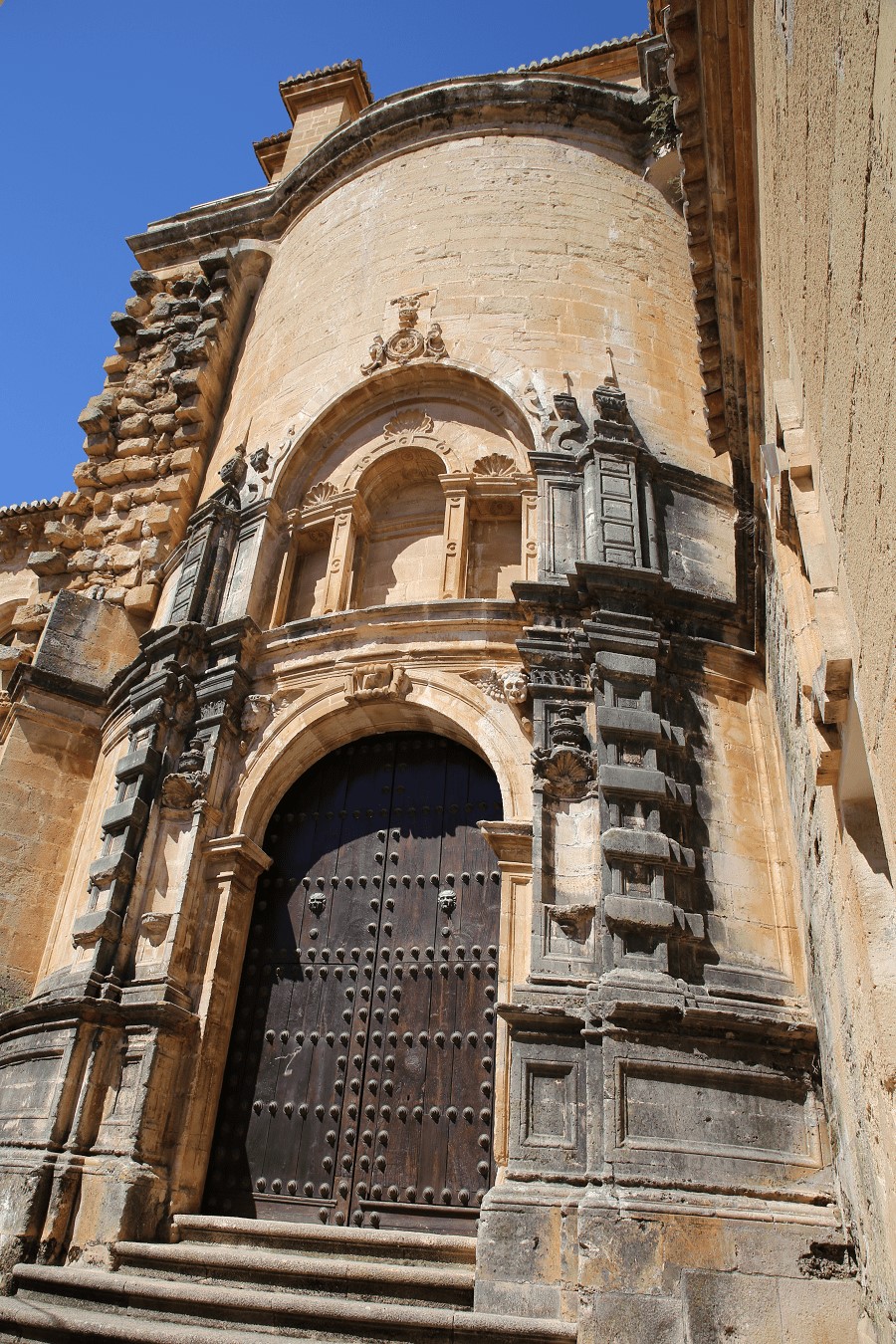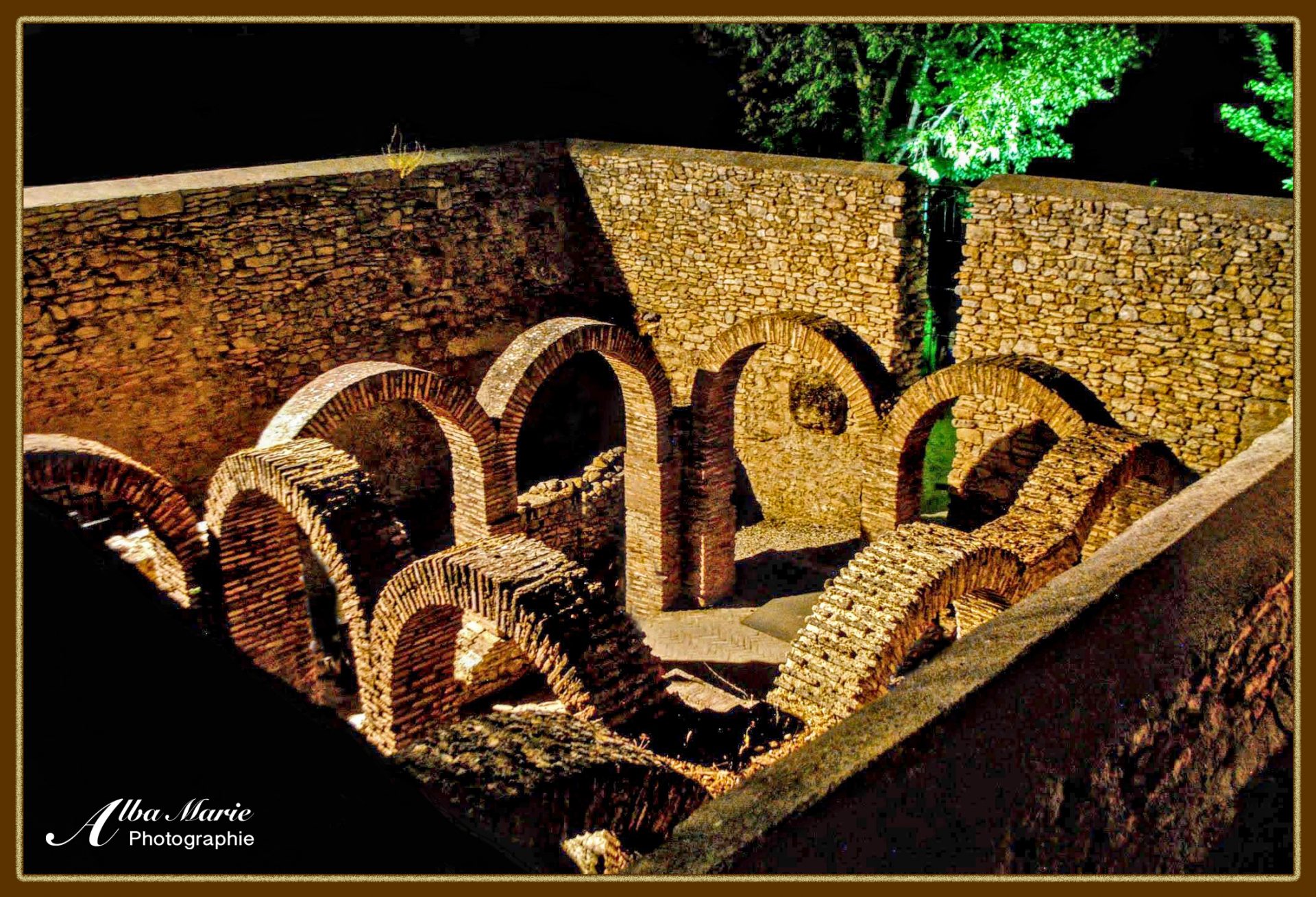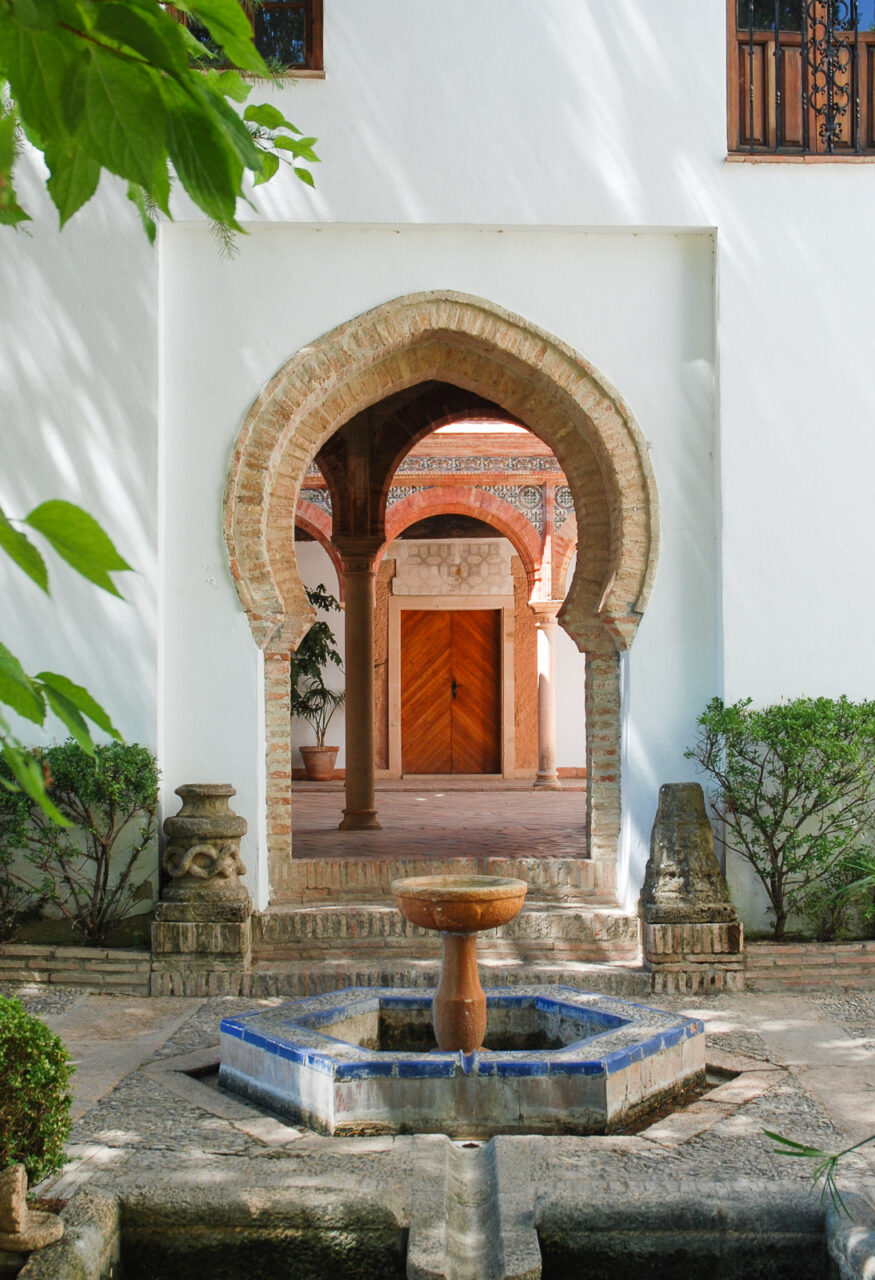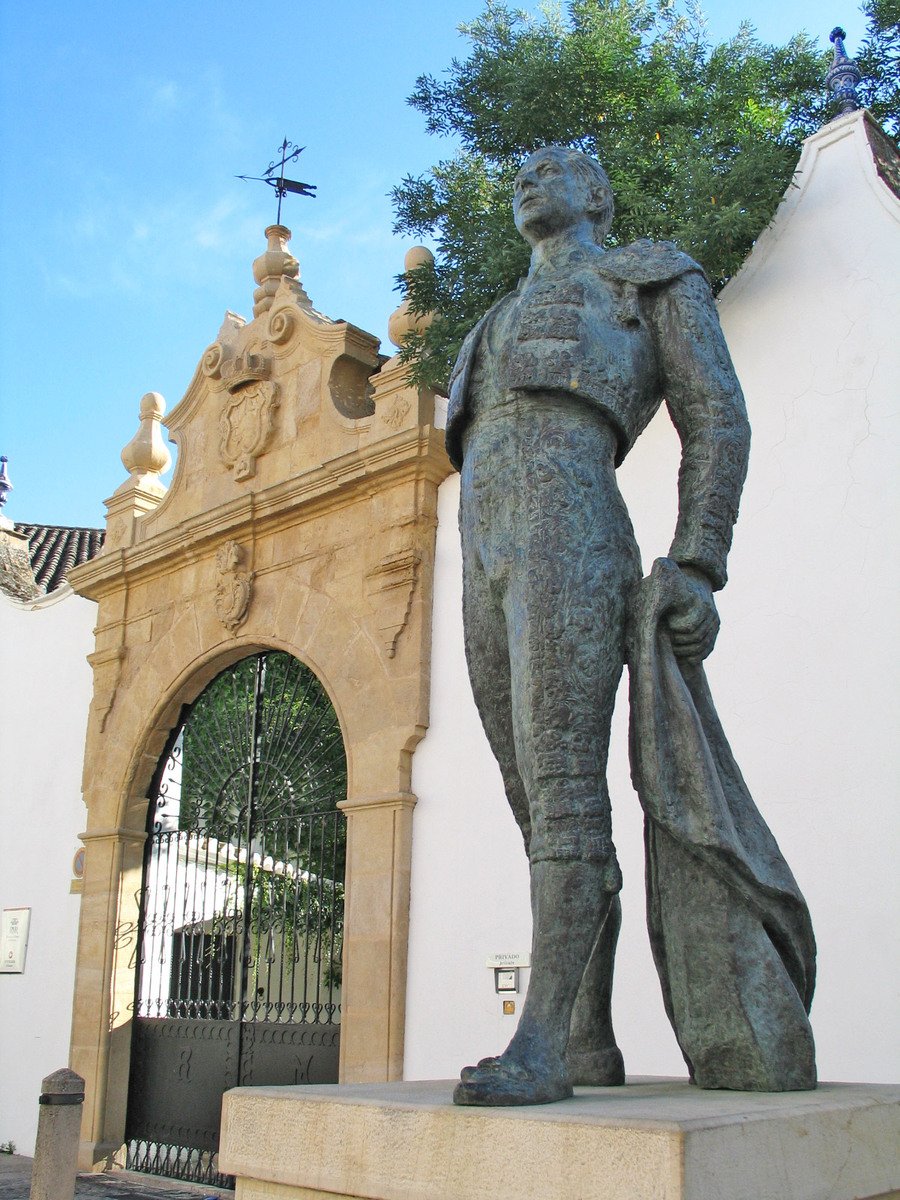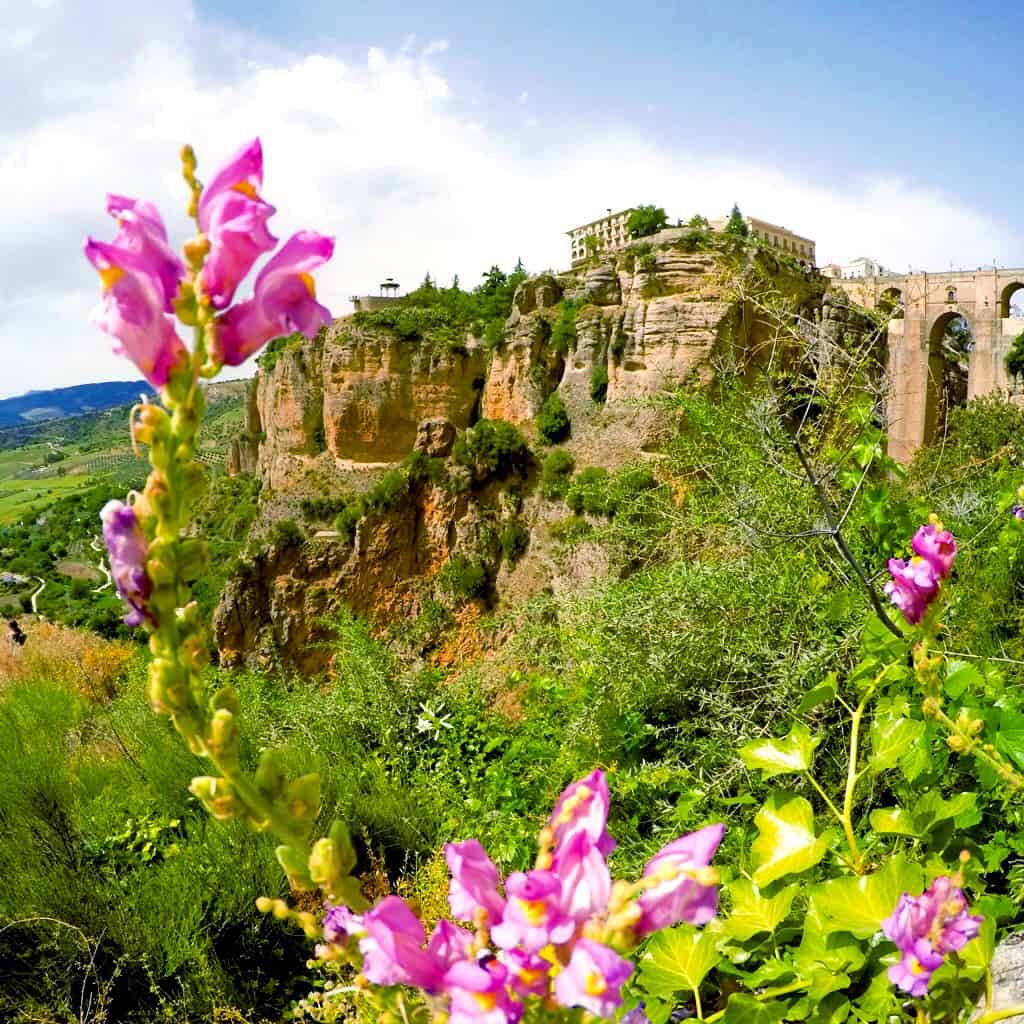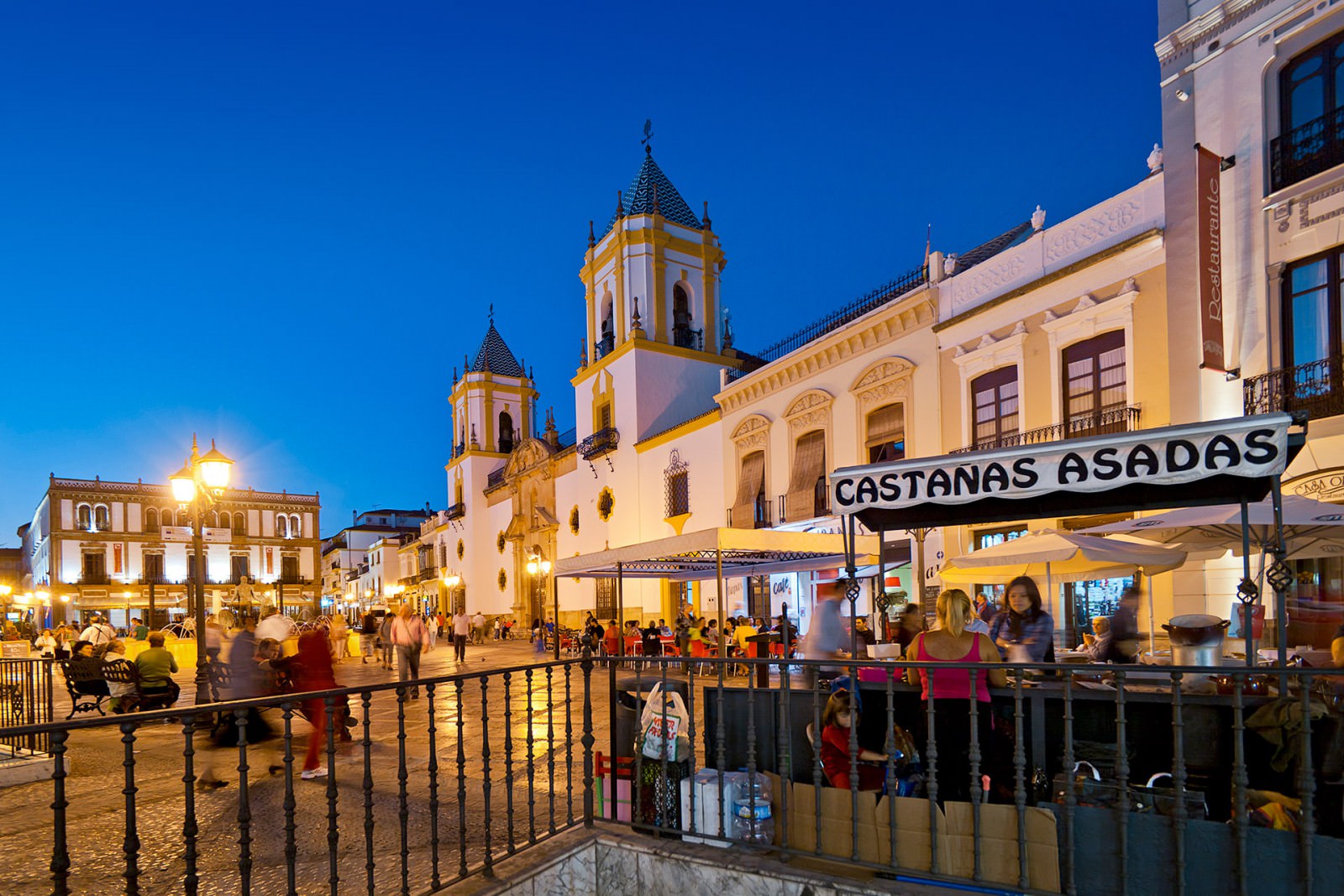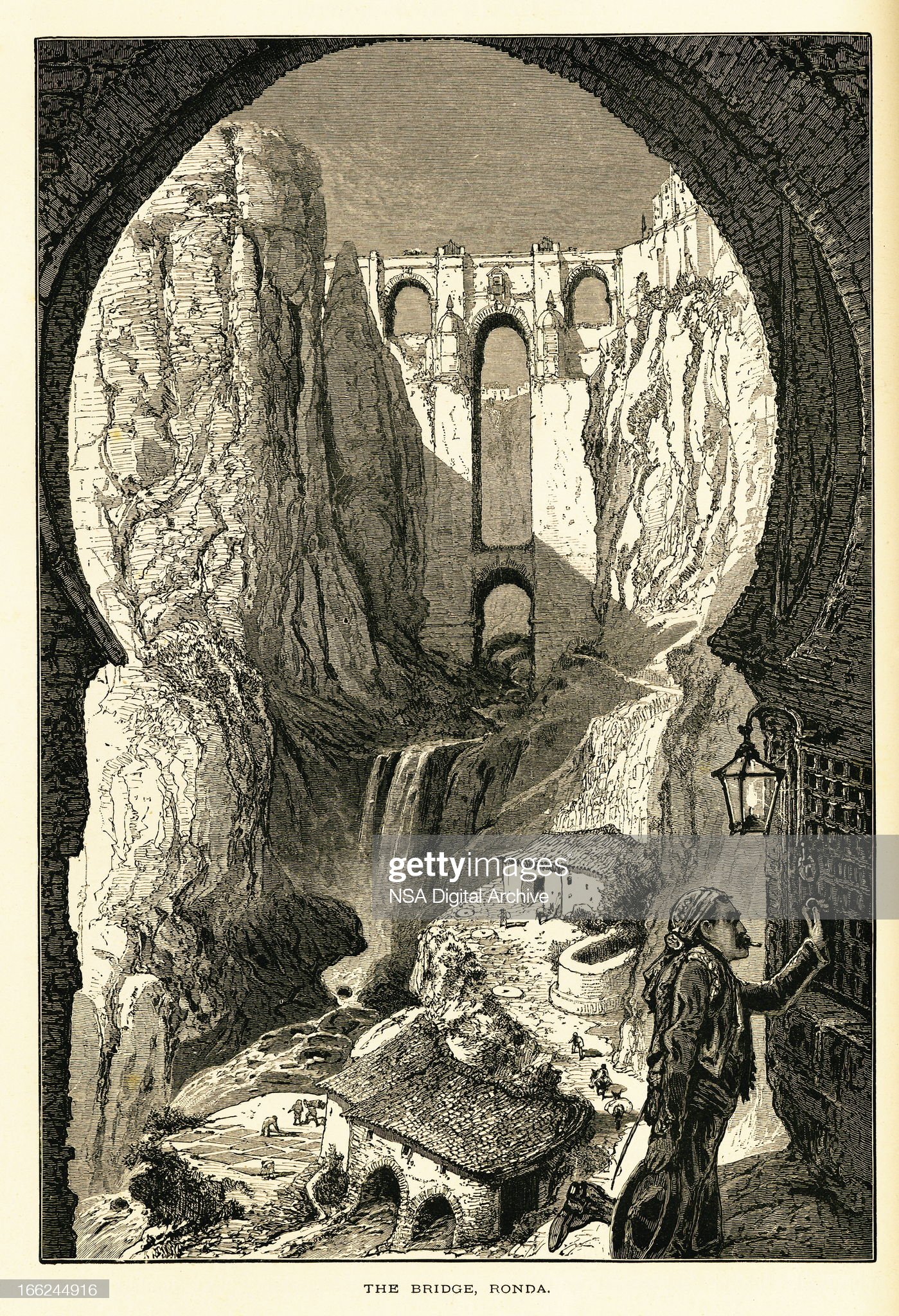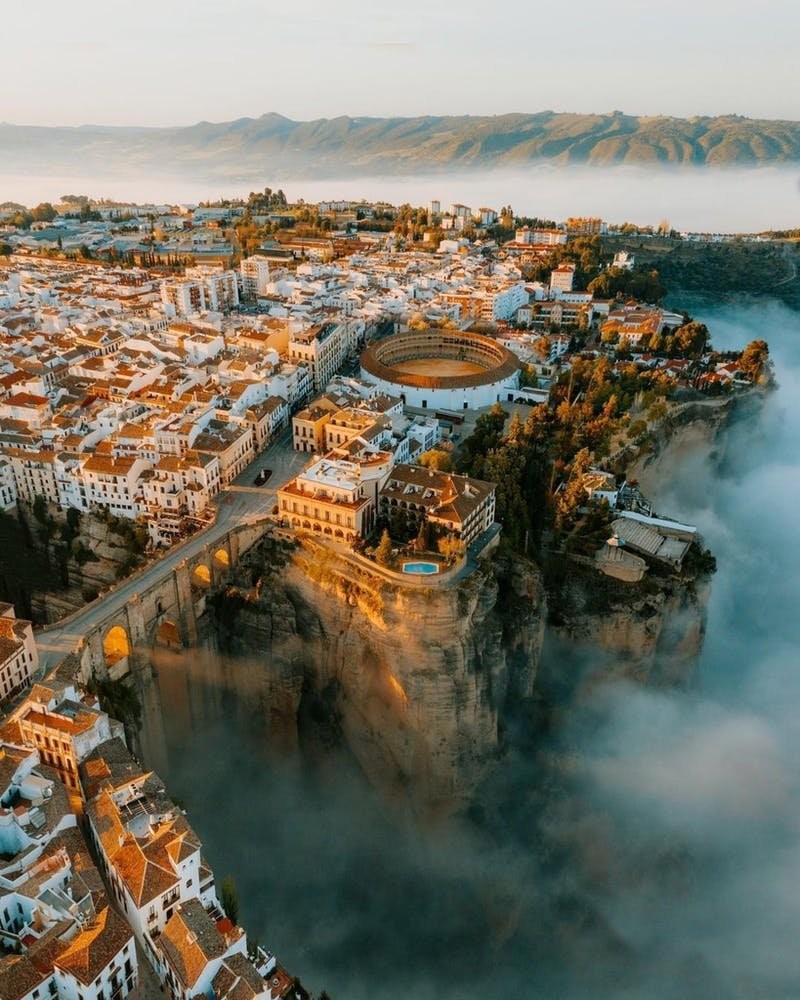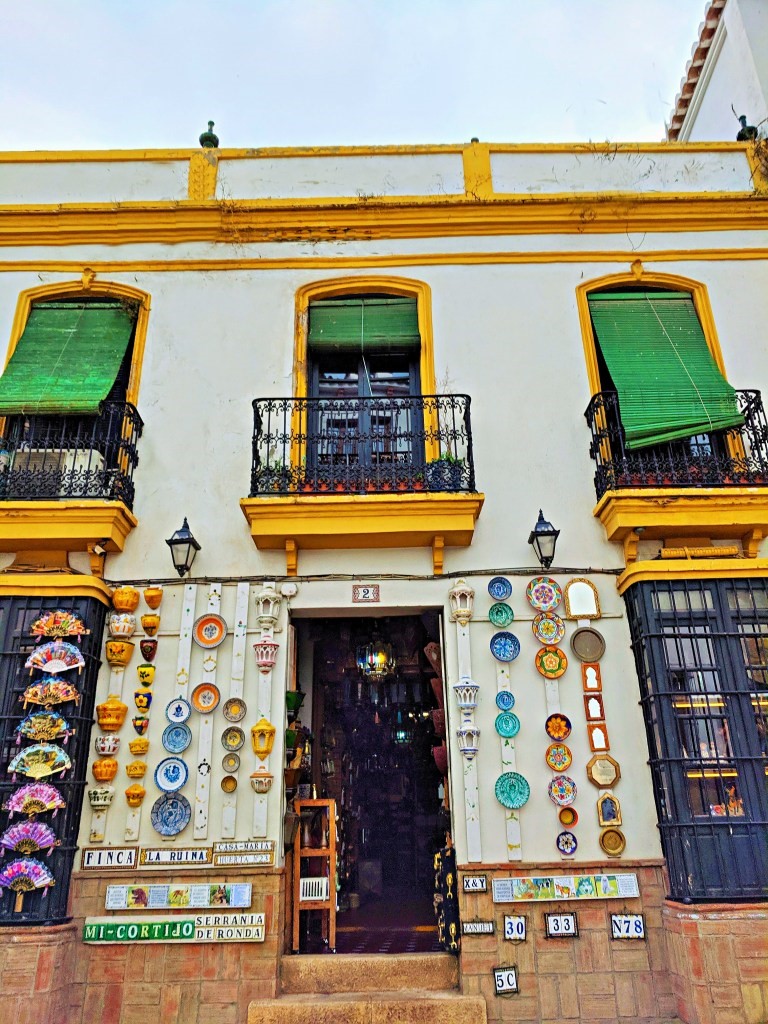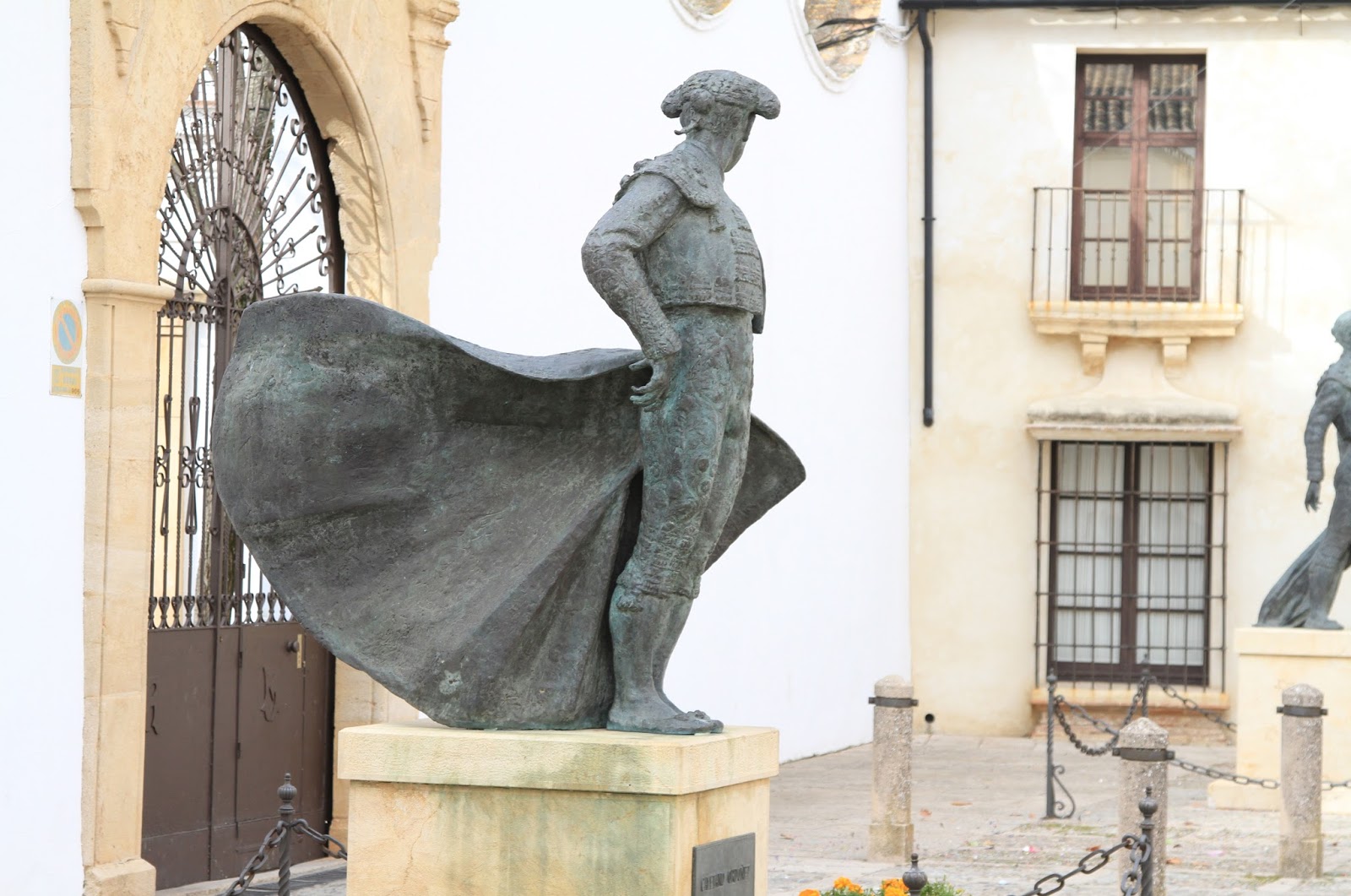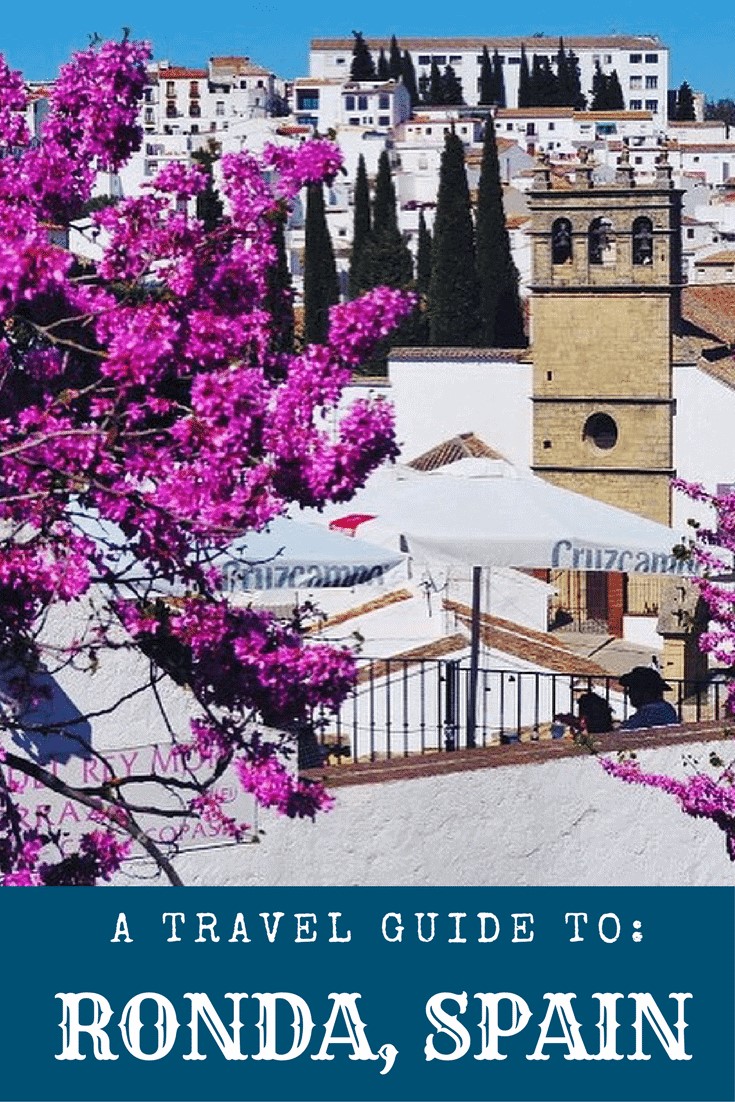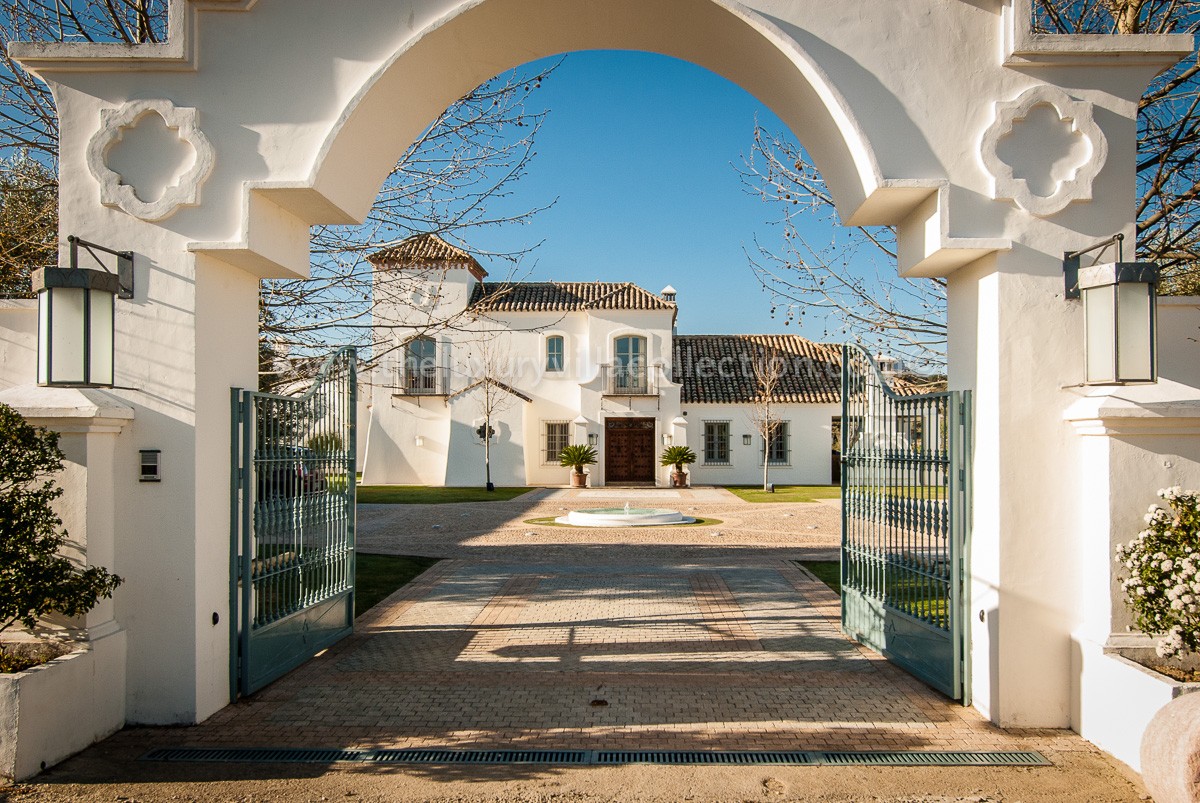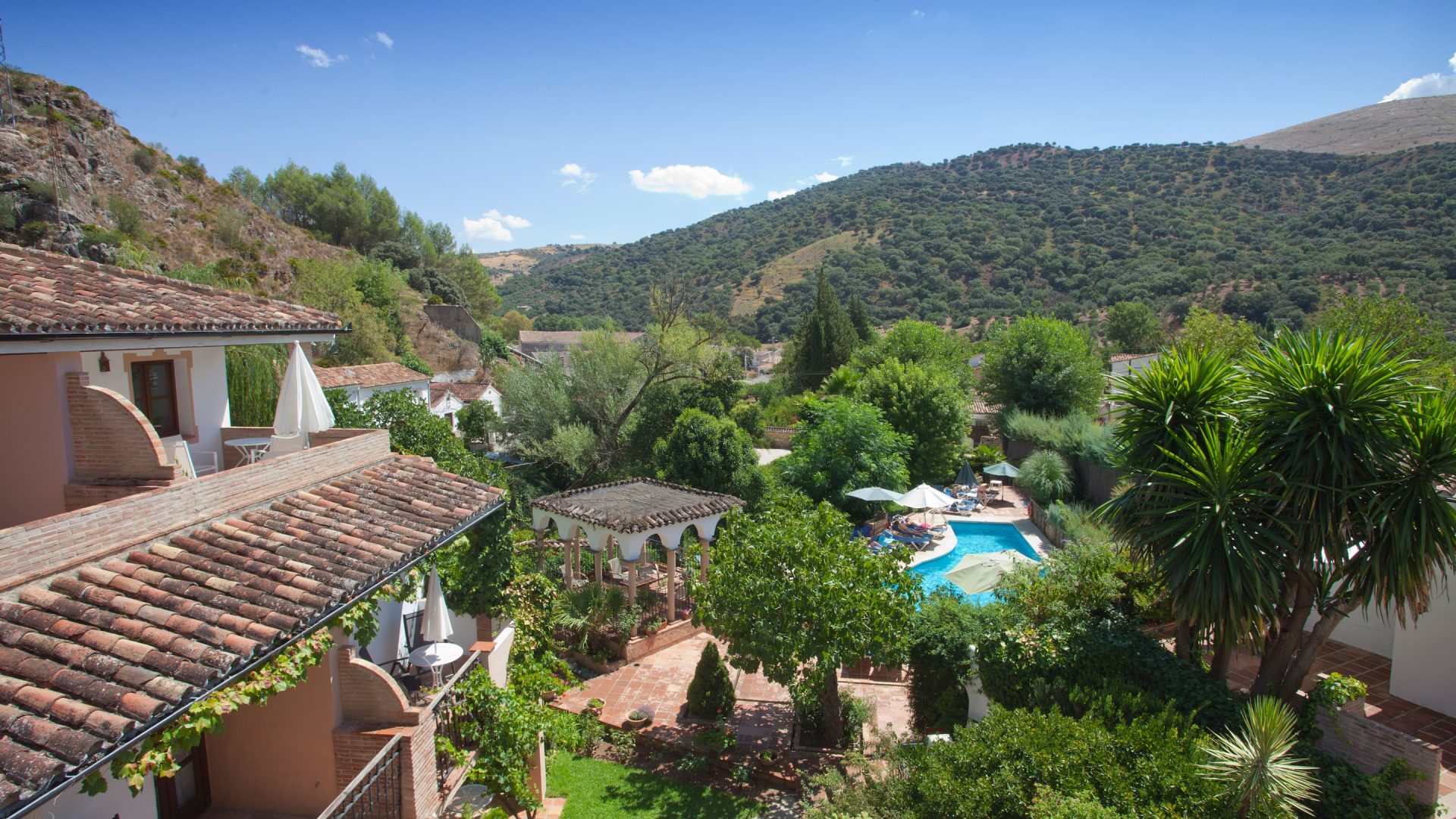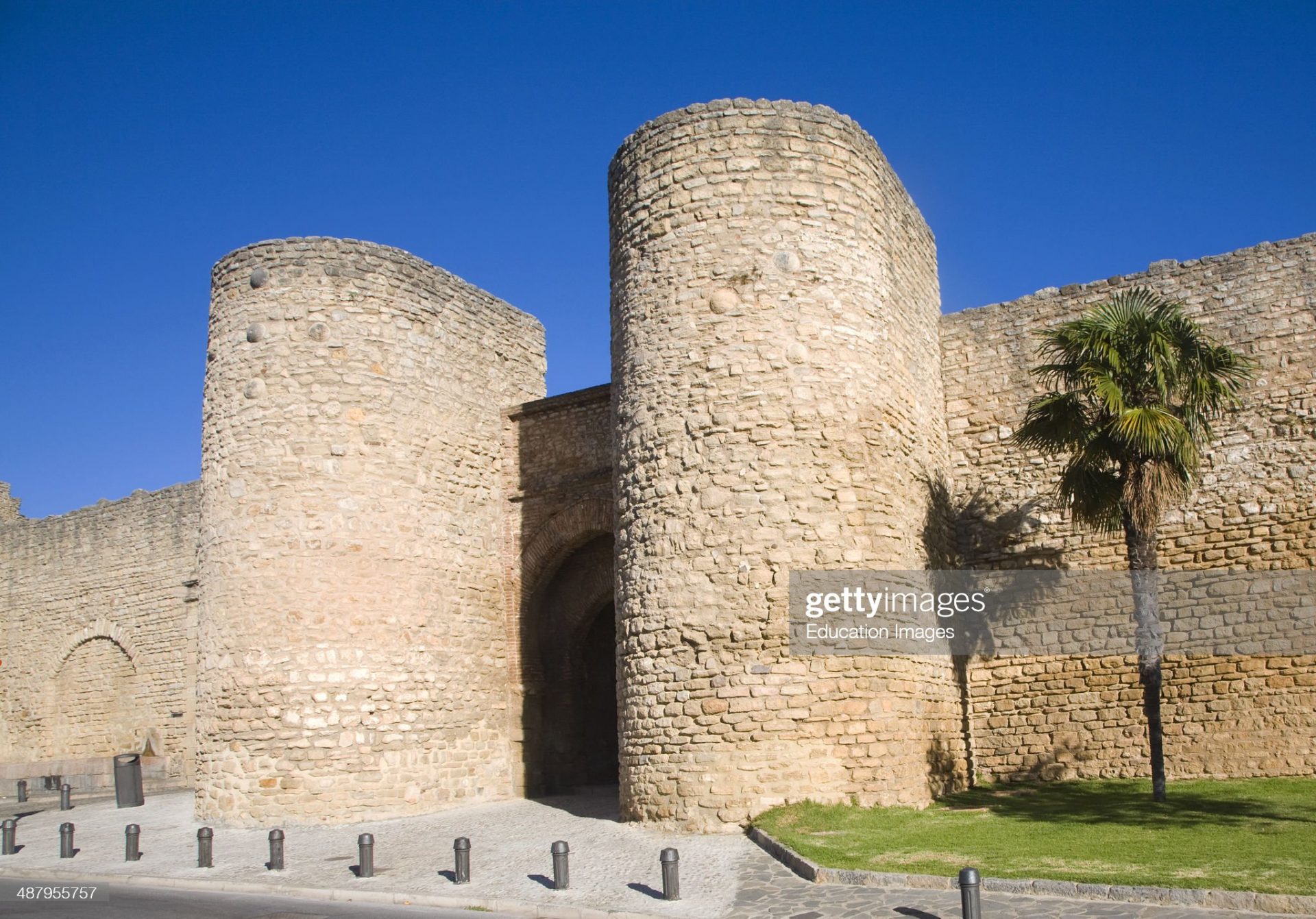Ronda, Spain 西班牙懸崖上的小城鎮
李常生整理 2022/09/12
Ronda (Spanish pronunciation: [ˈronda]) is a town in the Spanish province of Málaga. It is located about 105 km (65 mi) west of the city of Málaga, within the autonomous community of Andalusia. Its population is about 35,000. Ronda is known for its cliff-side location and a deep chasm that carries the Guadalevín River and divides the town.
It is now one of the towns and villages that is included in the Sierra de las Nieves Natural Park.
Ronda is situated in a mountainous area about 750 m (2,460 ft) above mean sea level. Also it occupies the depression of Ronda. The inner relief is gentle and includes areas of pastureland and vegetable and cereal growing areas.
The Guadalevín River runs through the city, dividing it in two and carving out the steep, 100-plus-meter-deep El Tajo canyon above which the city perches. The Spanish fir (Abies pinsapo) is endemic to the mountains surrounding Ronda.
American artists Ernest Hemingway and Orson Welles spent many summers in Ronda as part-time residents of Ronda’s old-town quarter called La Ciudad. Both wrote about Ronda’s beauty and famous bullfighting traditions. Their collective accounts have contributed to Ronda’s popularity over time.
In the first decades of the 20th century, the famous German poet Rainer Maria Rilke spent extended periods in Ronda, where he kept a permanent room at the Hotel Reina Victoria (built in 1906); his room remains to this day as he left it, a minimuseum of Rilkeana. According to the hotel’s publicity, Rilke wrote (though probably not in Spanish) He buscado por todas partes la ciudad soñada, y al fin la he encontrado en Ronda and No hay nada más inesperado en España que esta ciudad salvaje y montañera (“I have sought everywhere the city of my dreams, and I have finally found it in Ronda” and “Nothing is more startling in Spain than this wild and mountainous city.”)
Hemingway’s novel For Whom the Bell Tolls describes the execution of Nationalist sympathizers early in the Spanish Civil War. The Republicans murder the Nationalists by throwing them from cliffs in an Andalusian village, and Hemingway allegedly based the account on killings that took place in Ronda at the cliffs of El Tajo.
